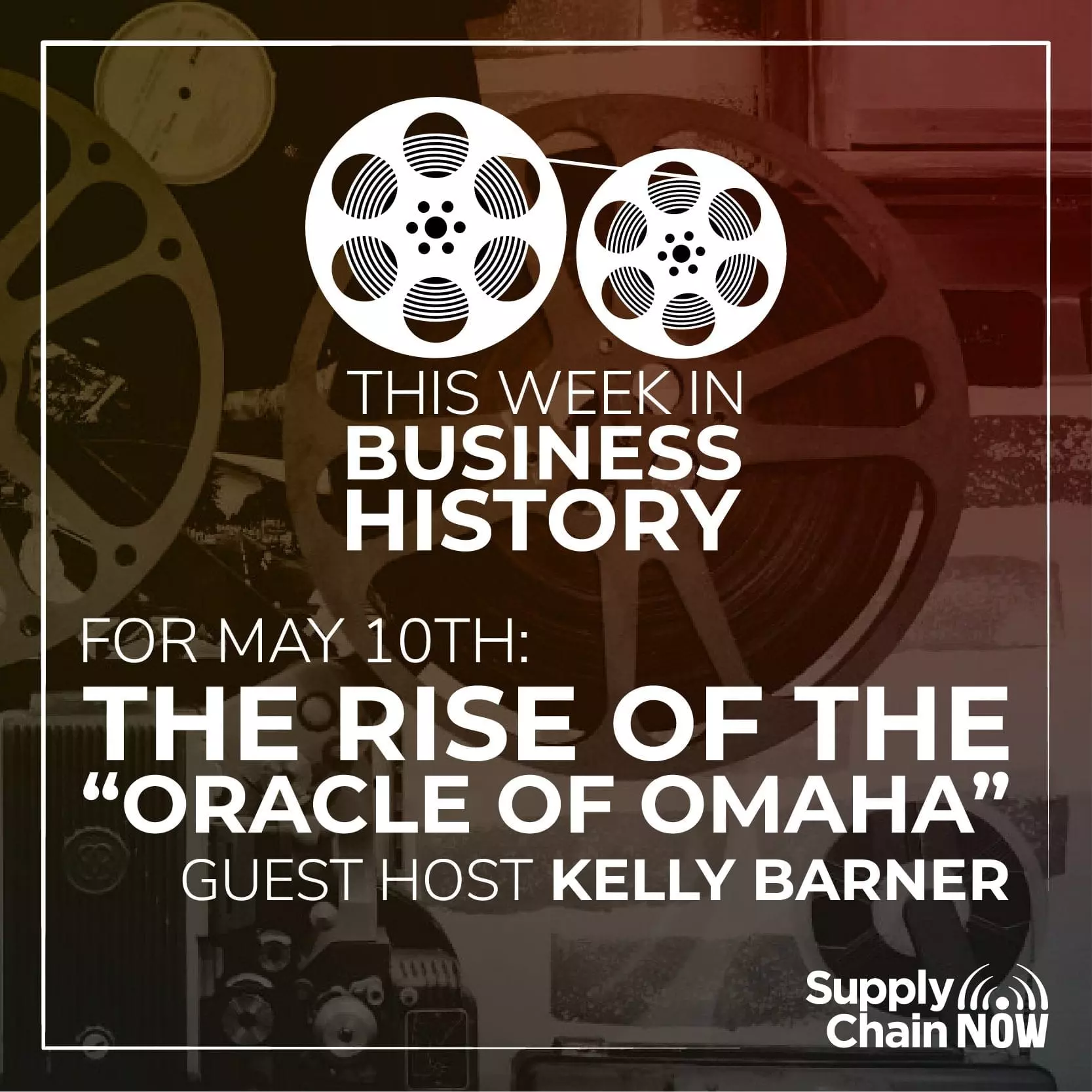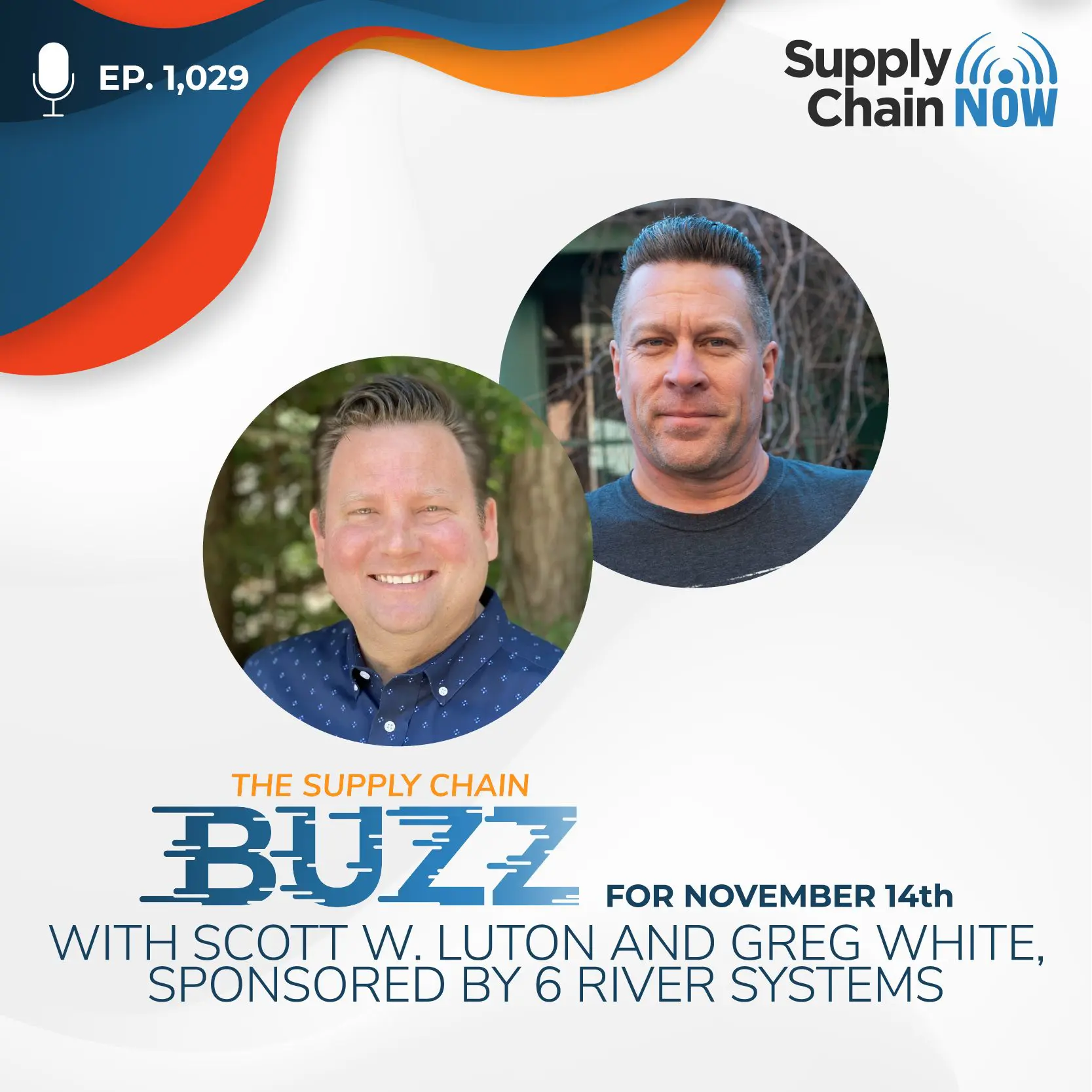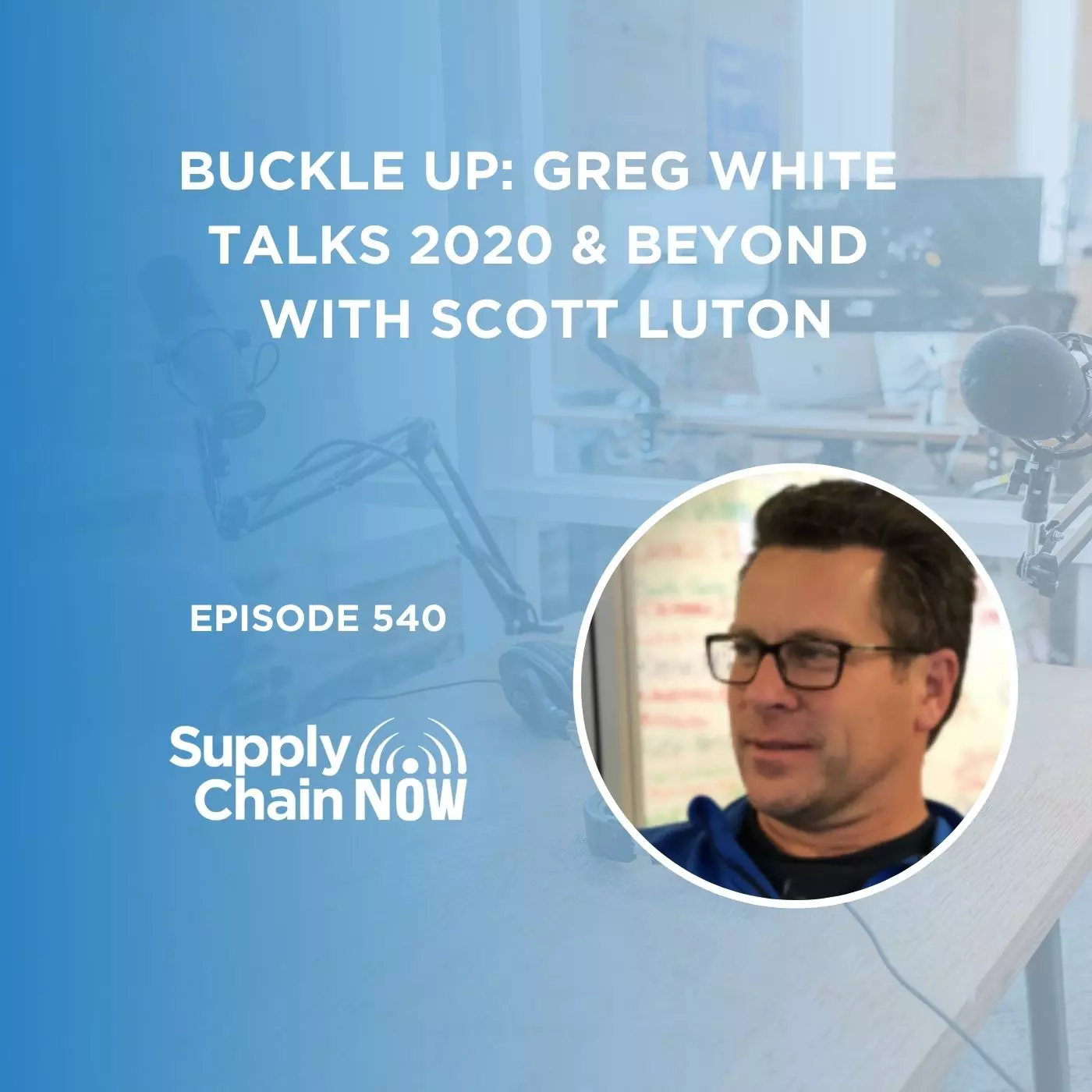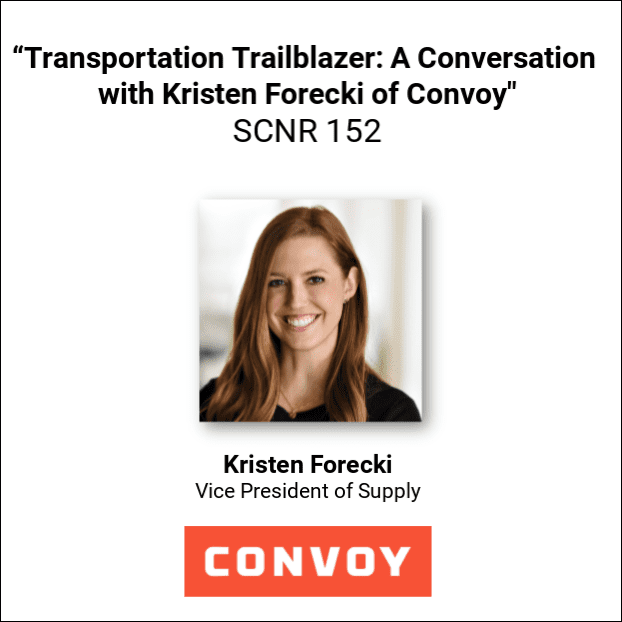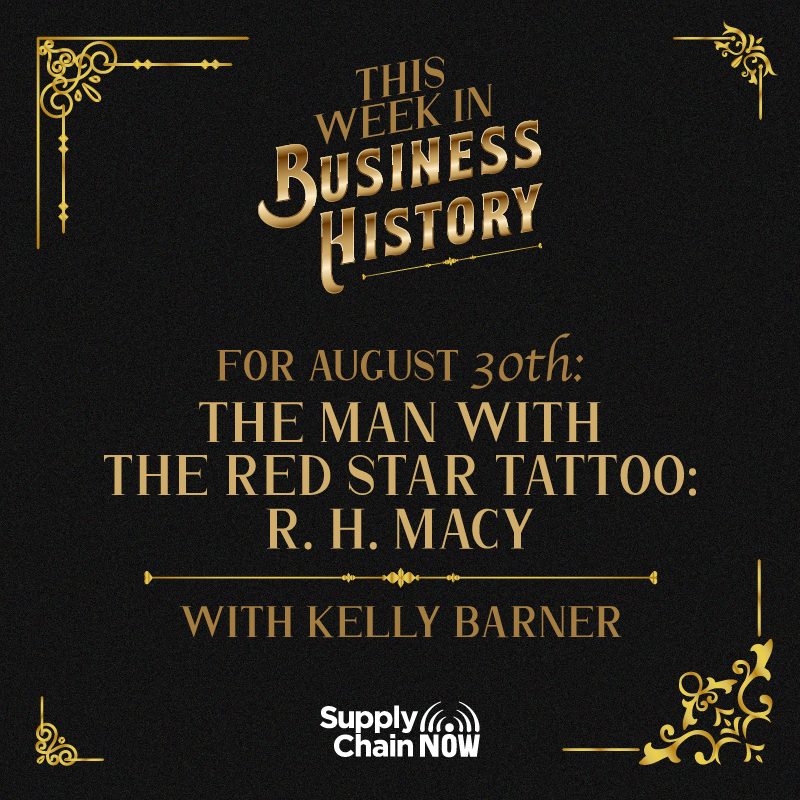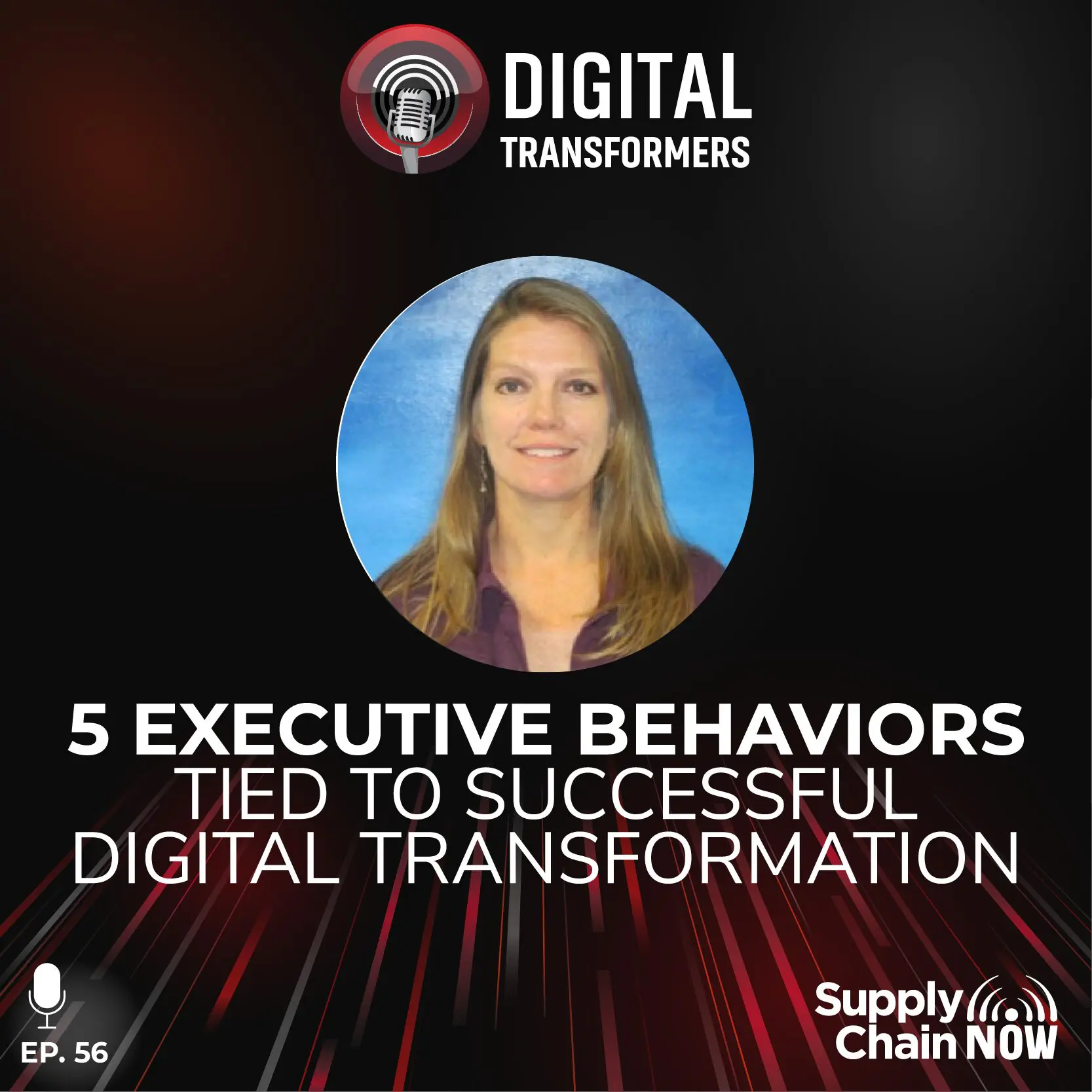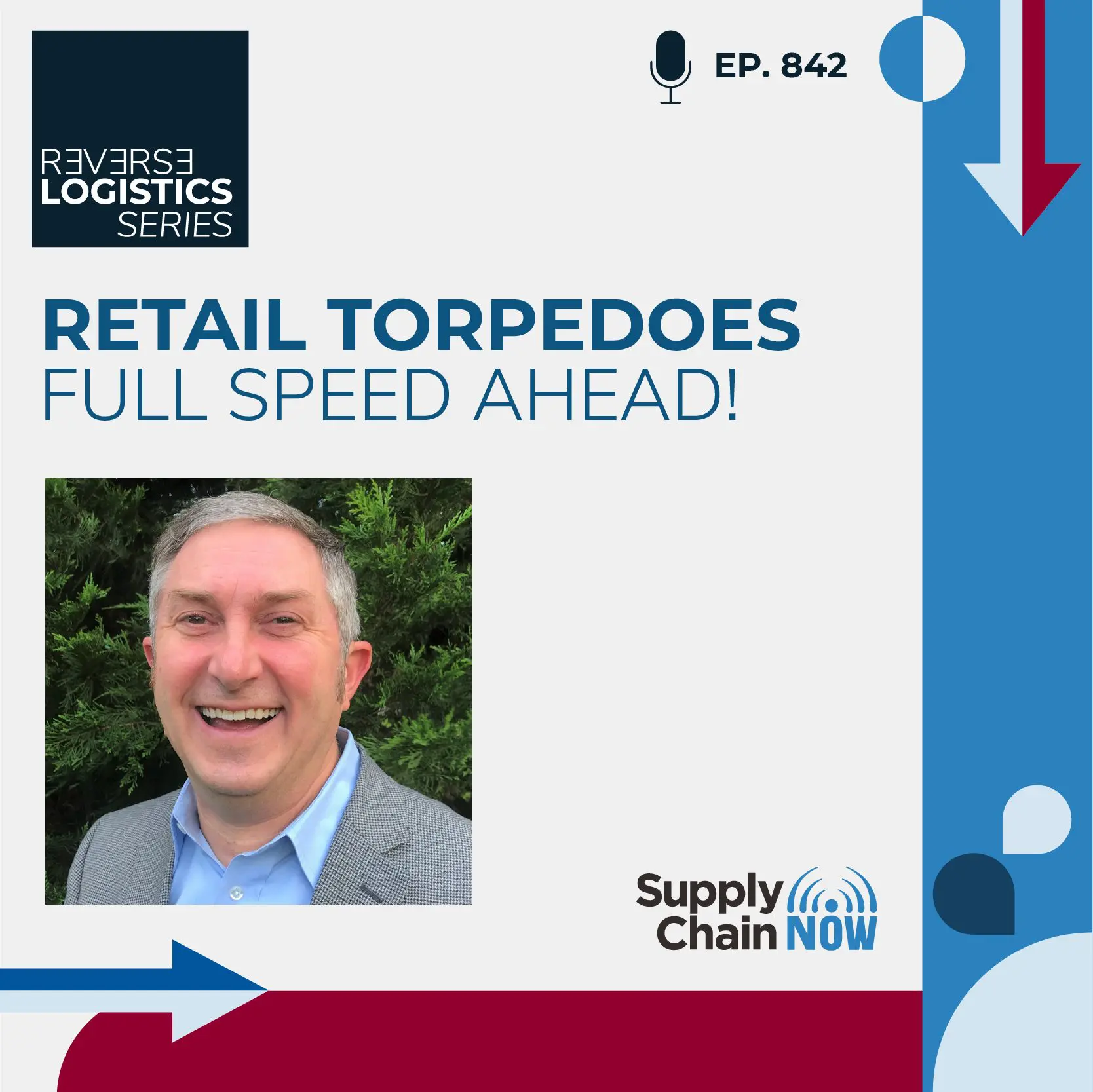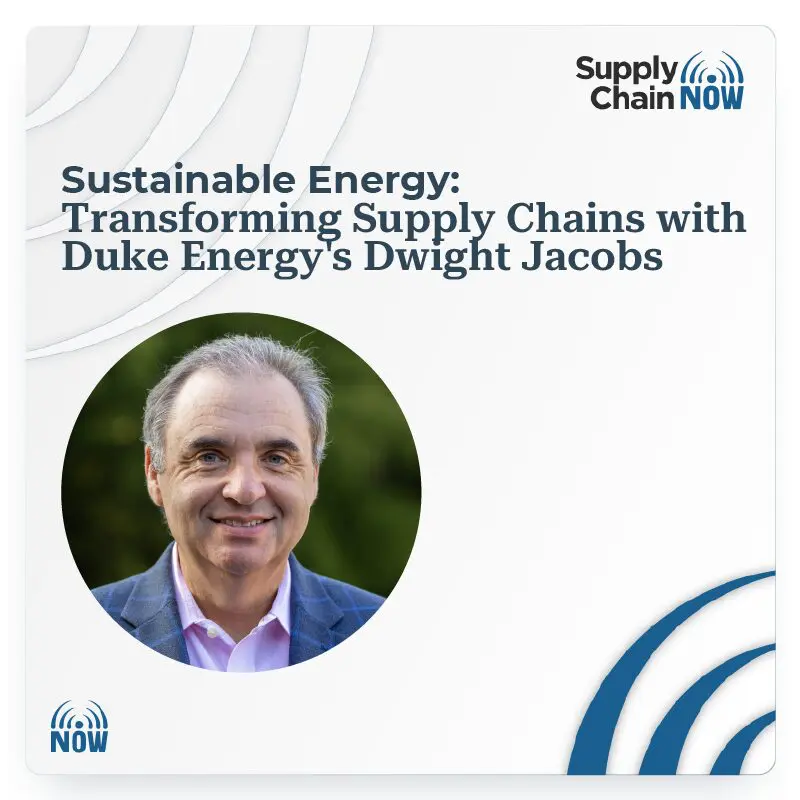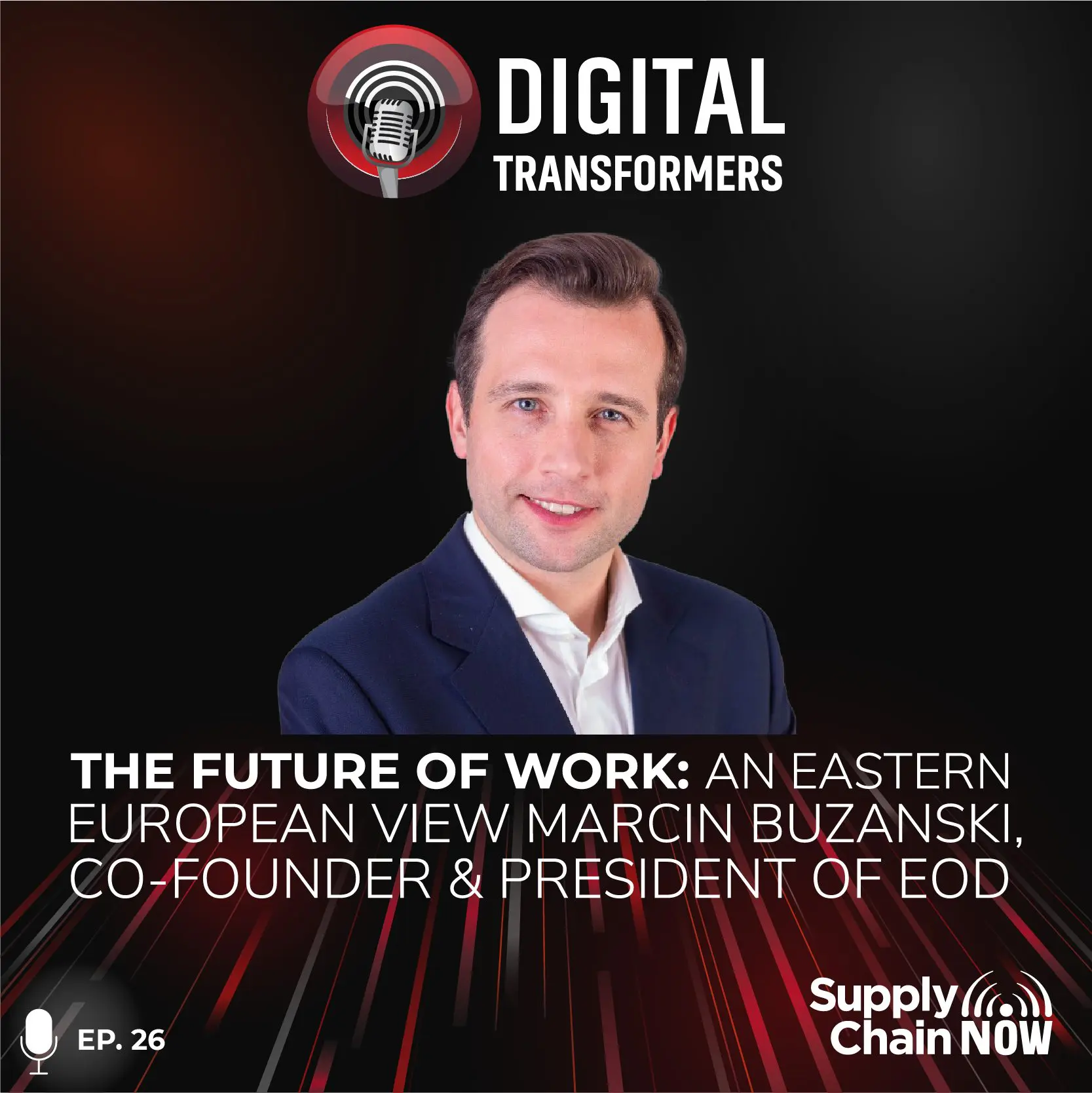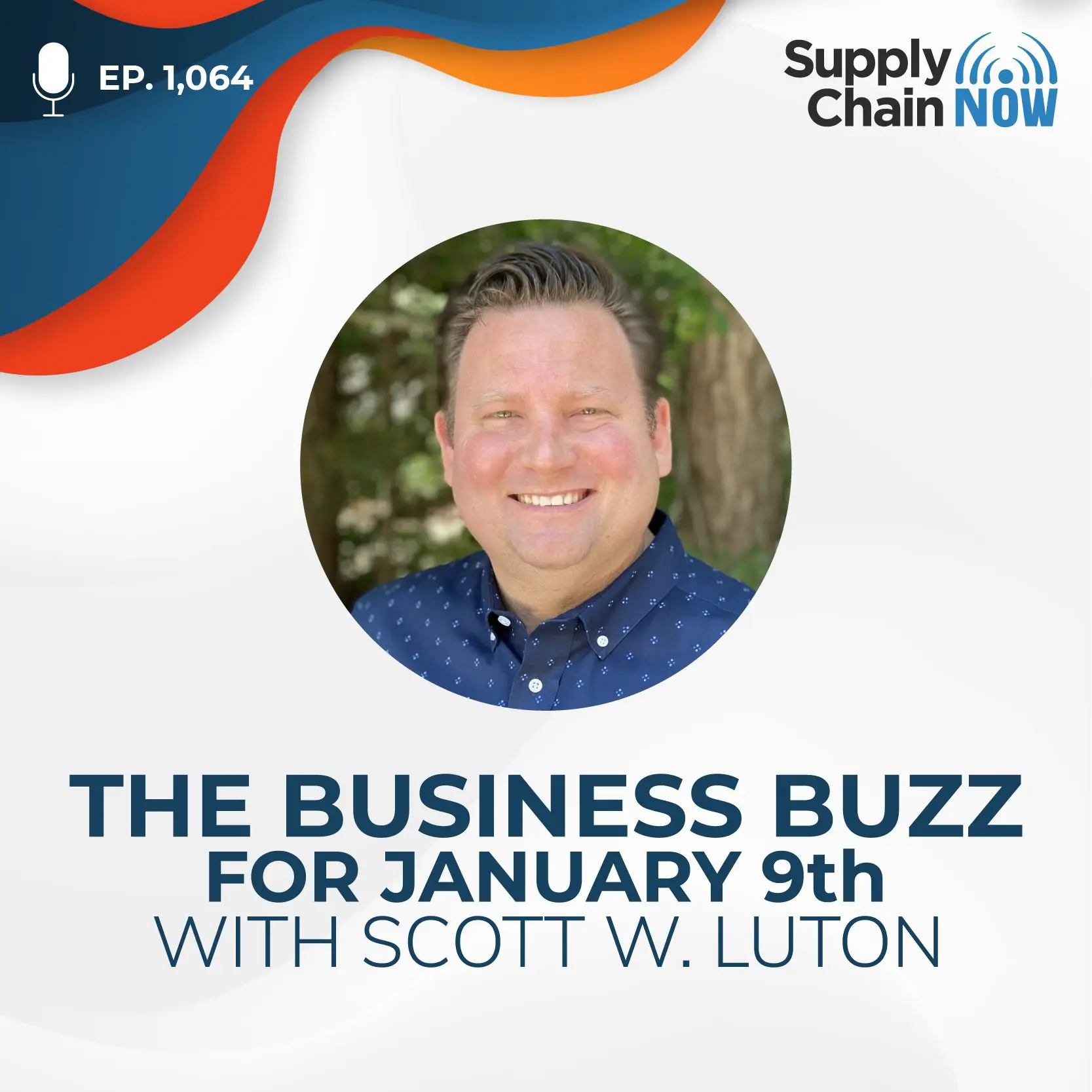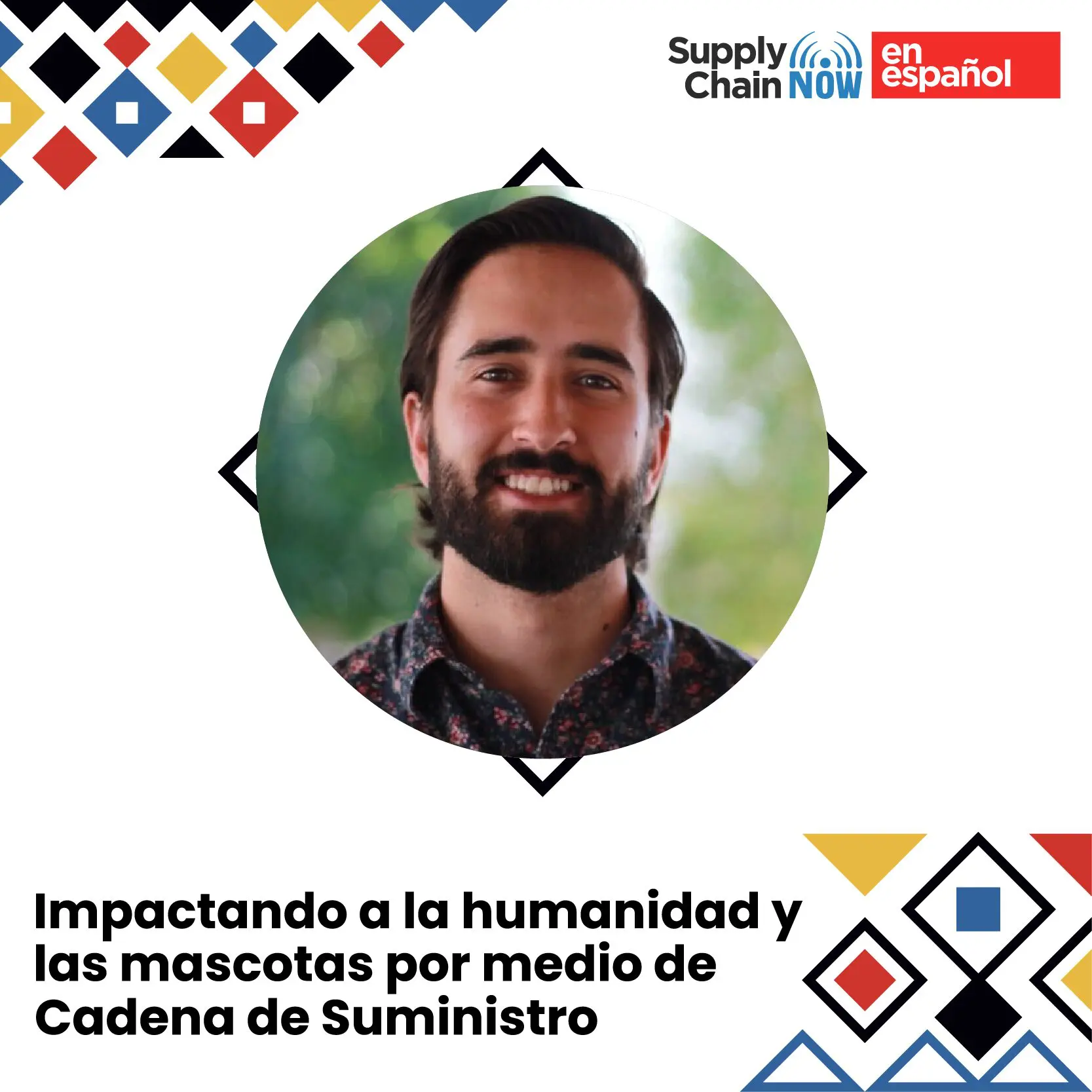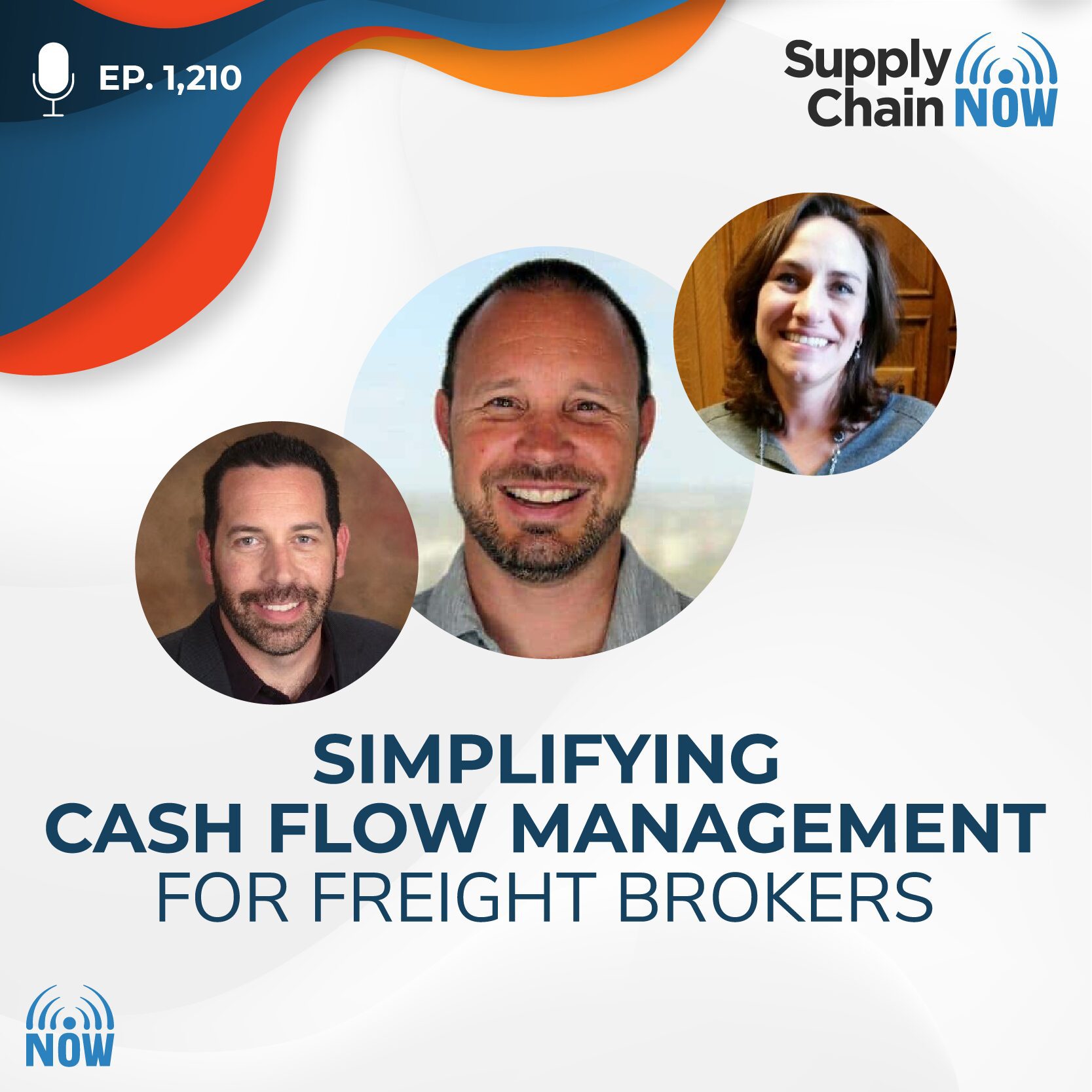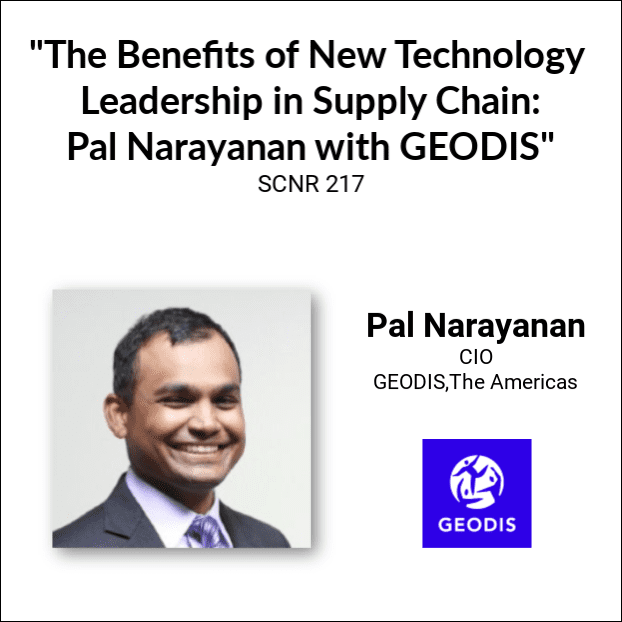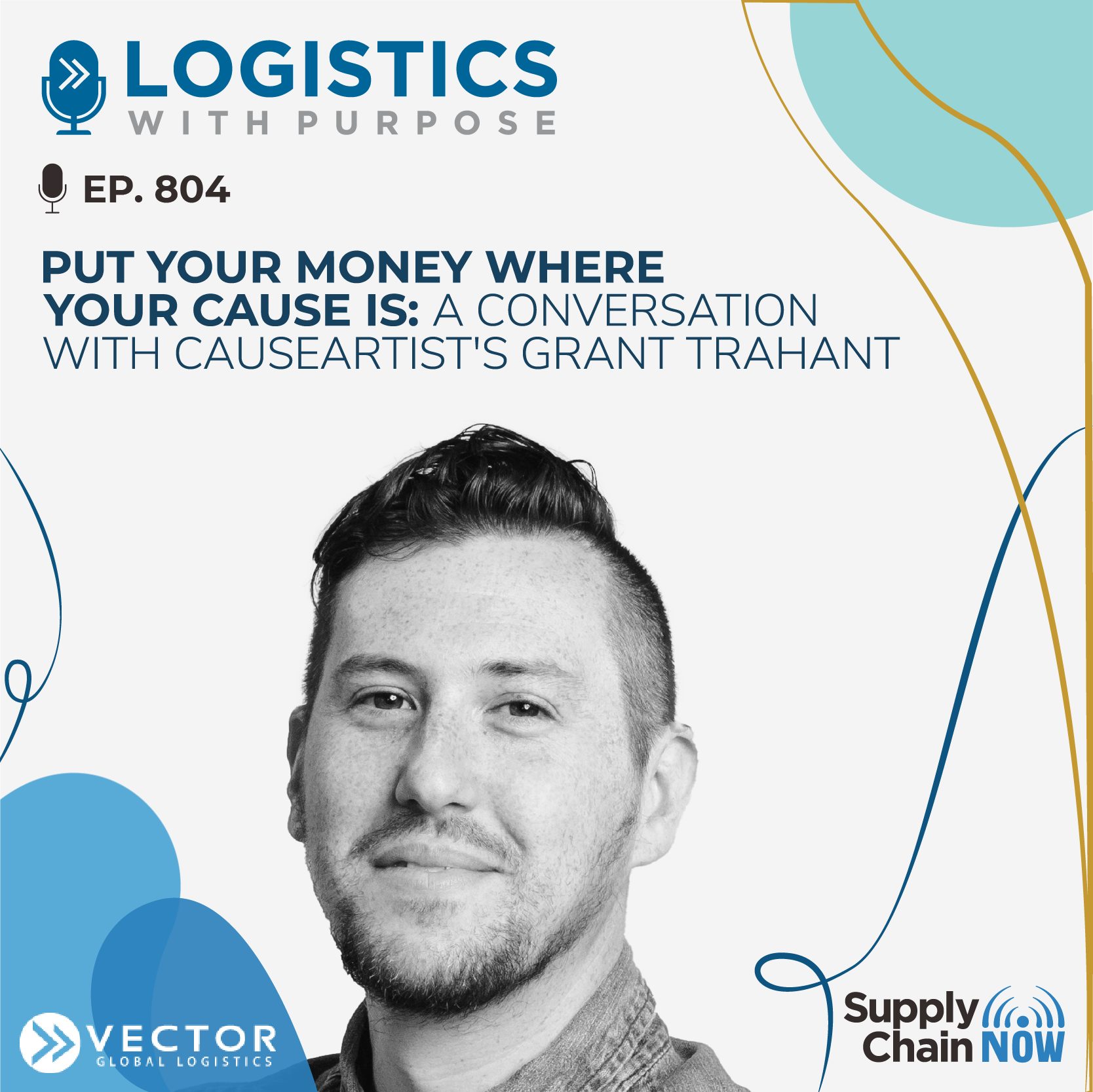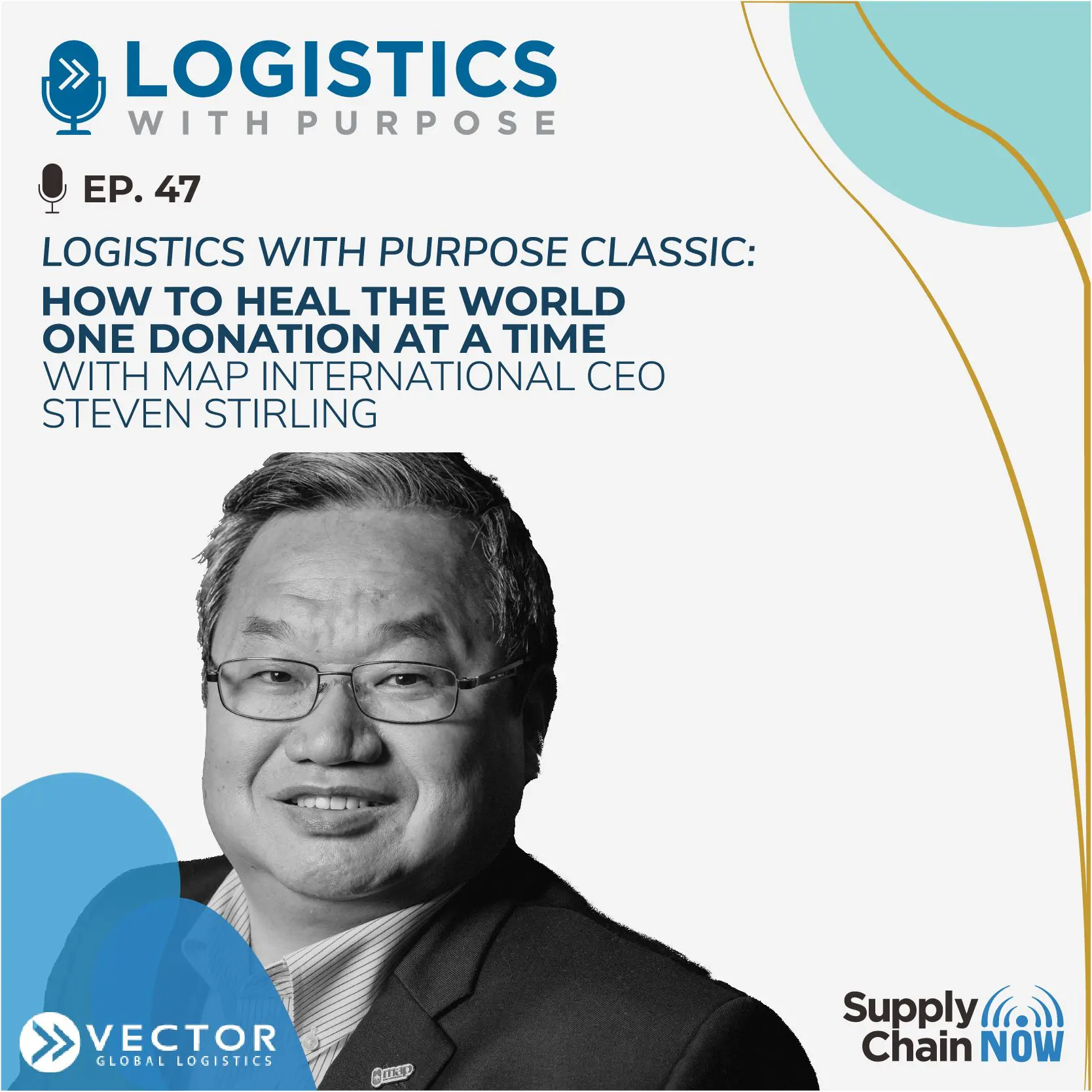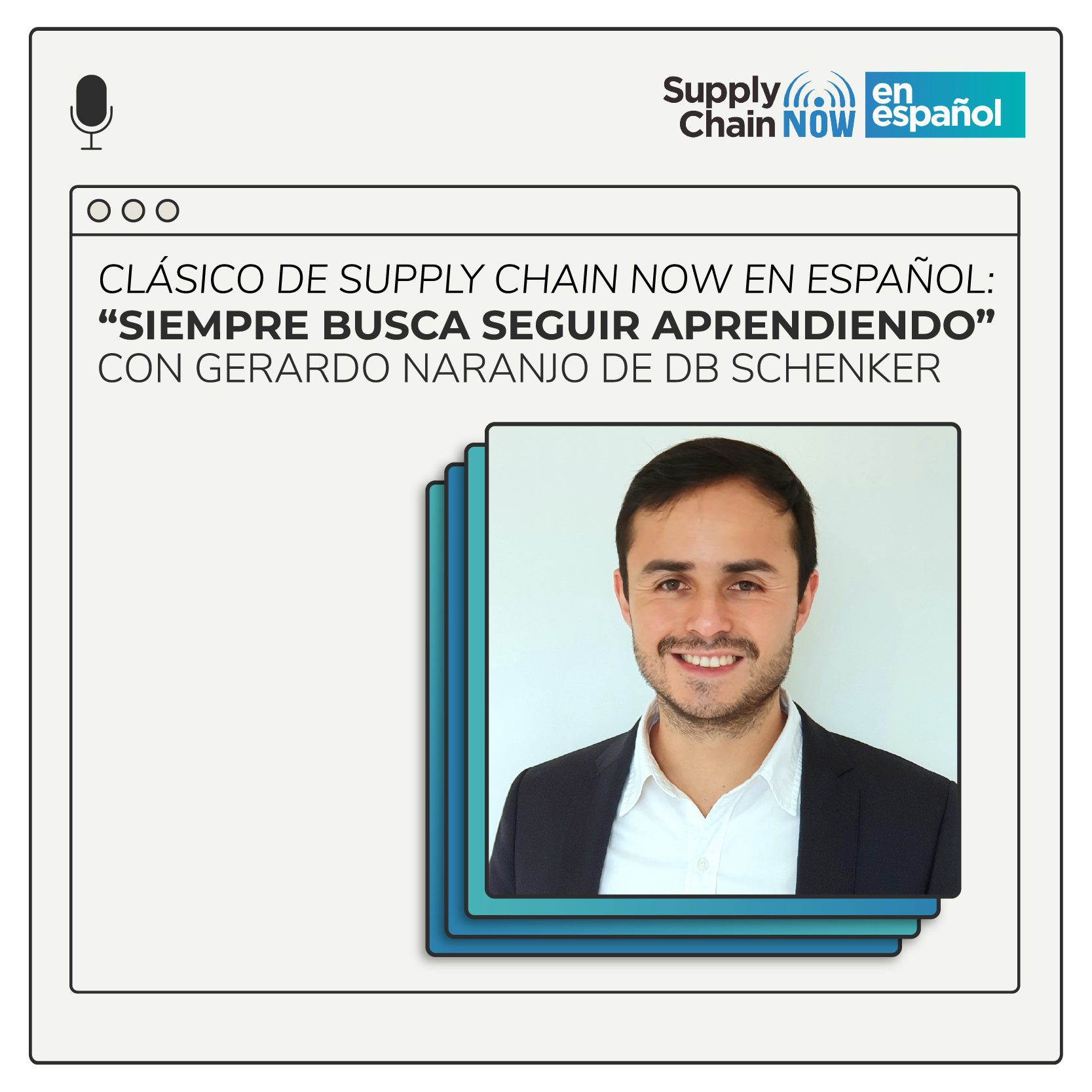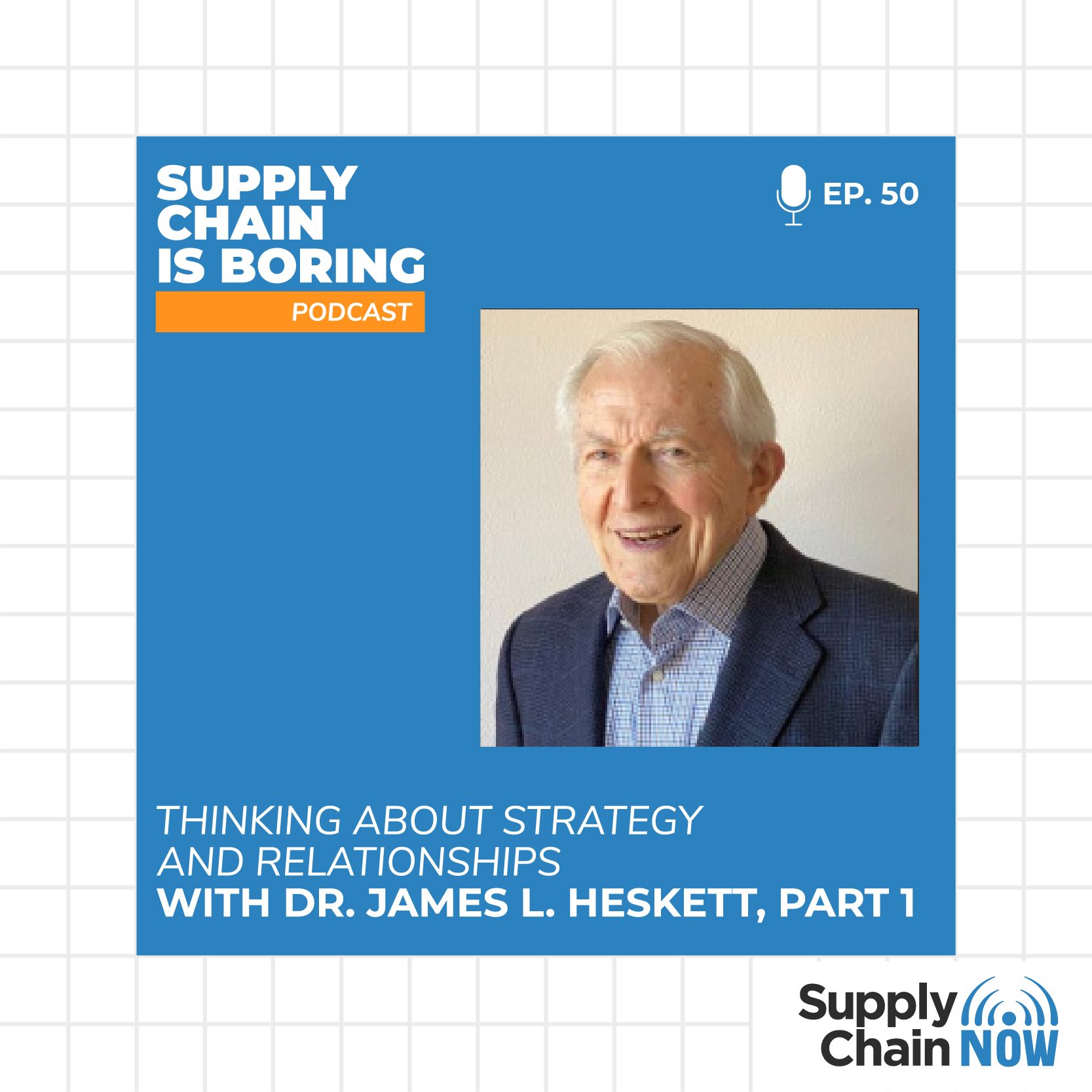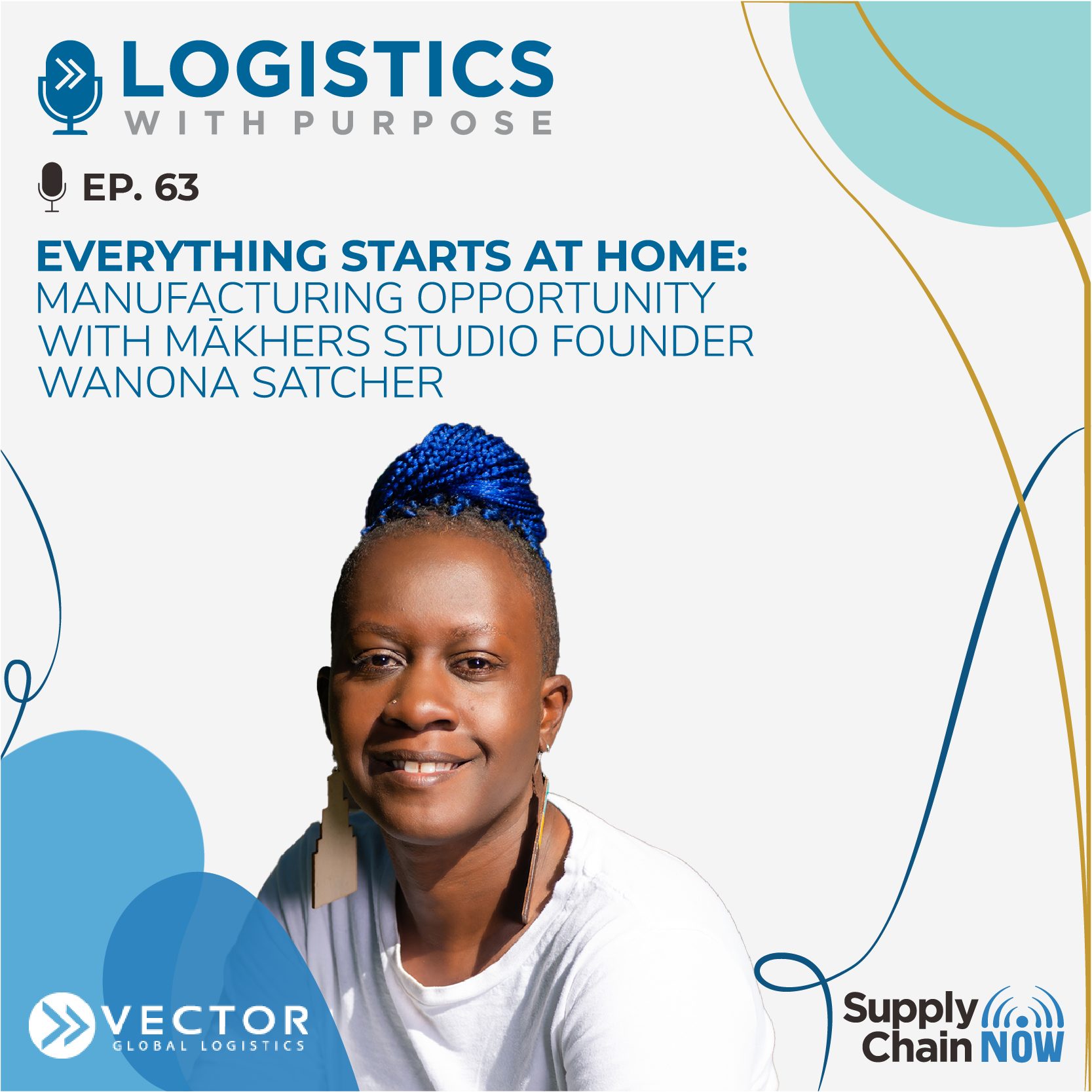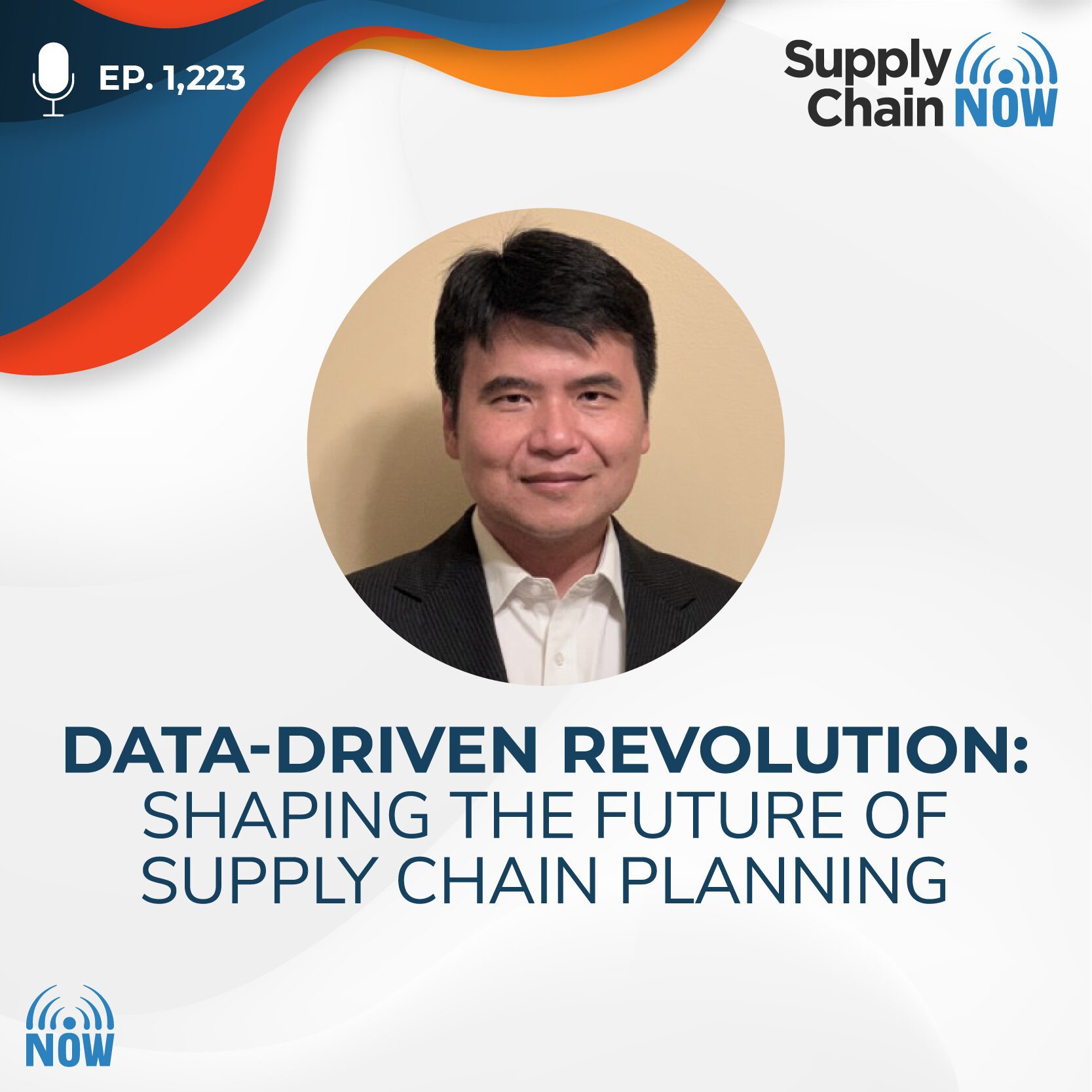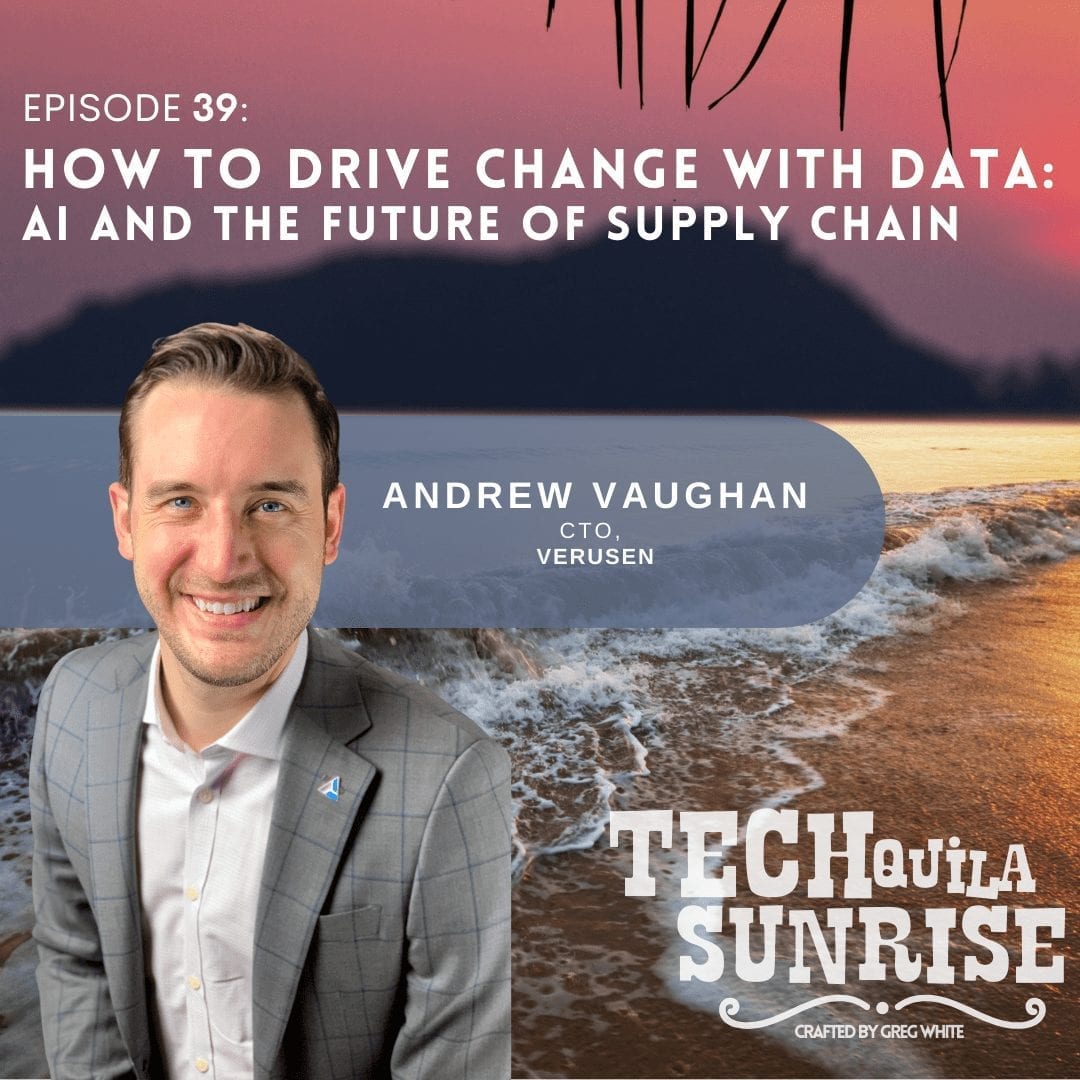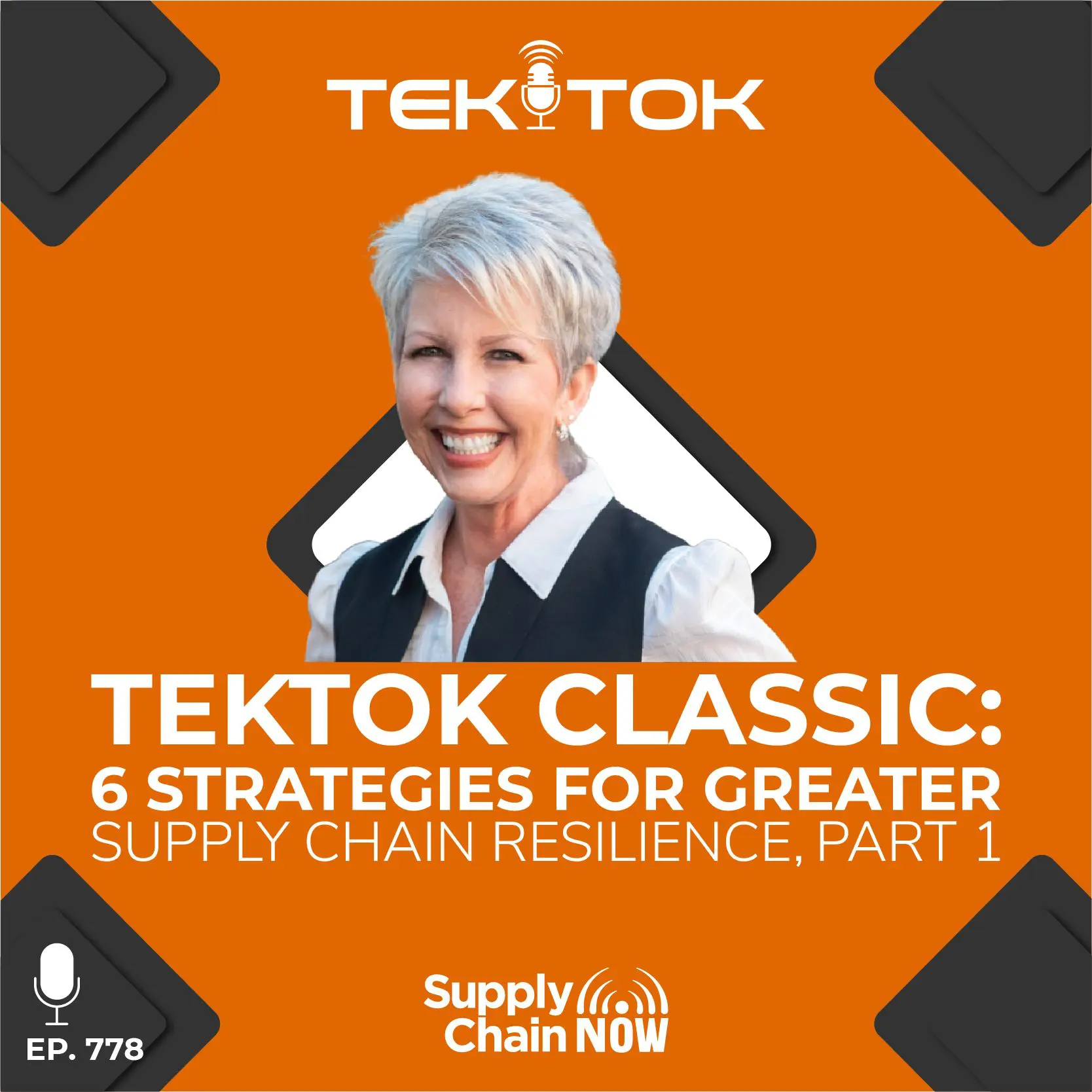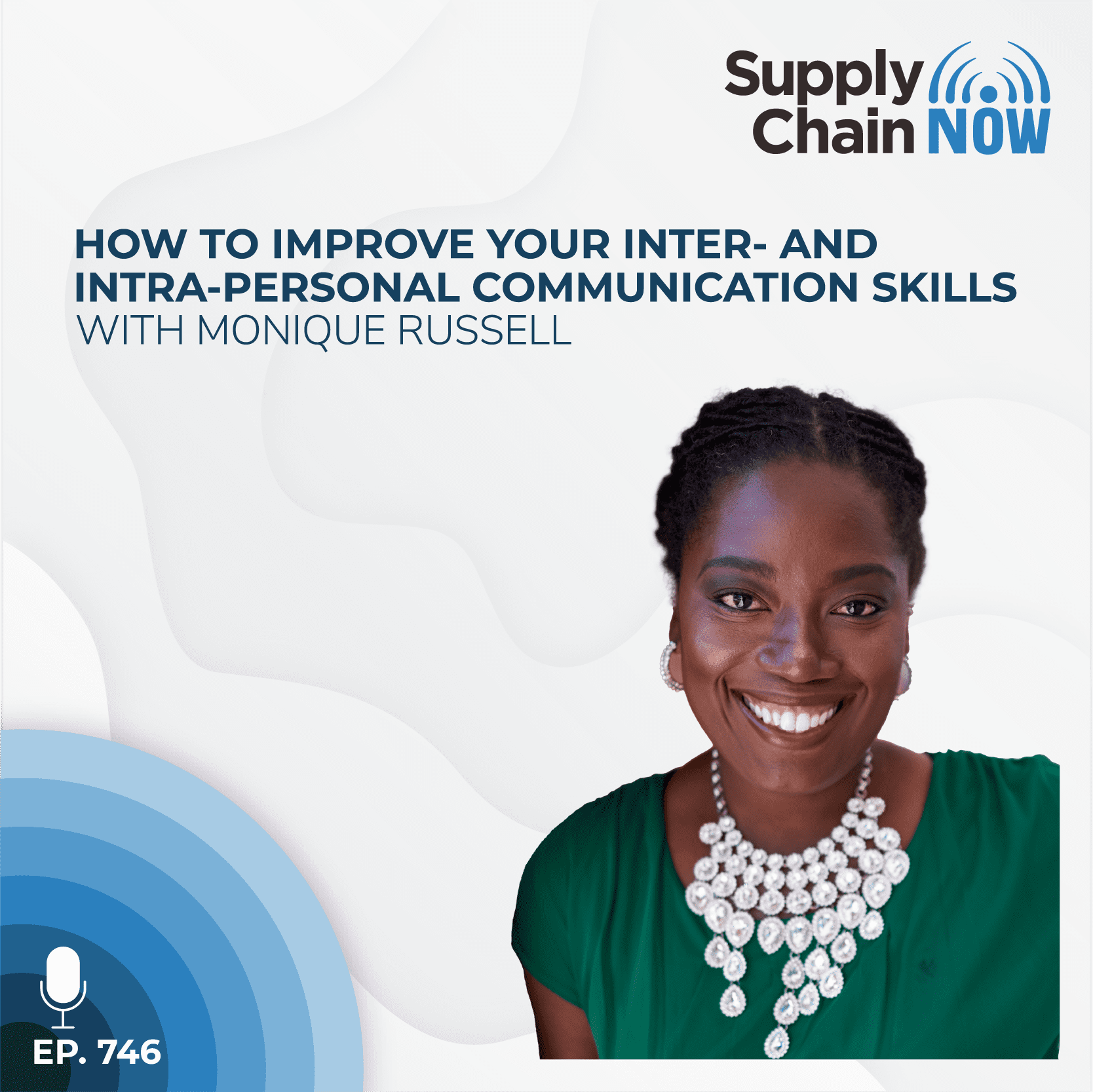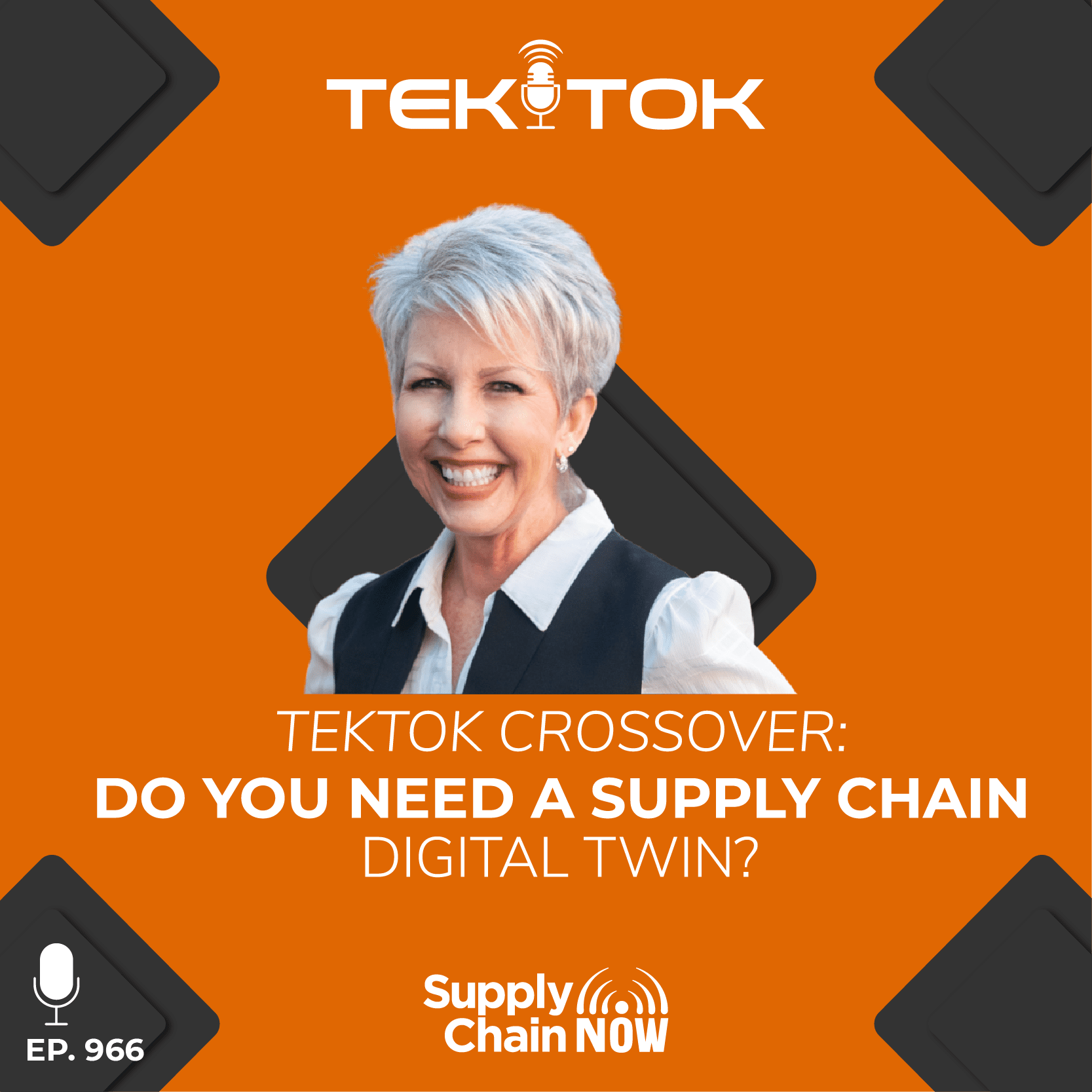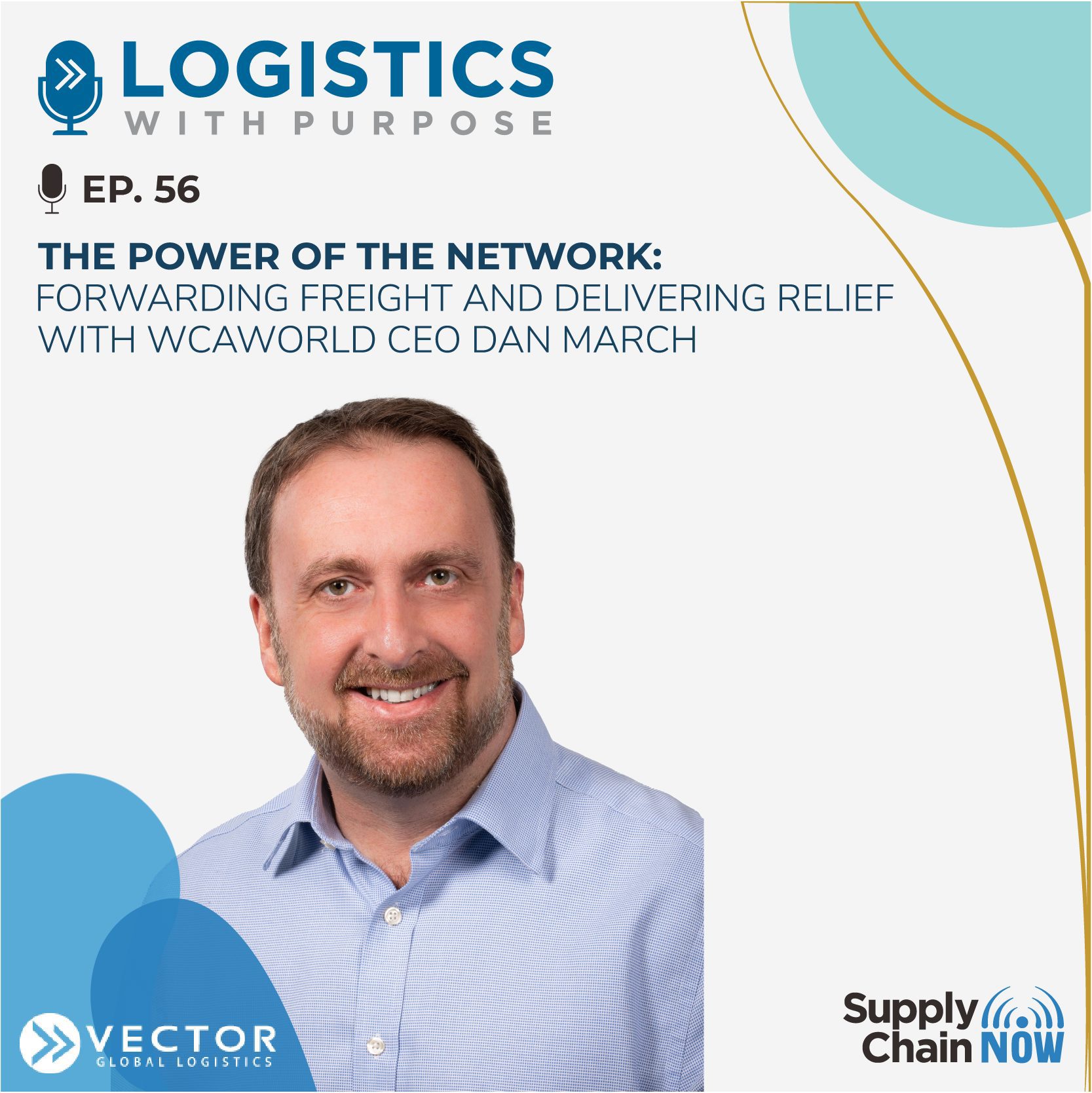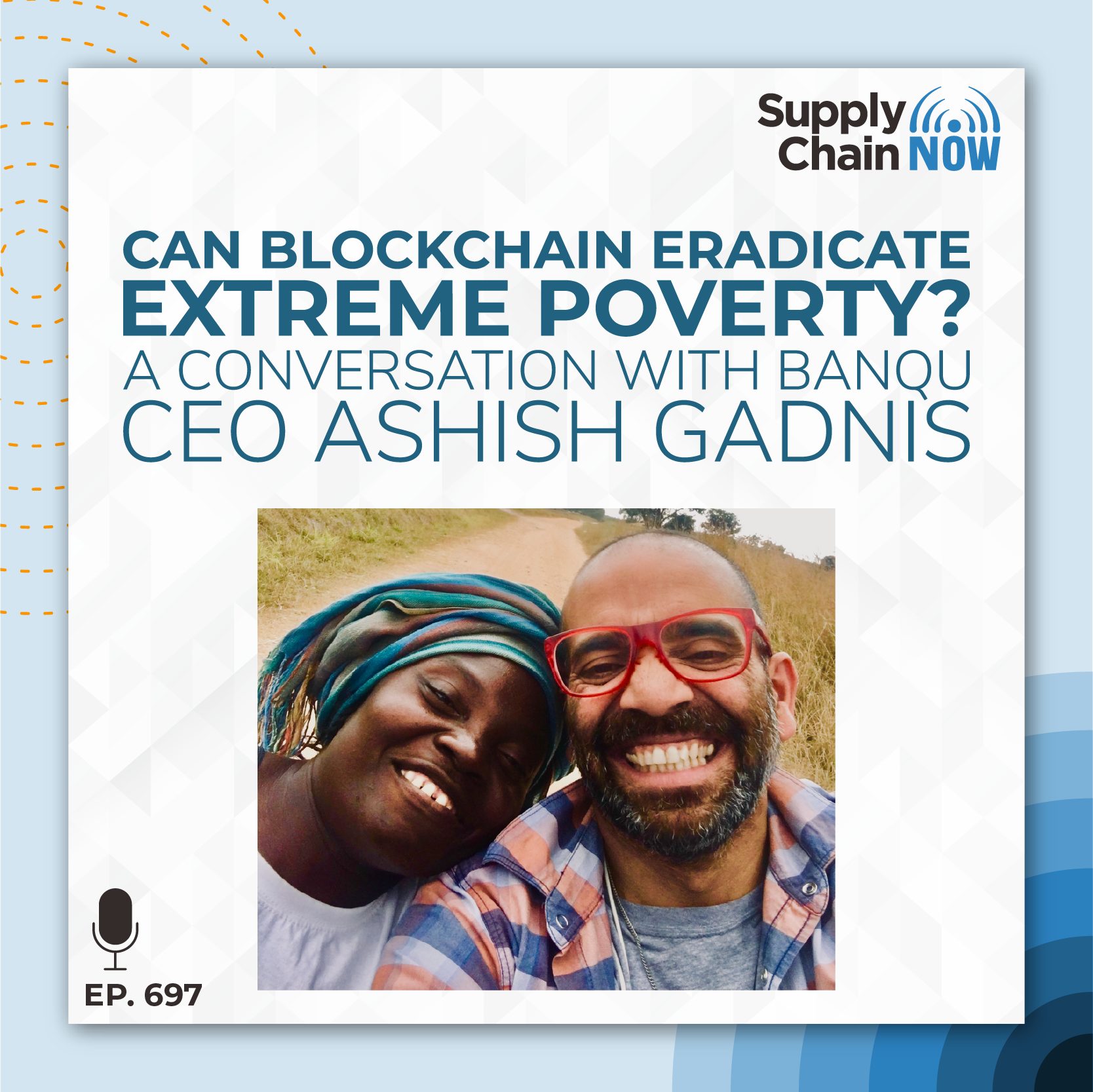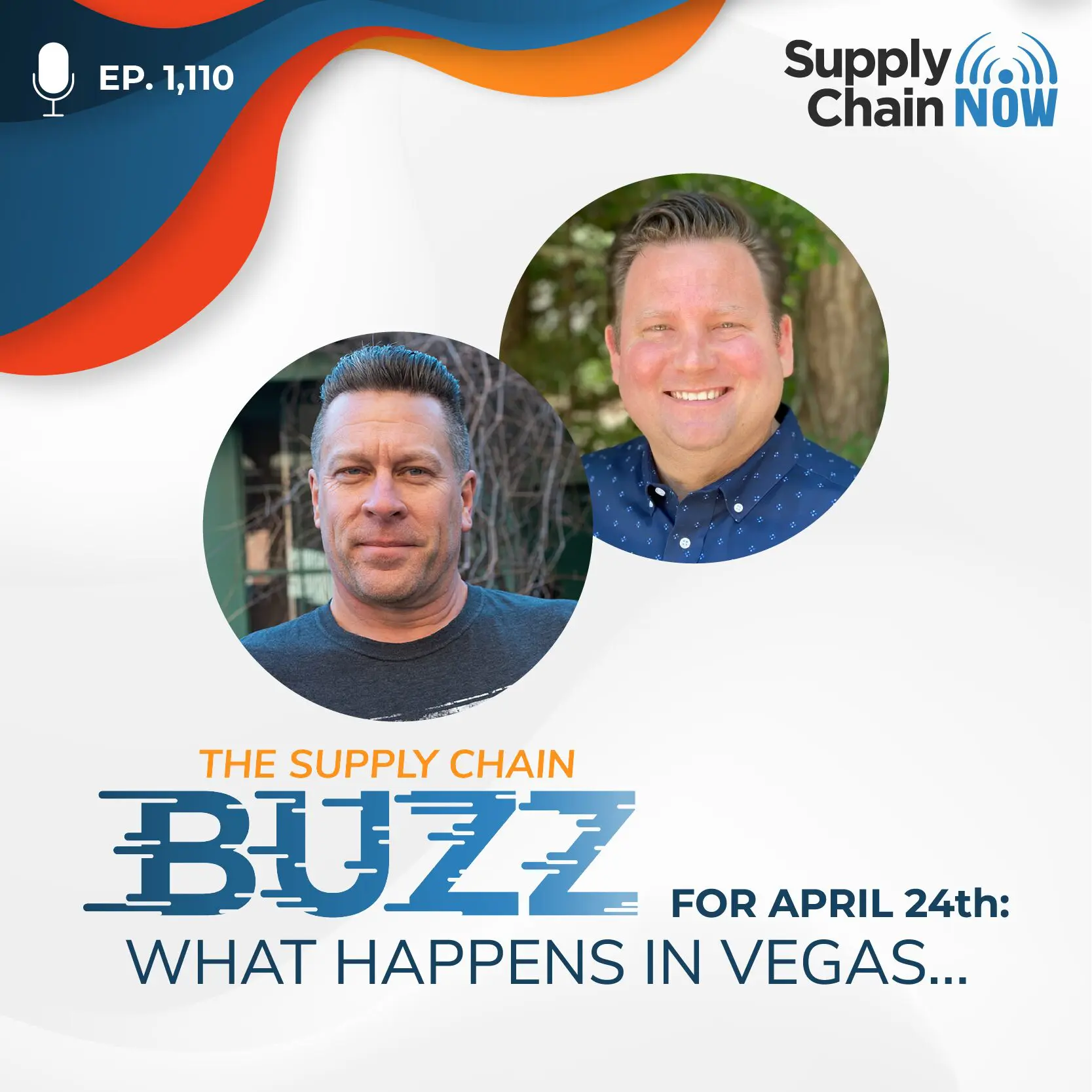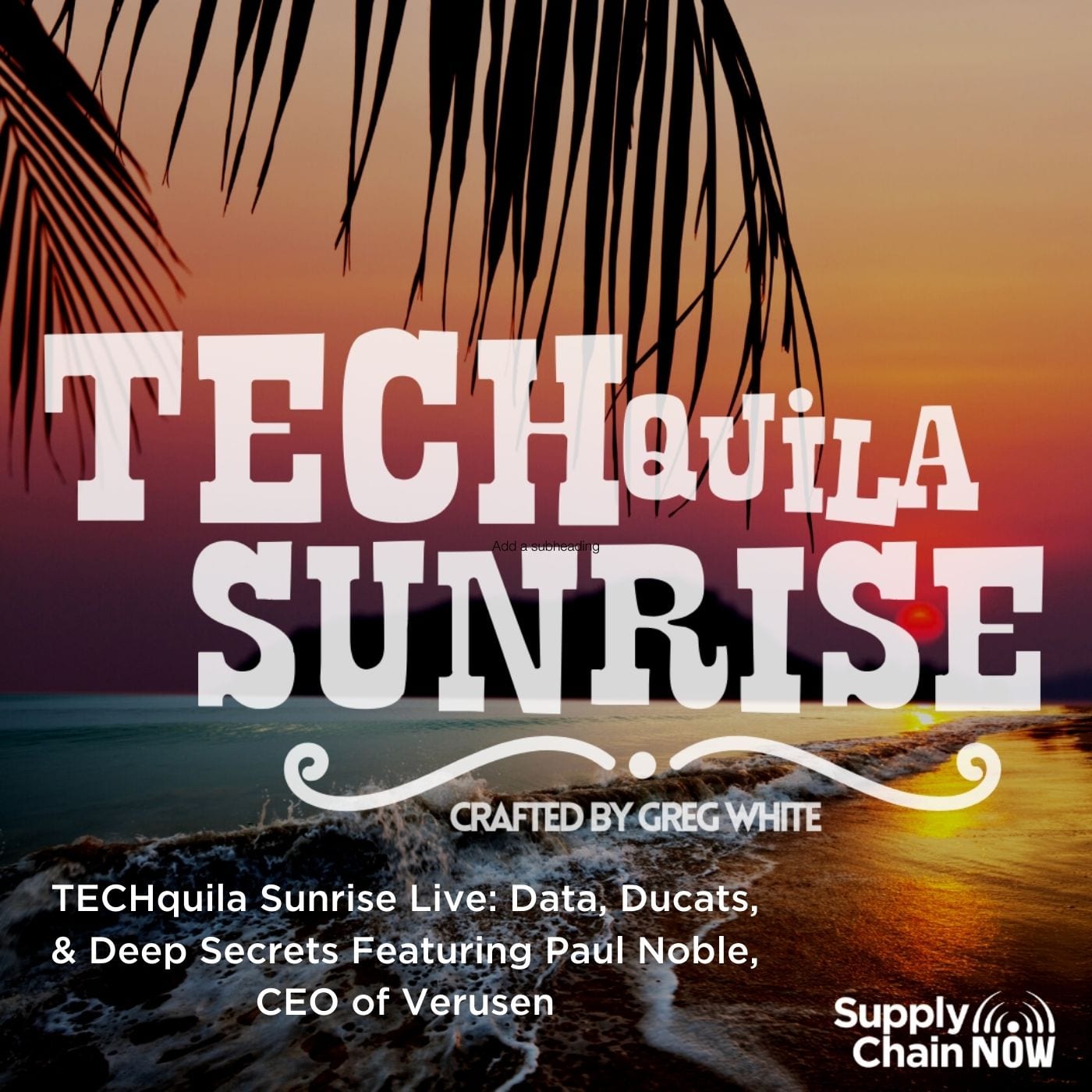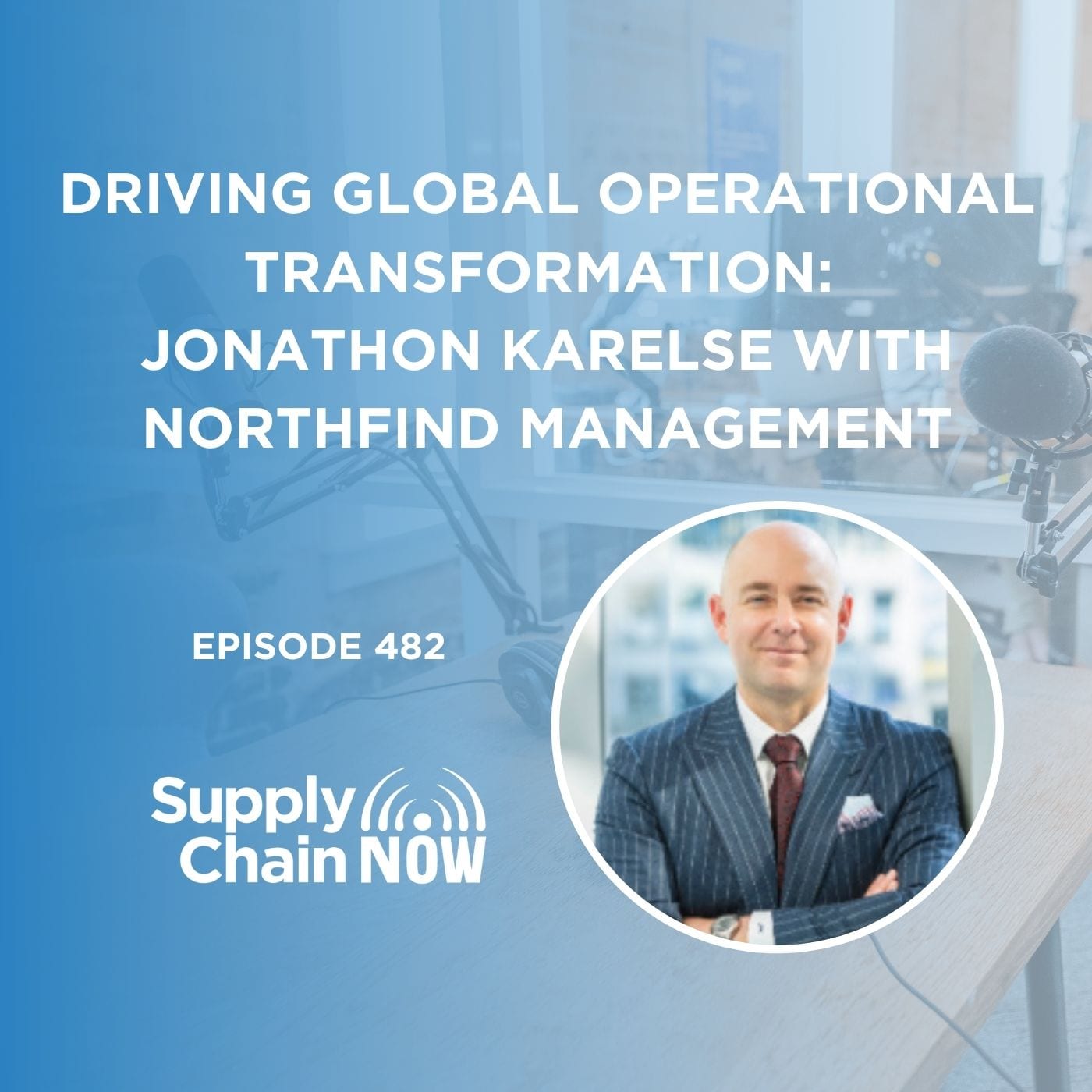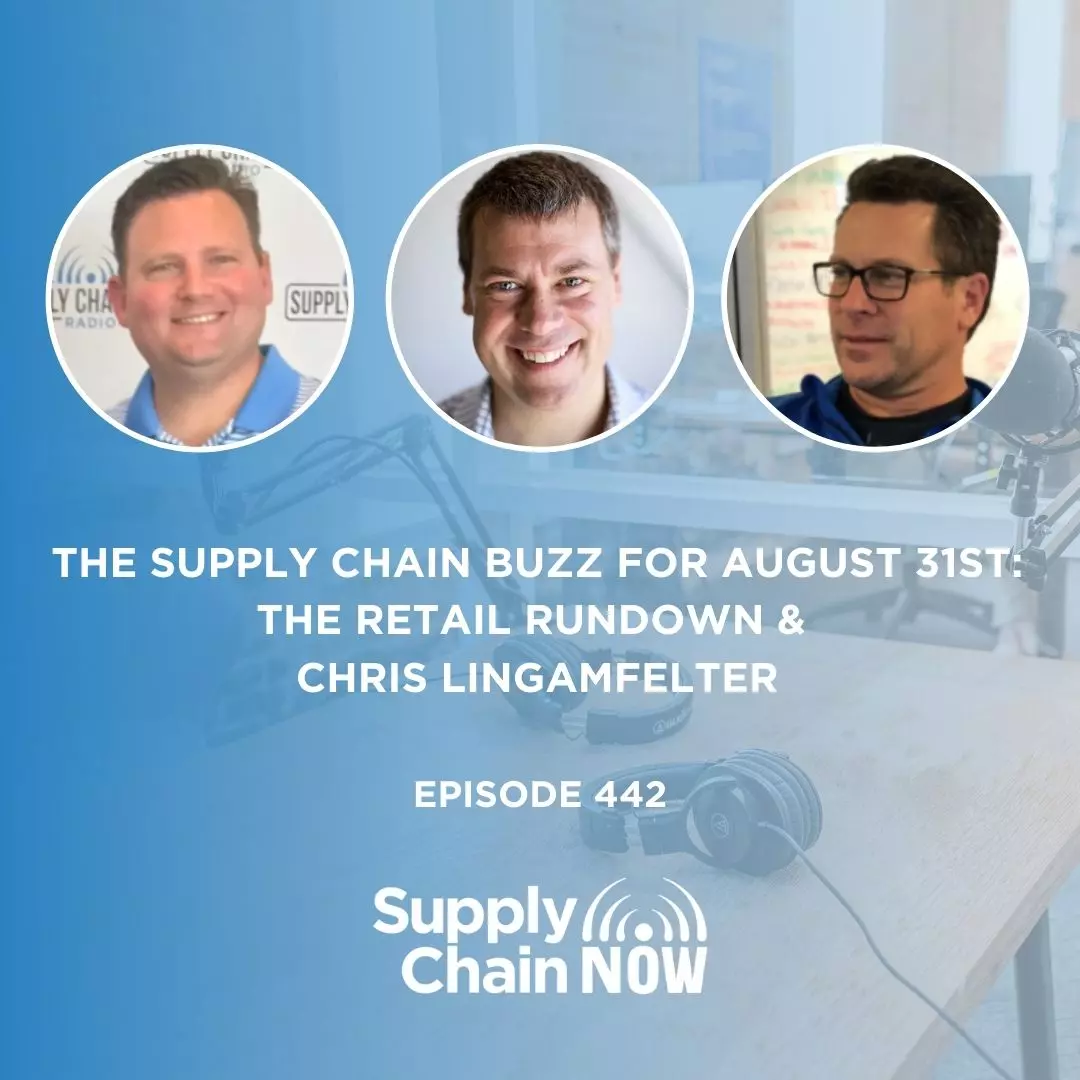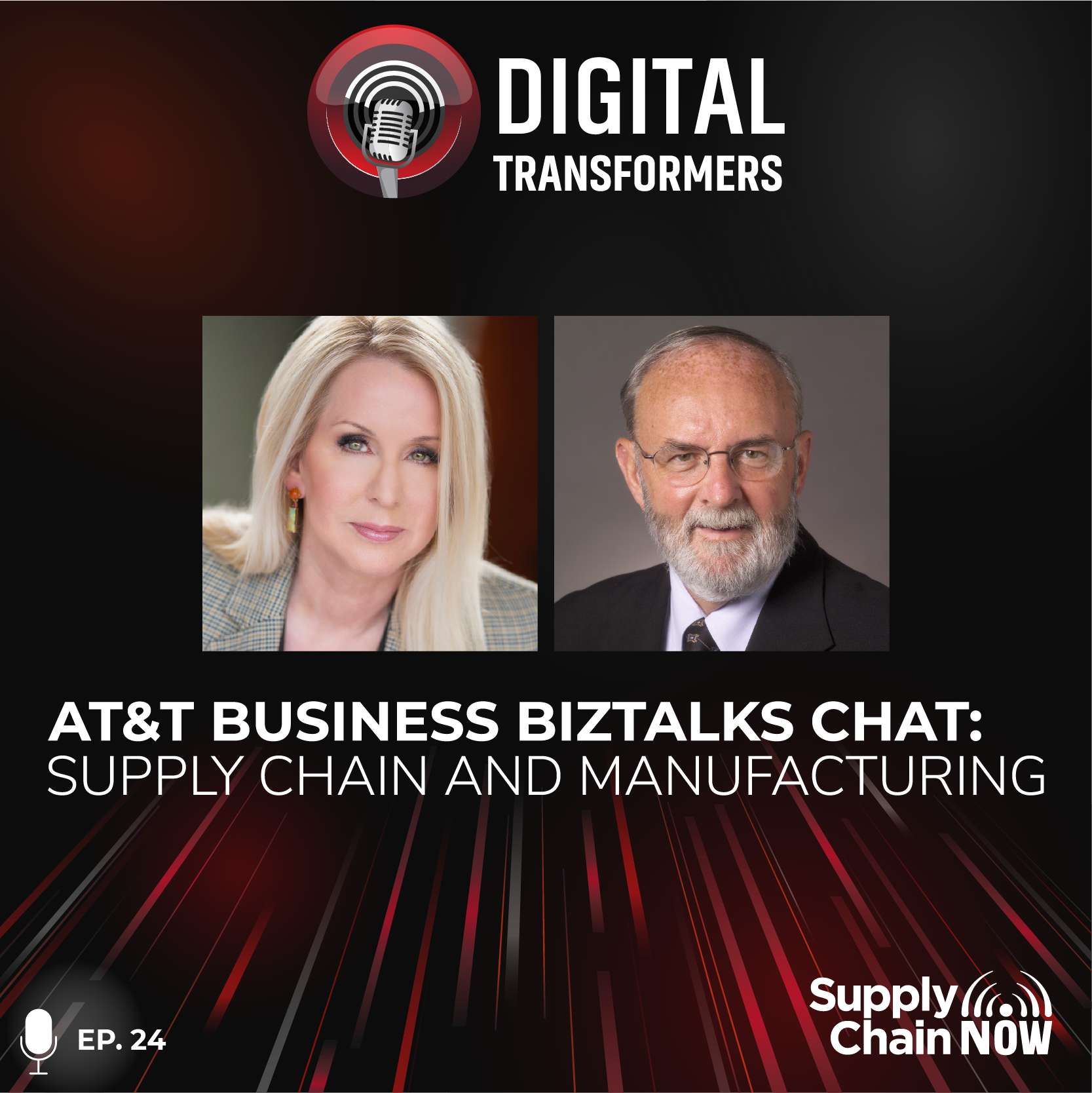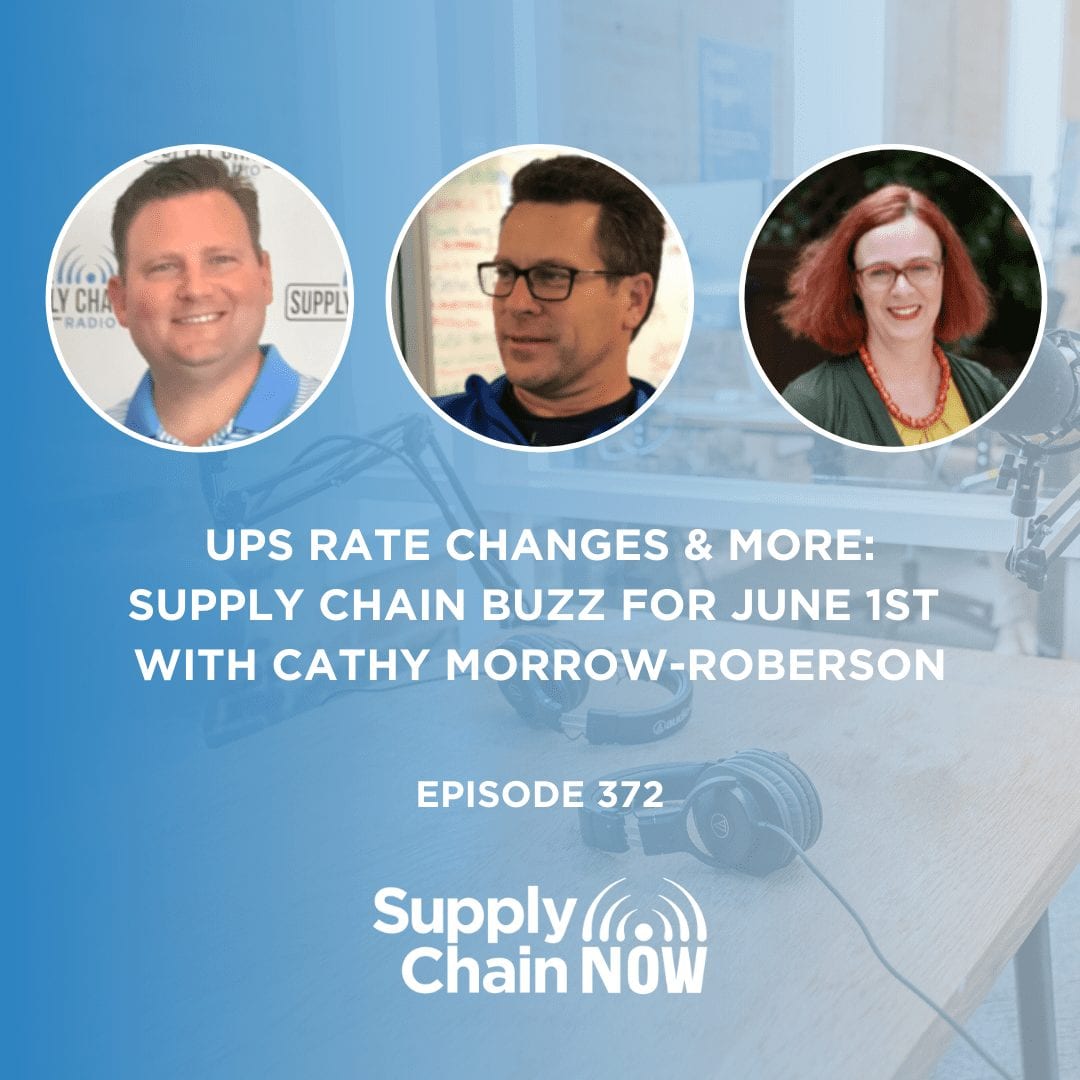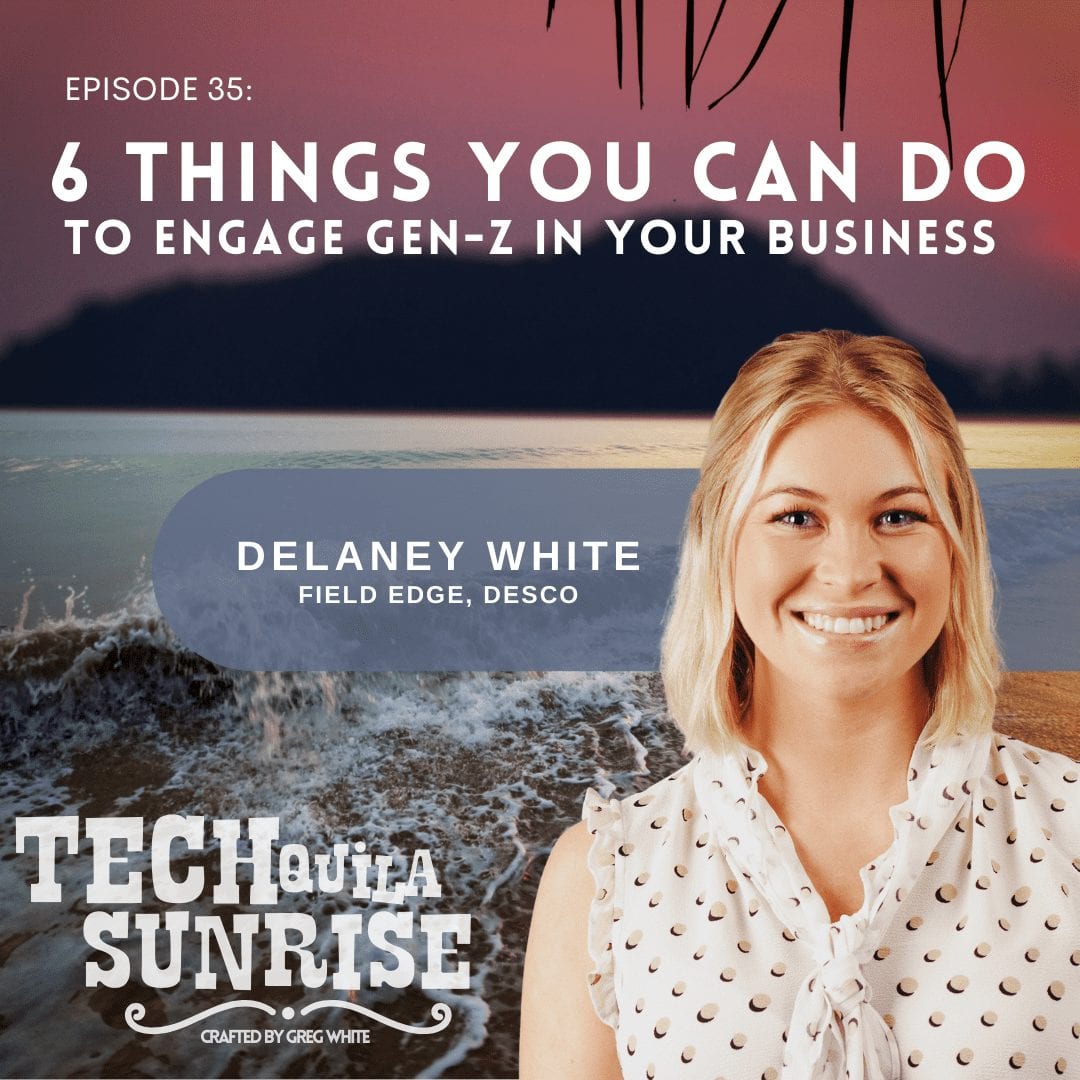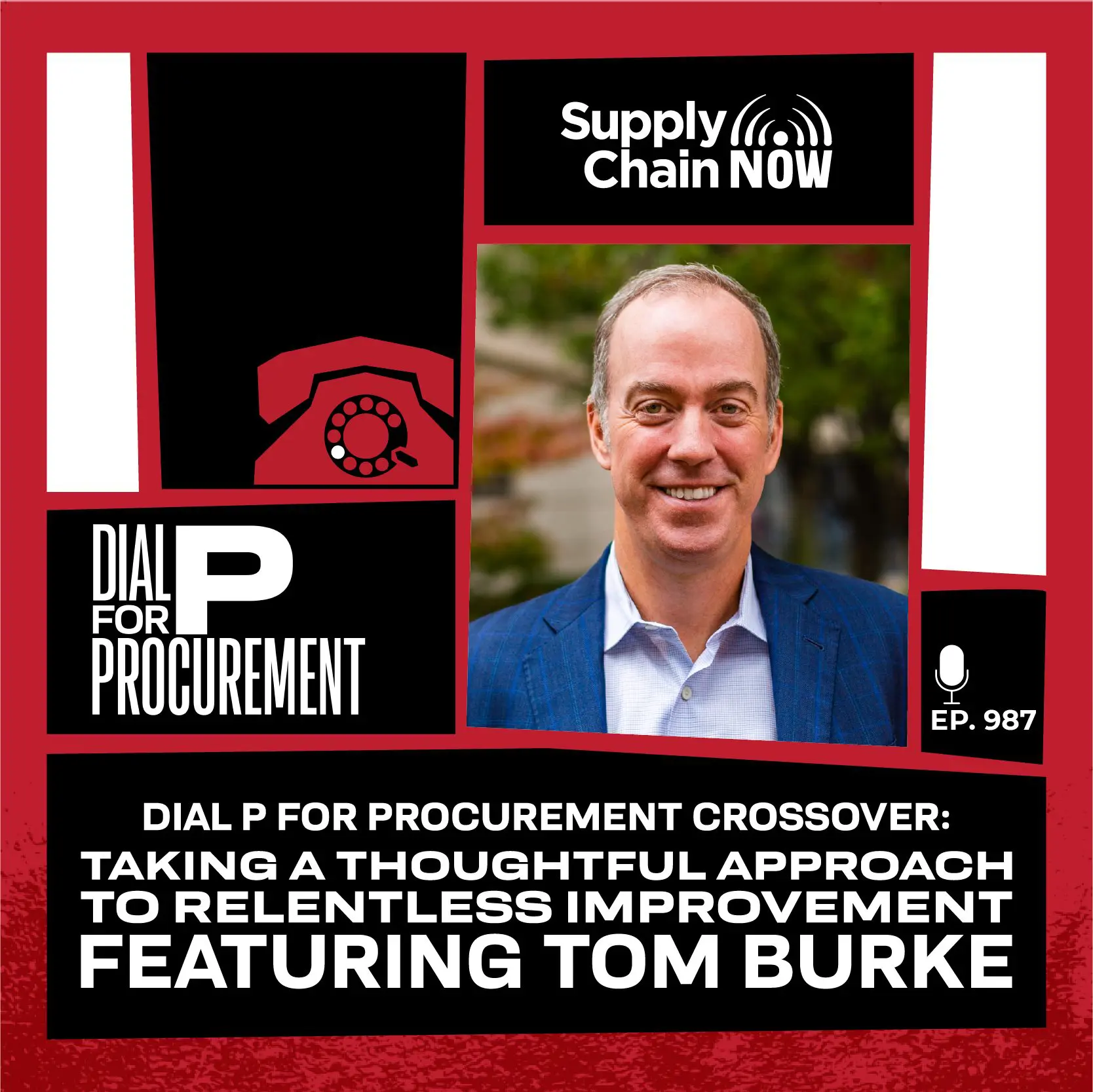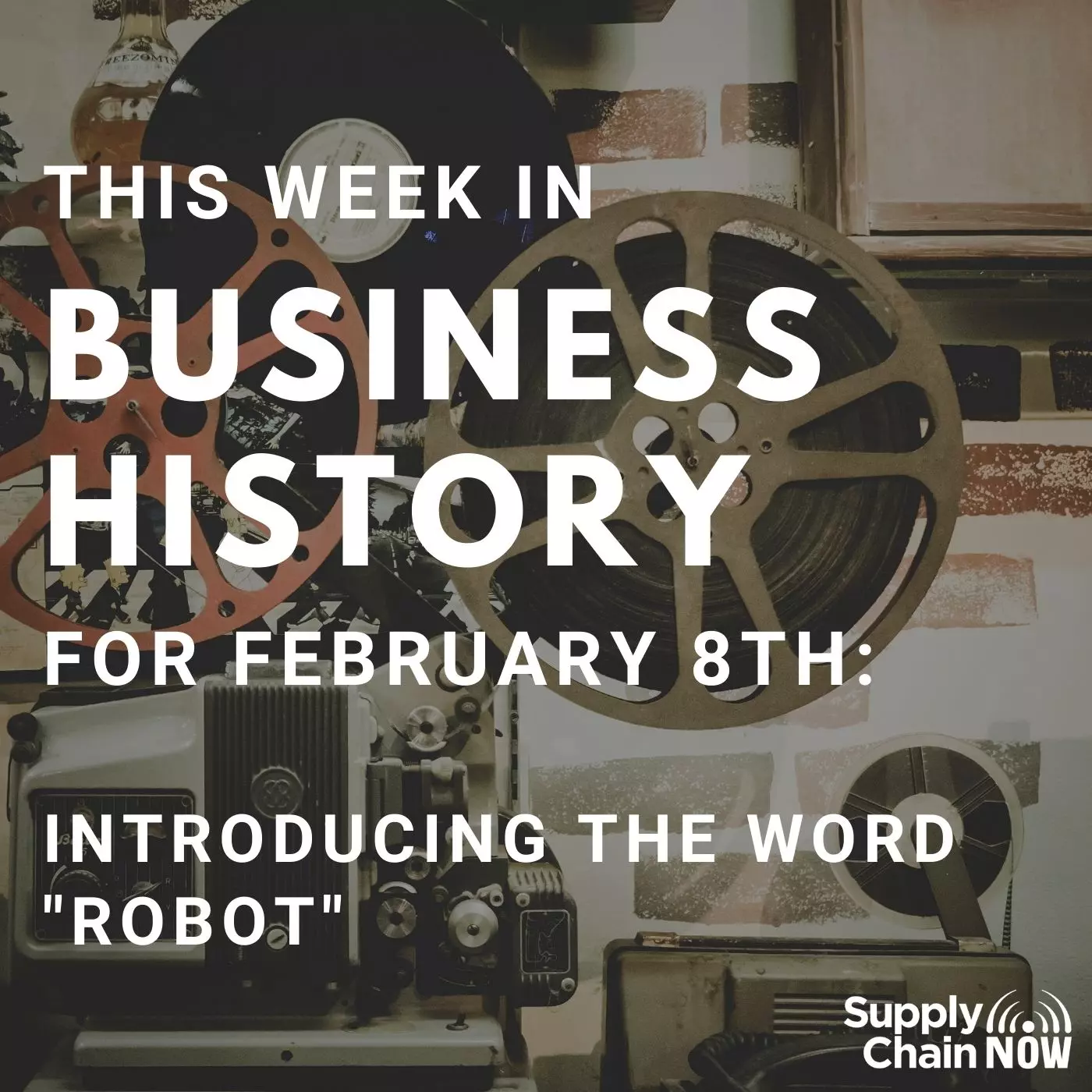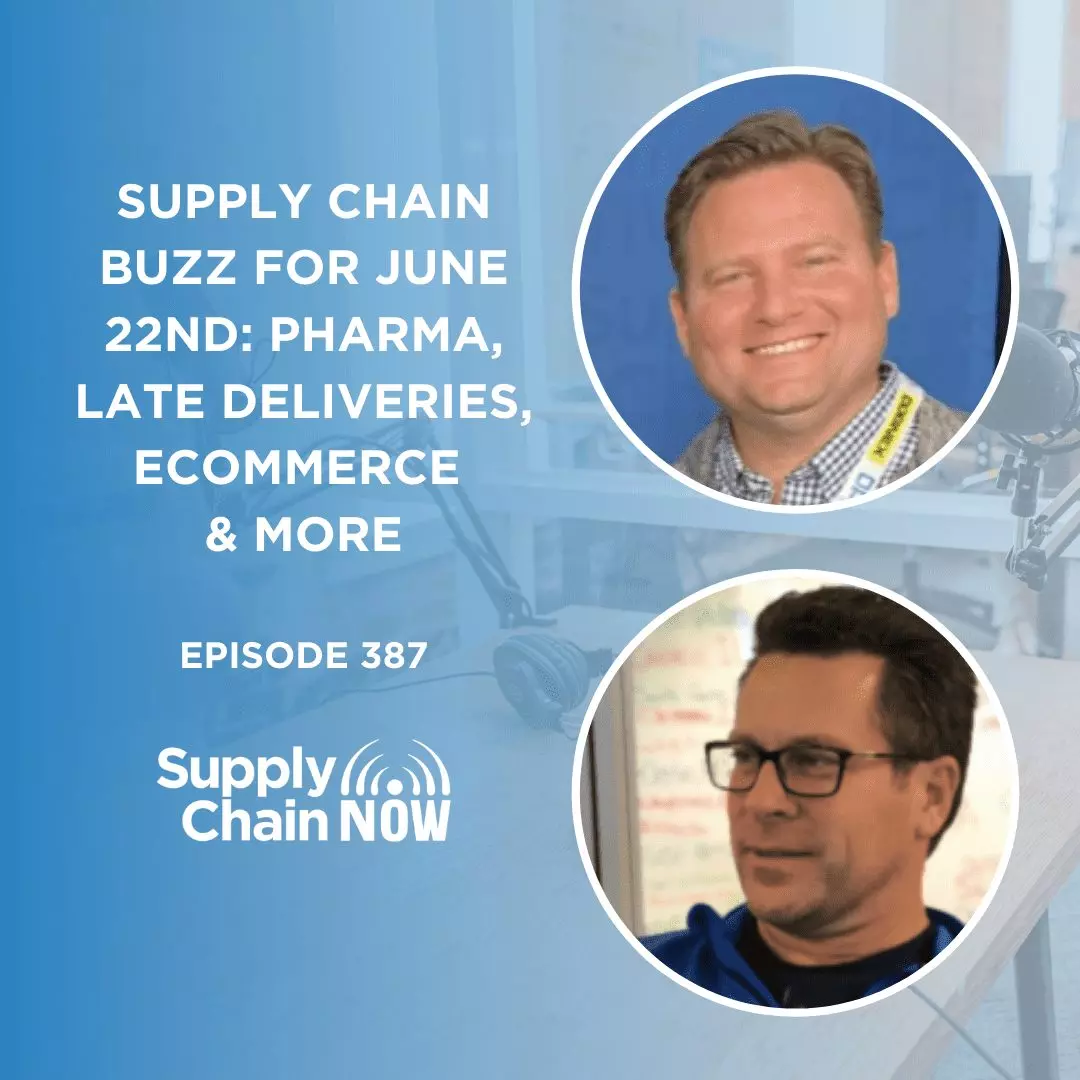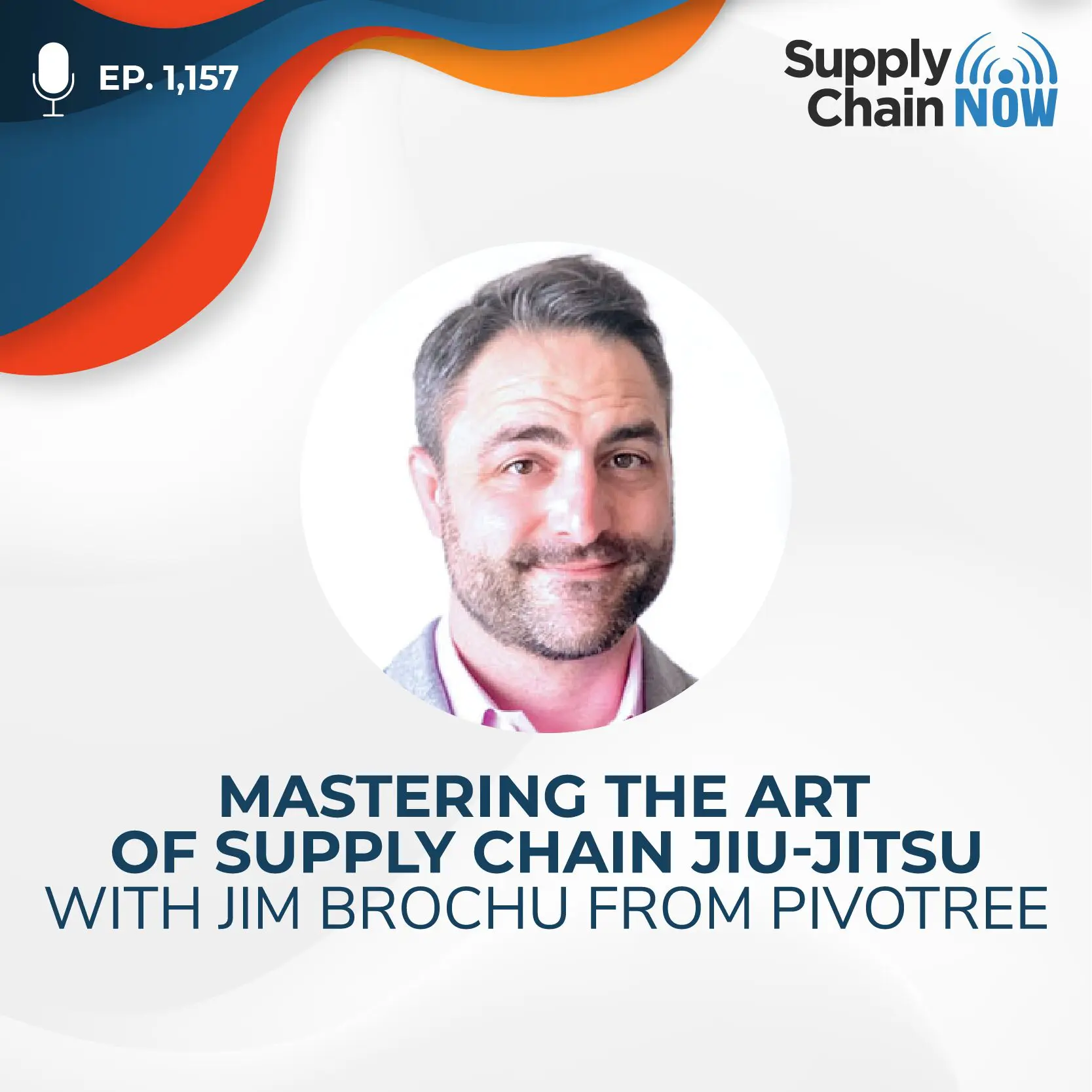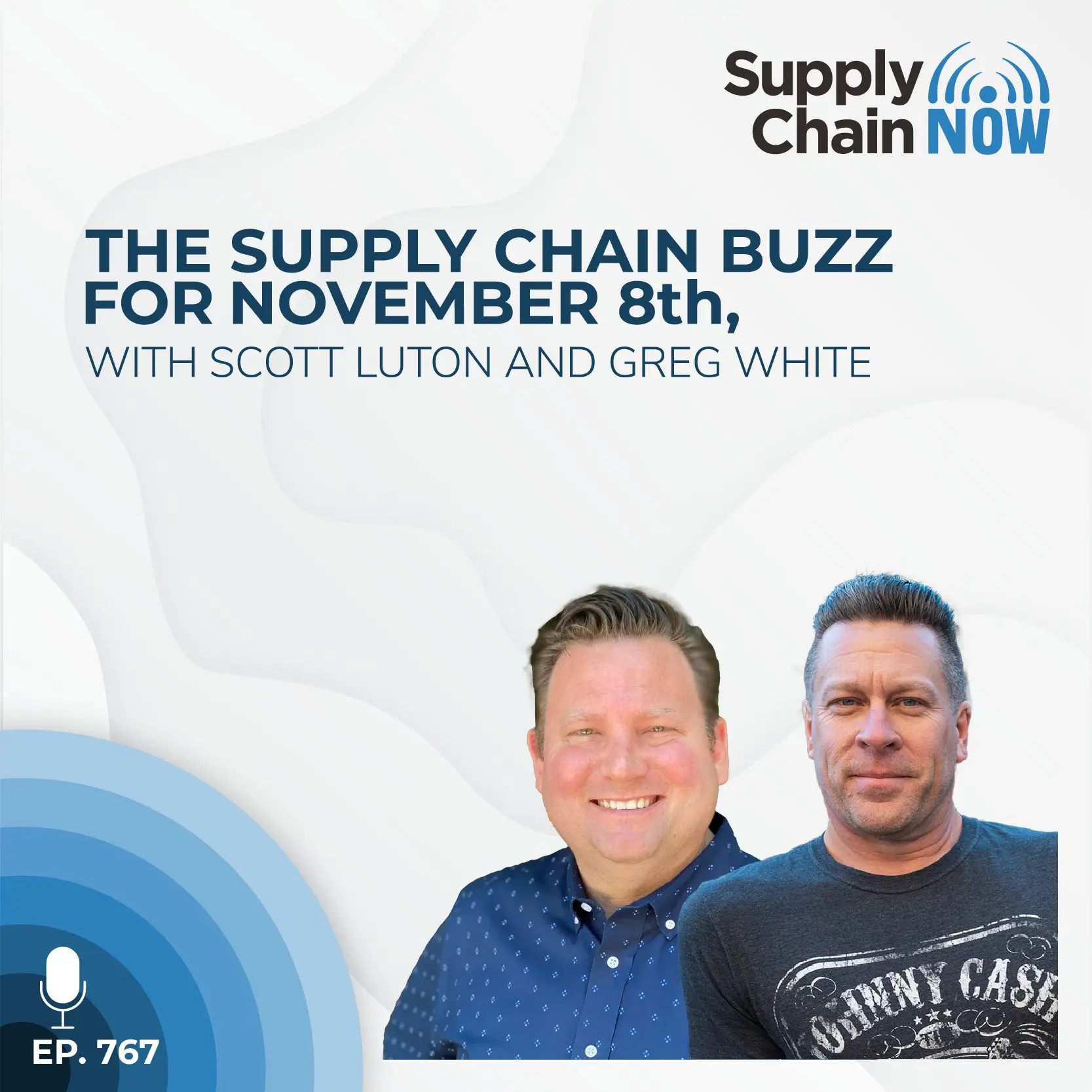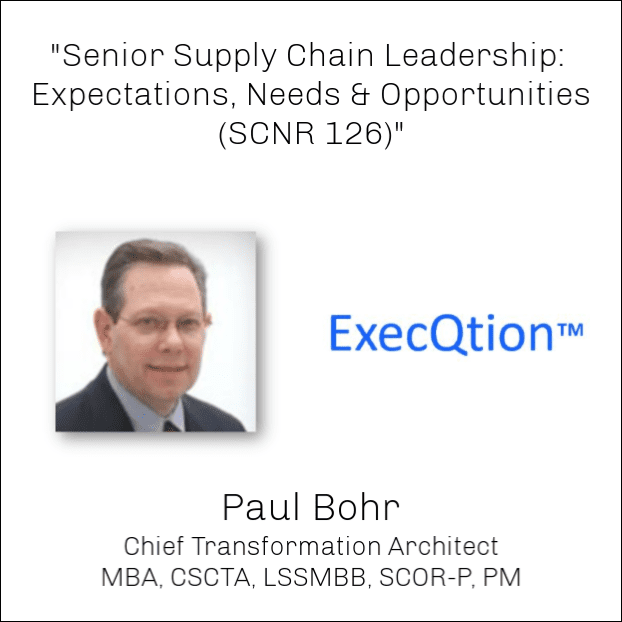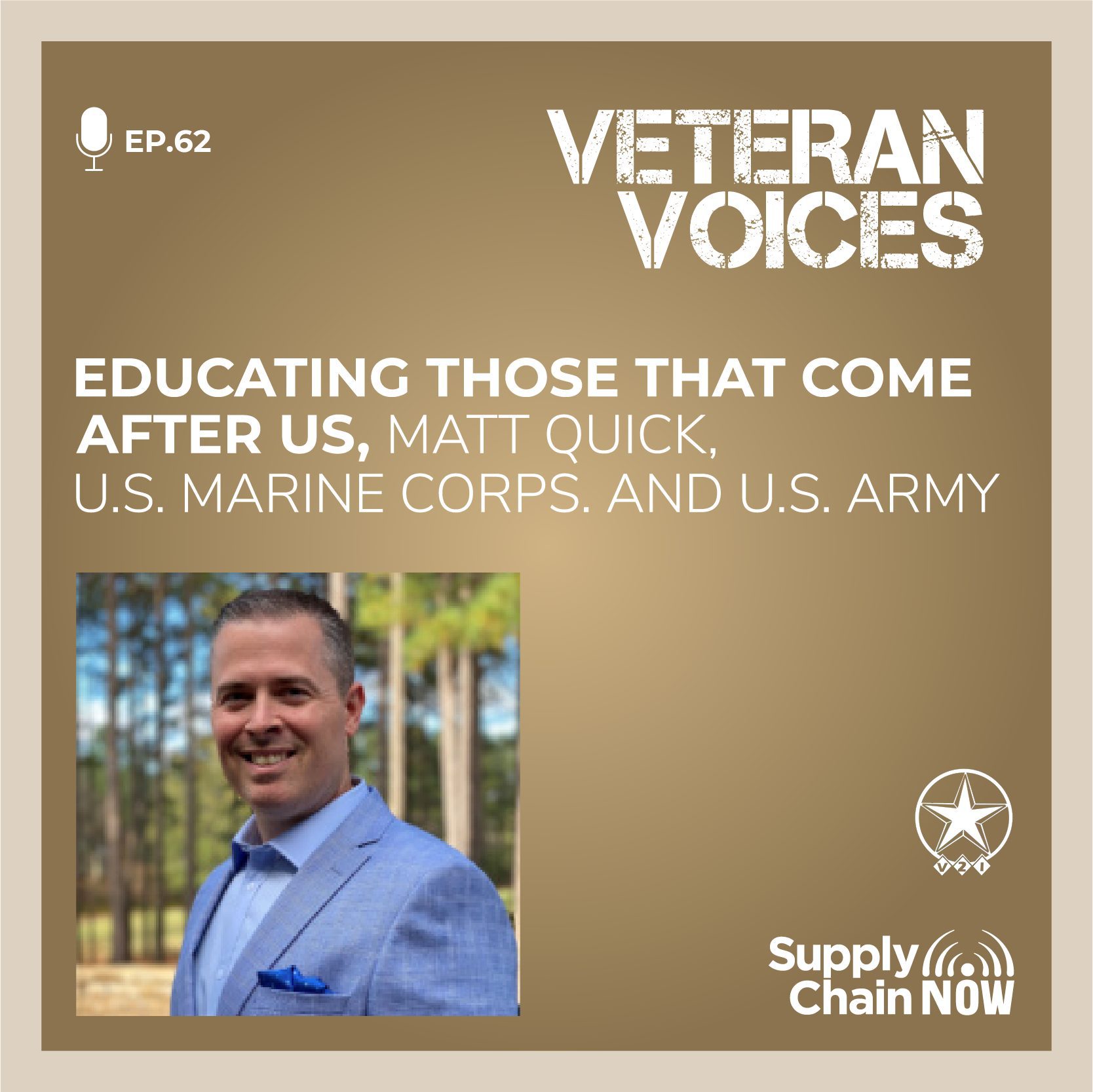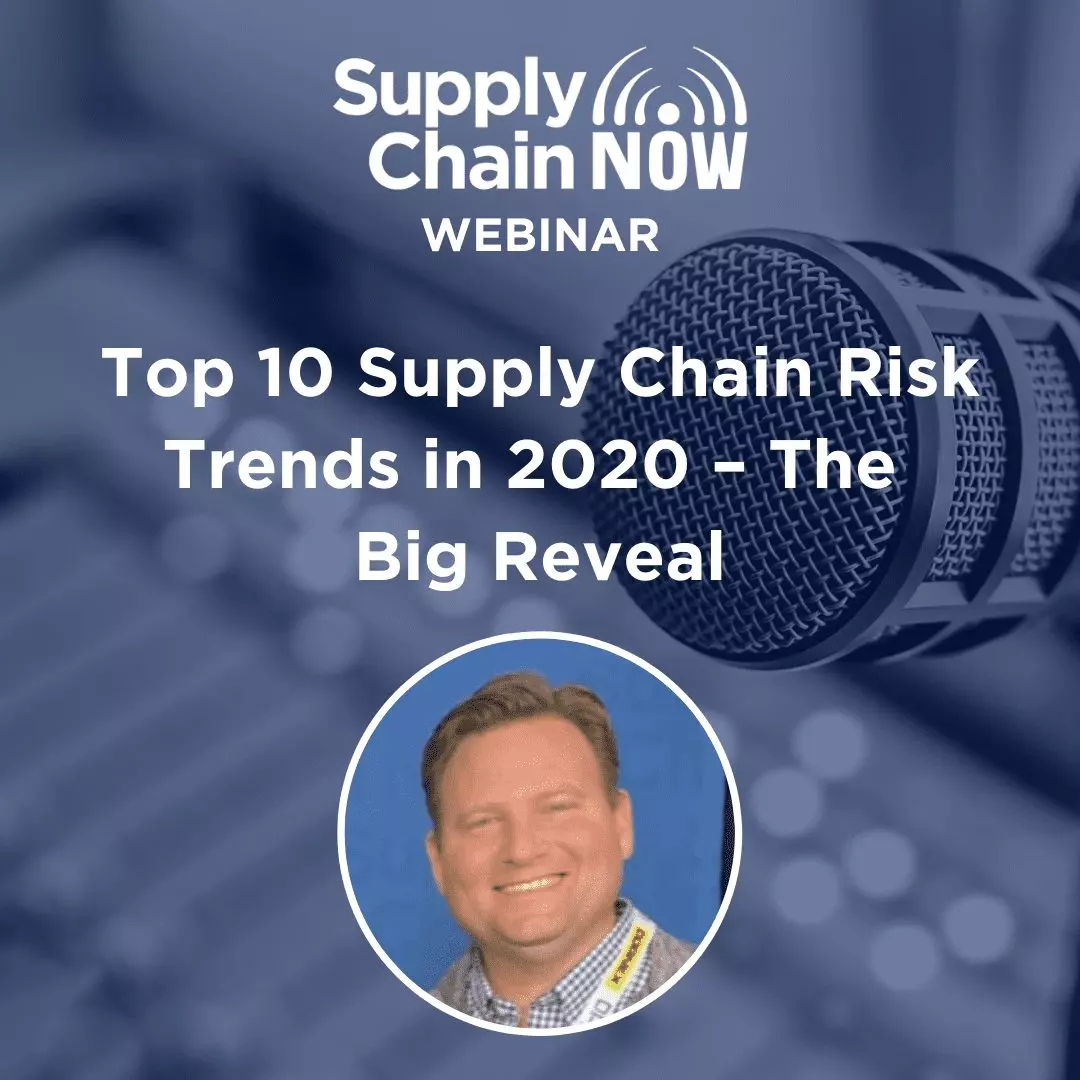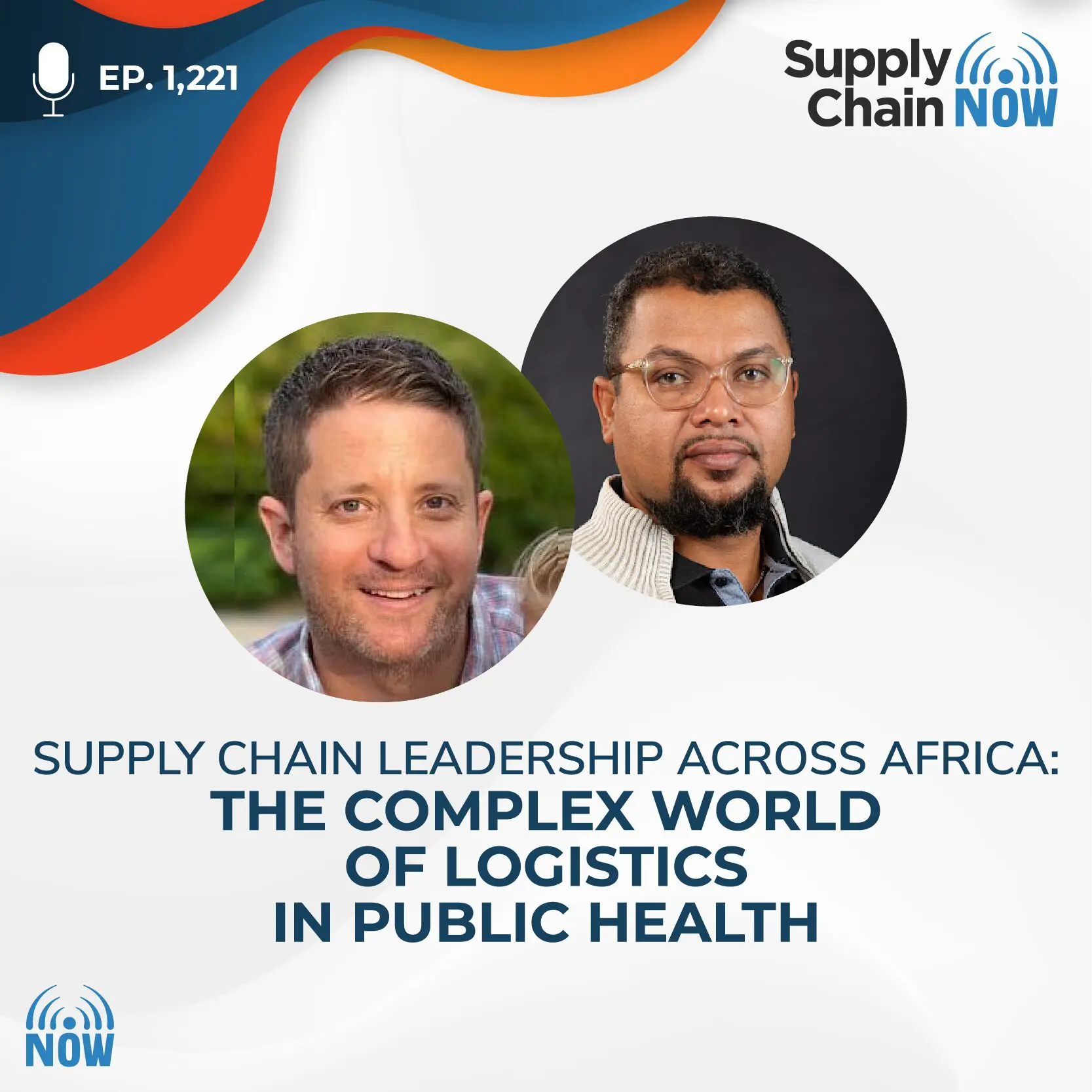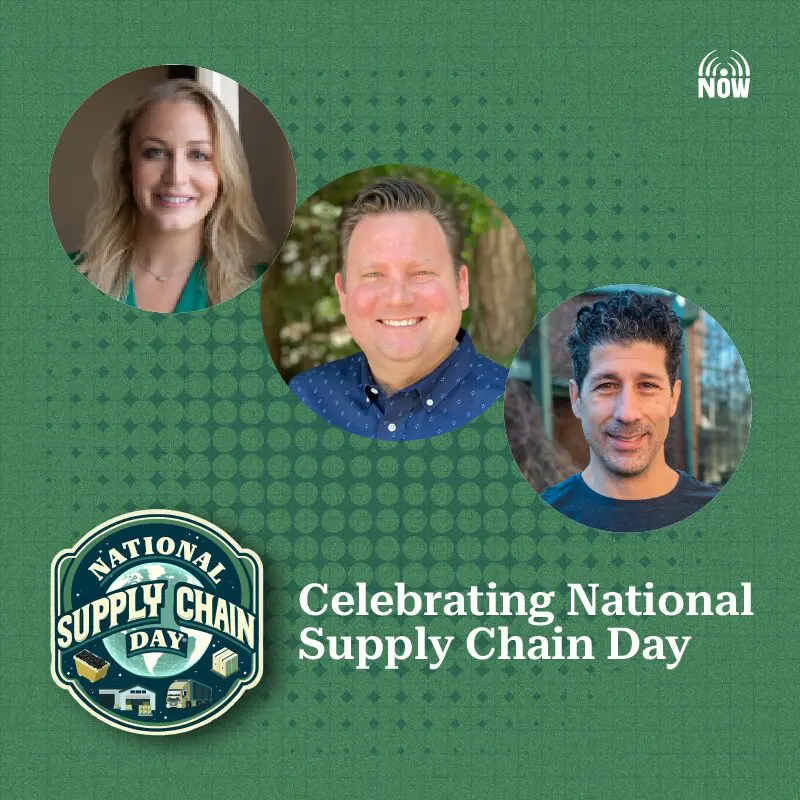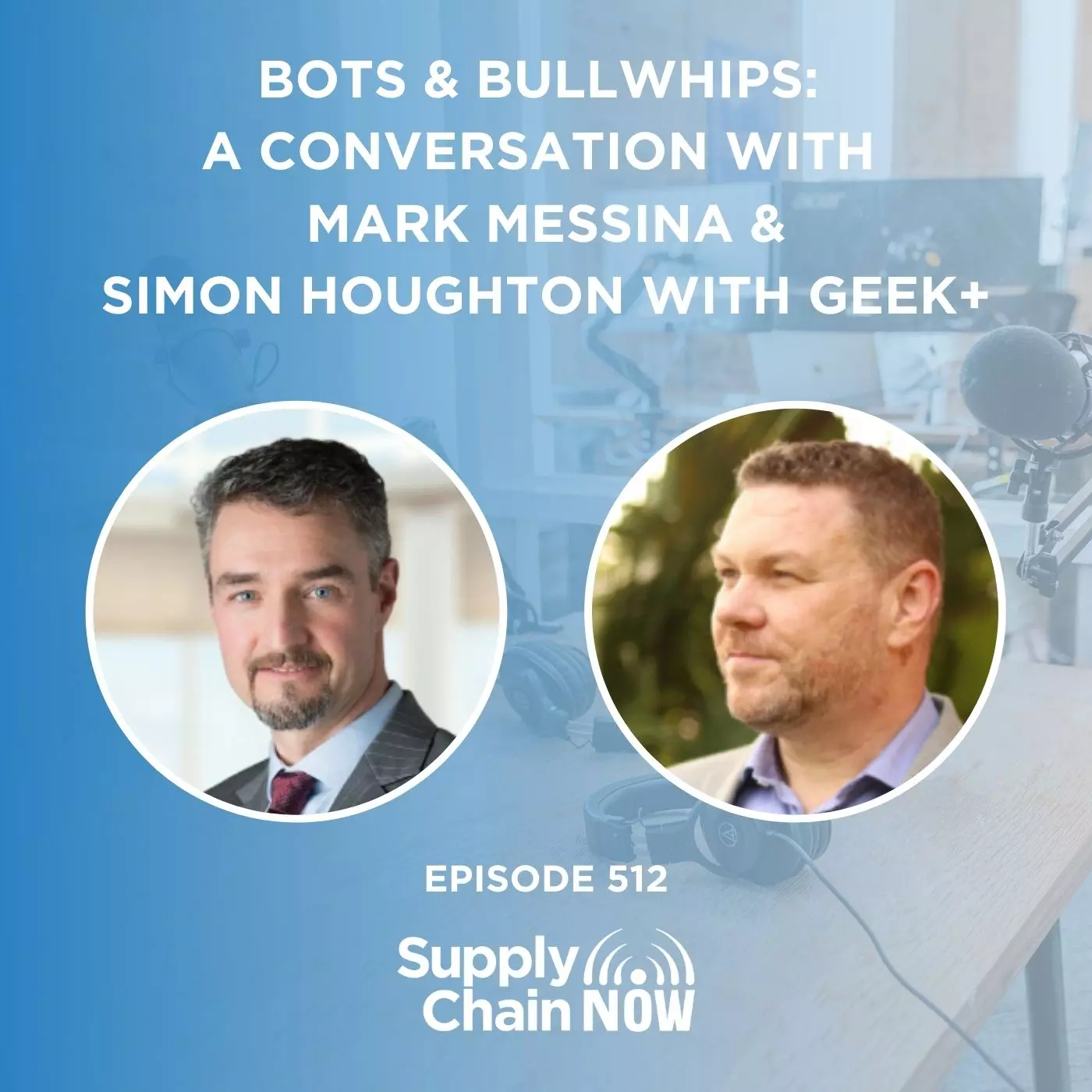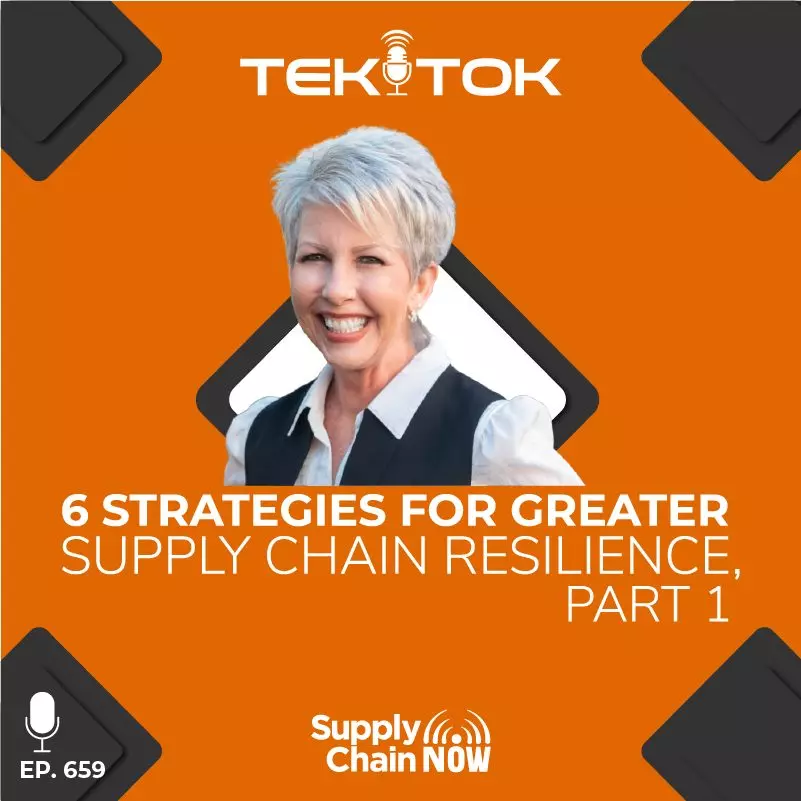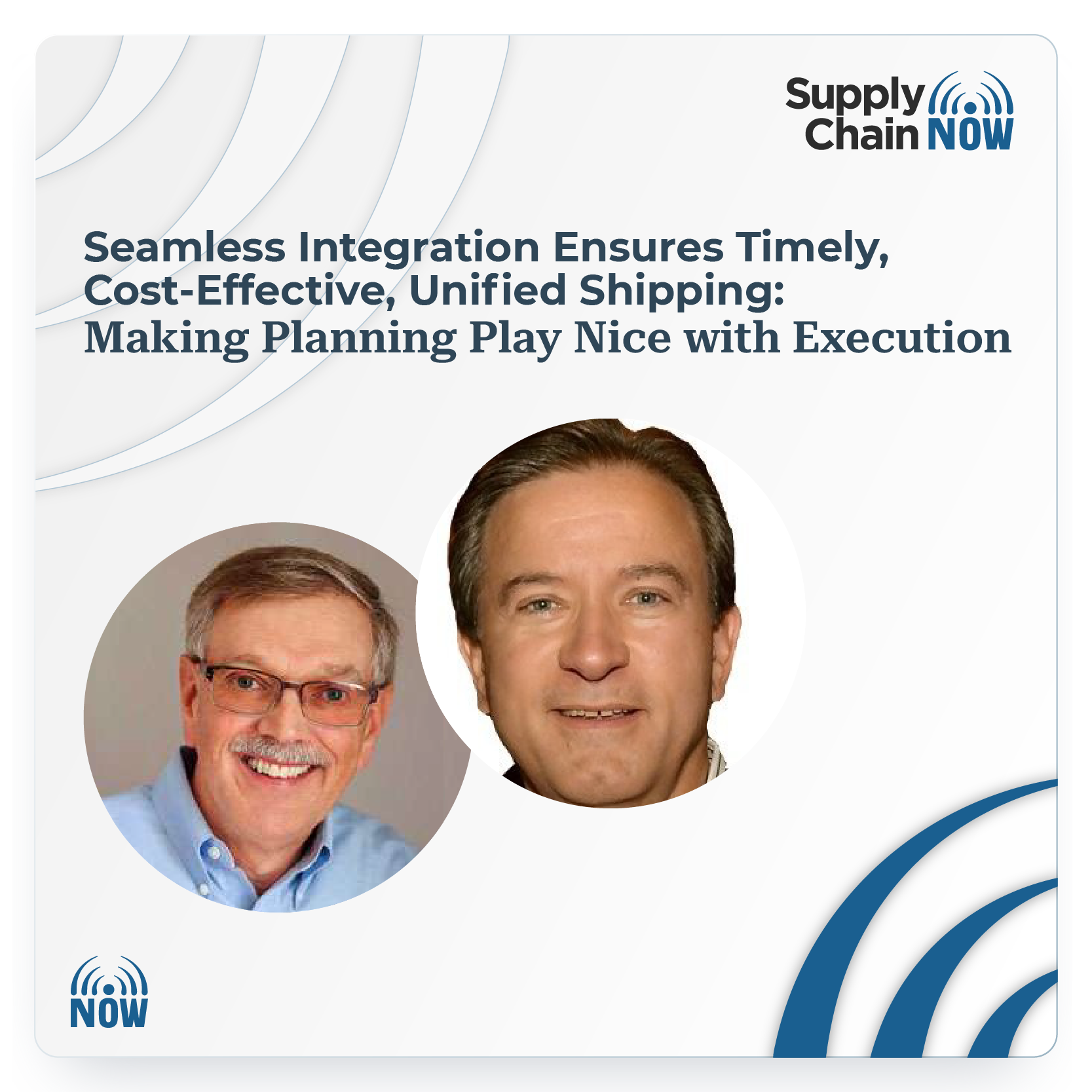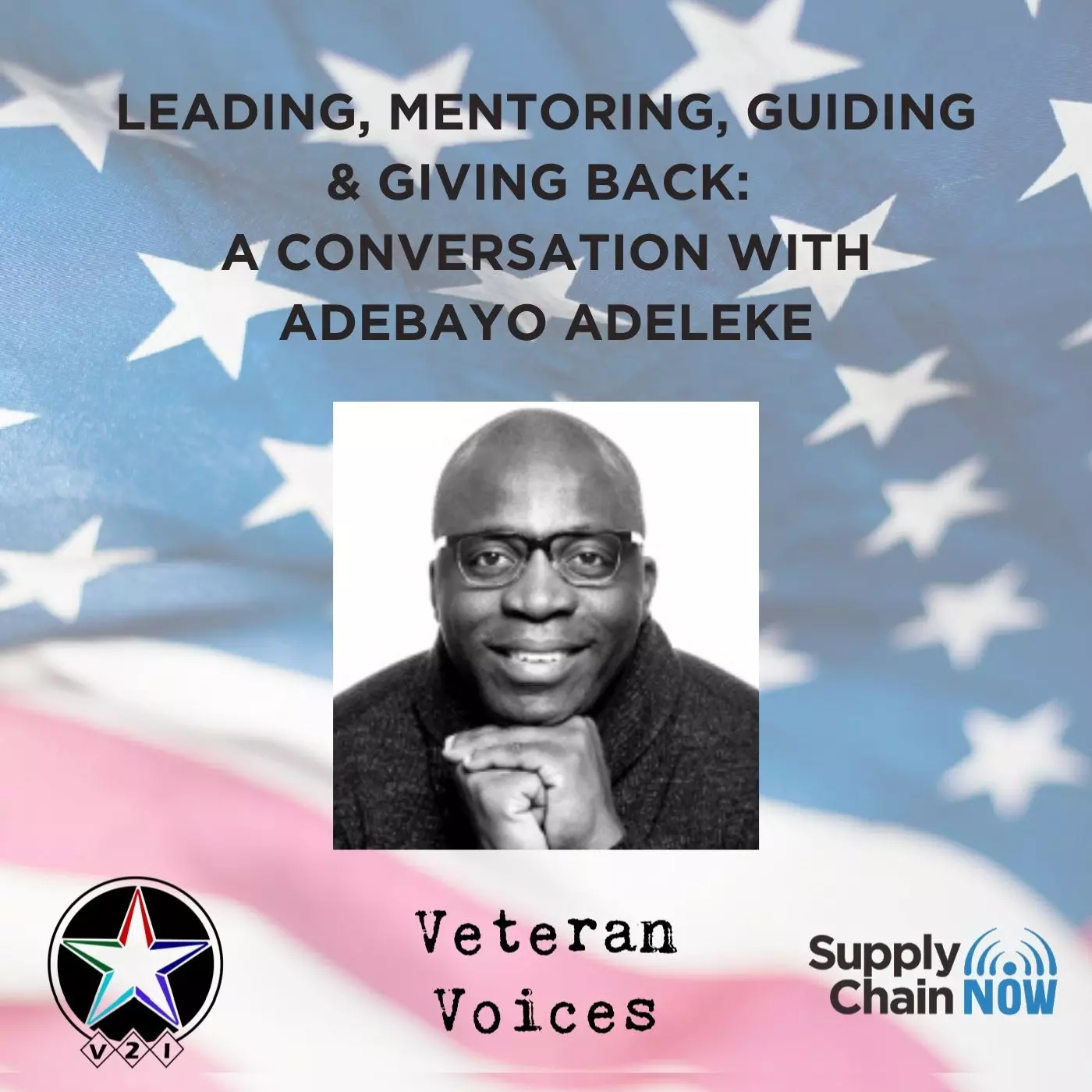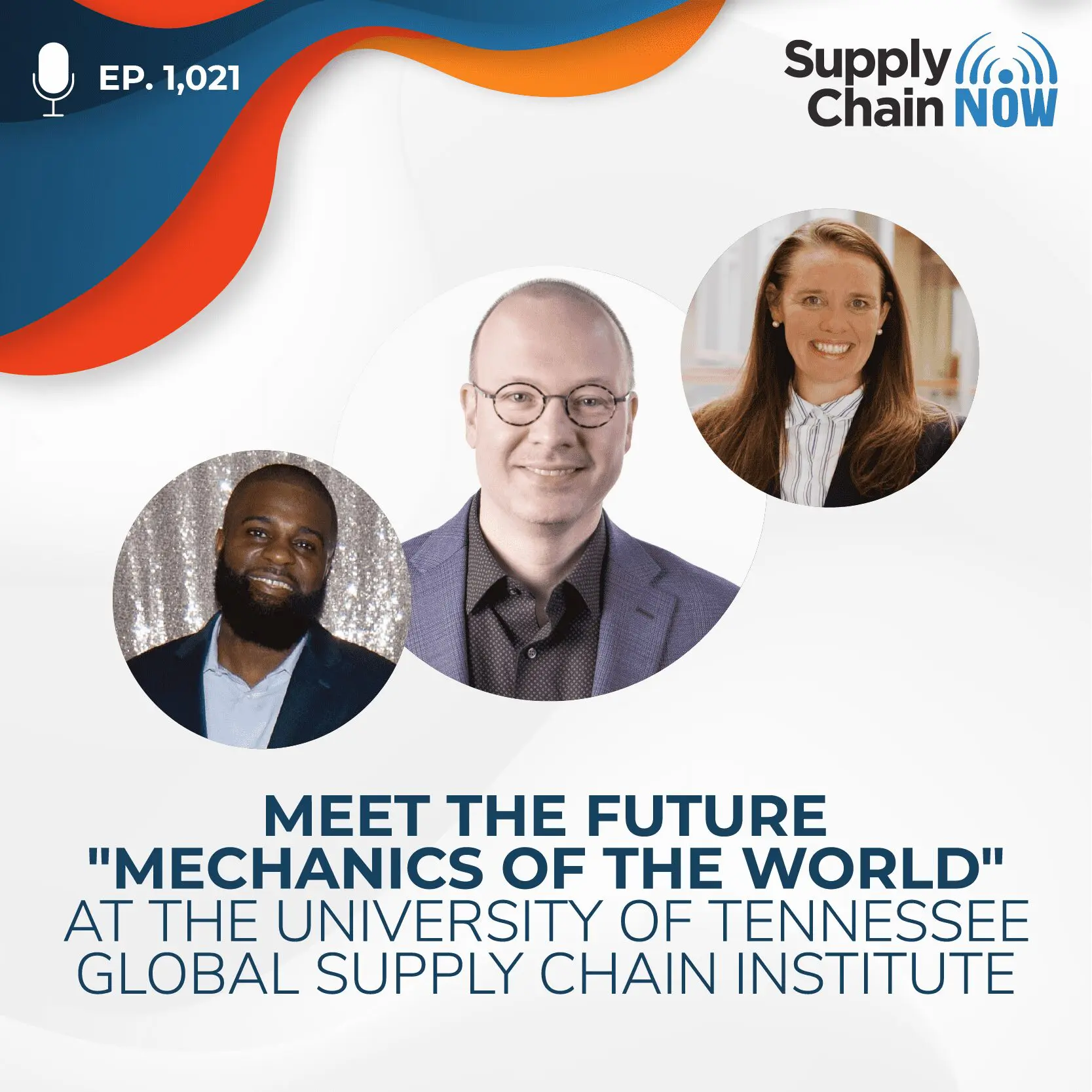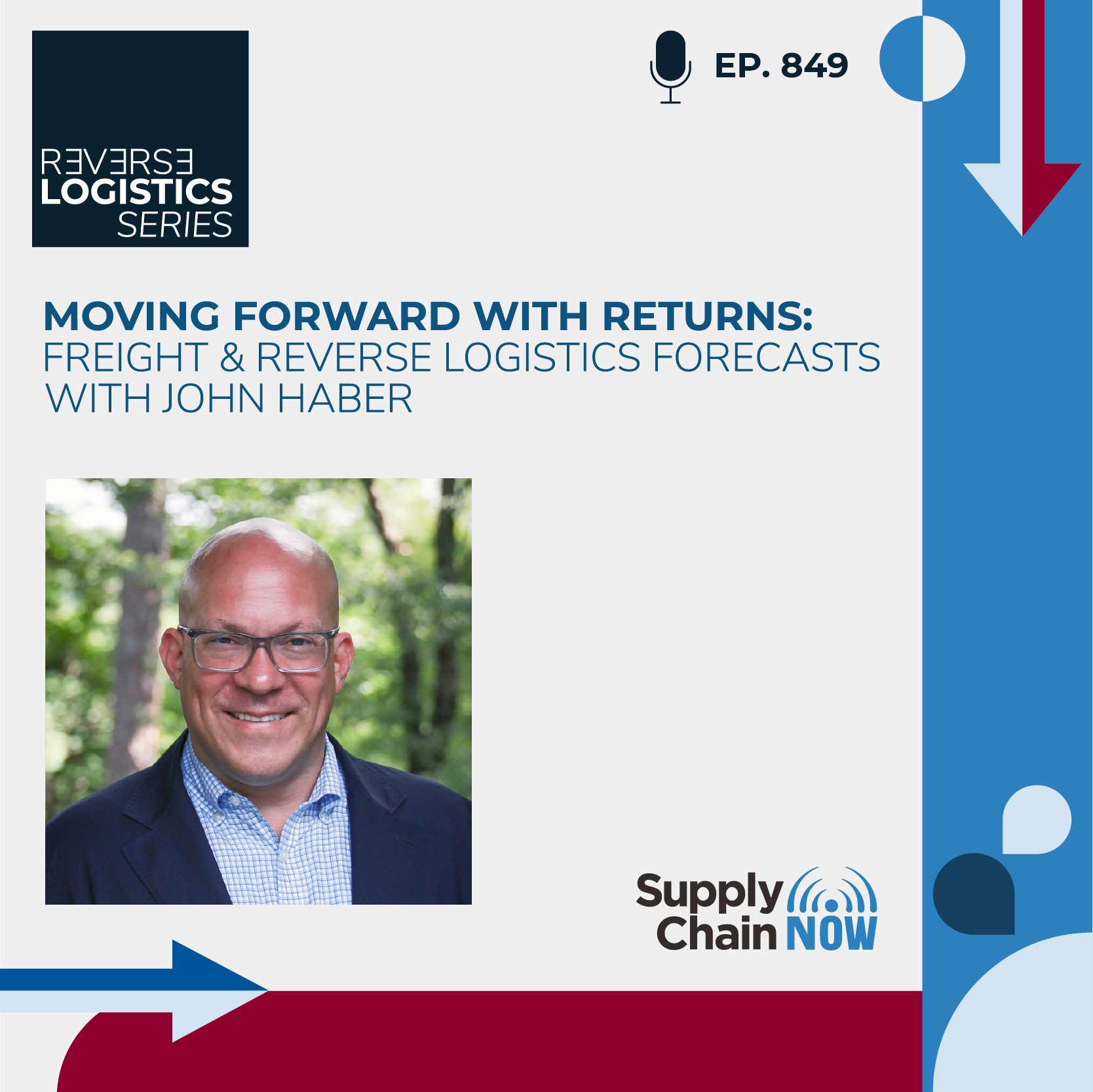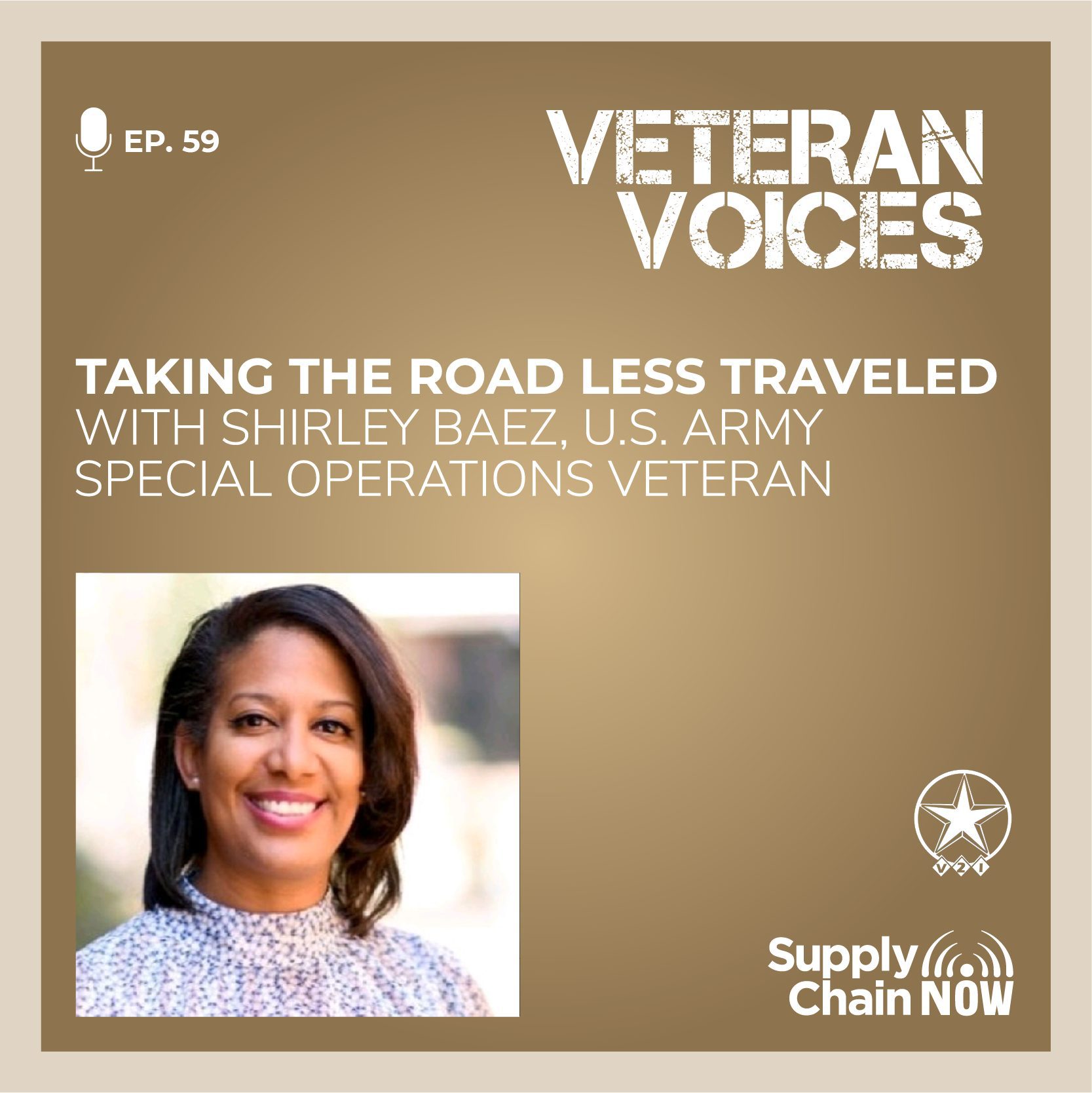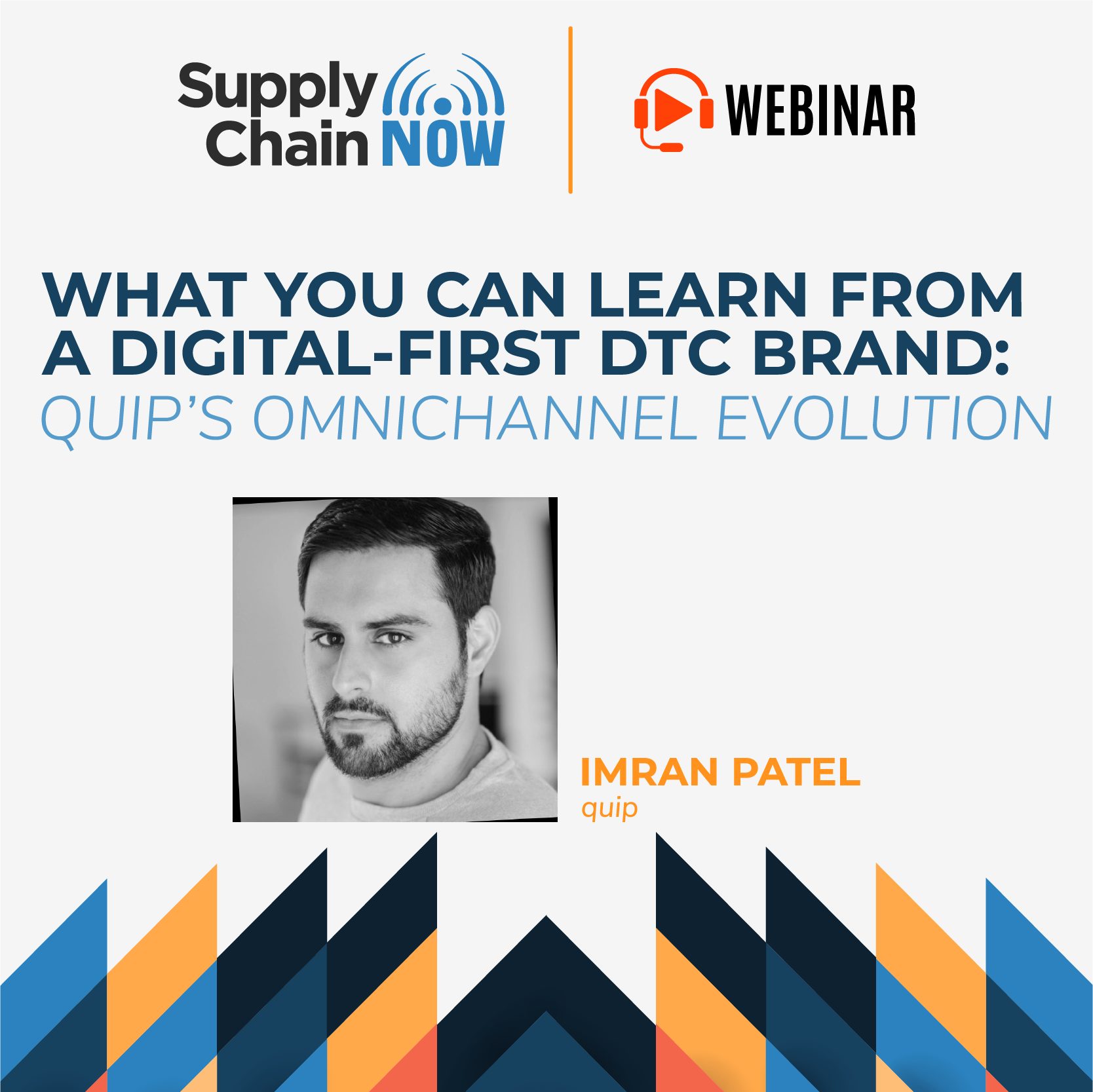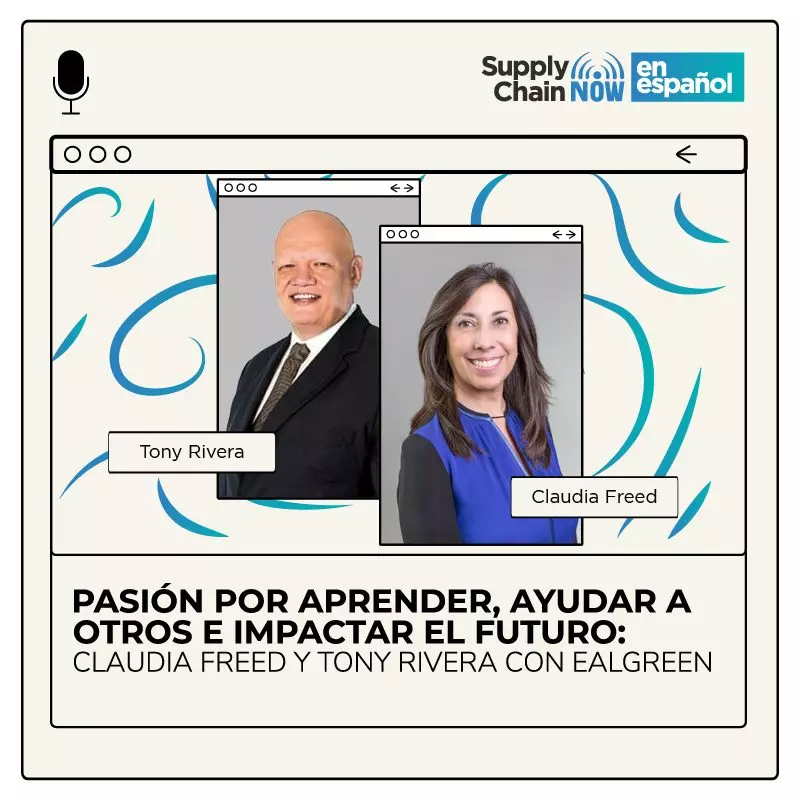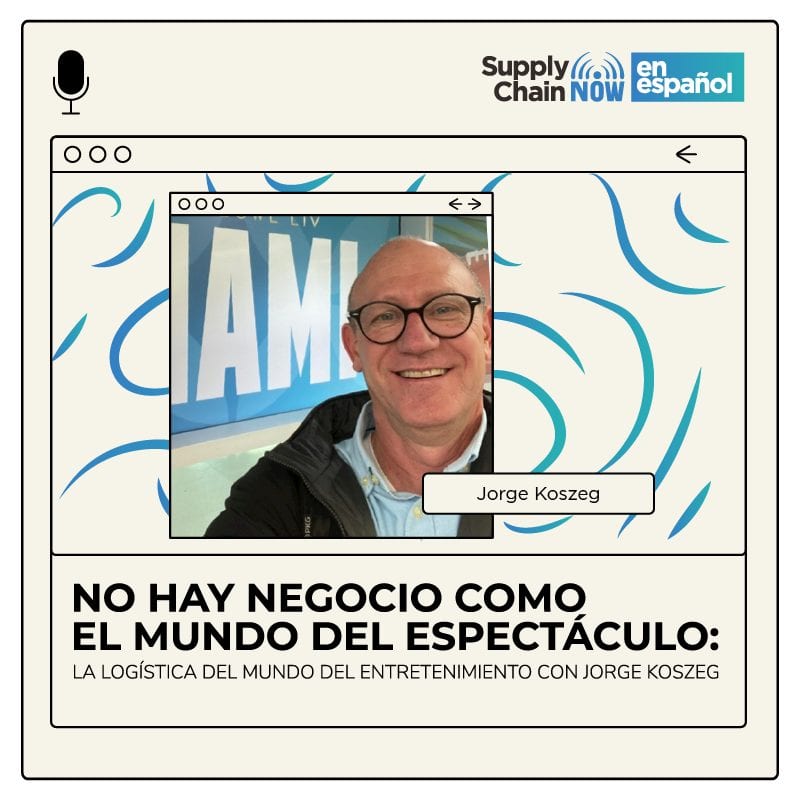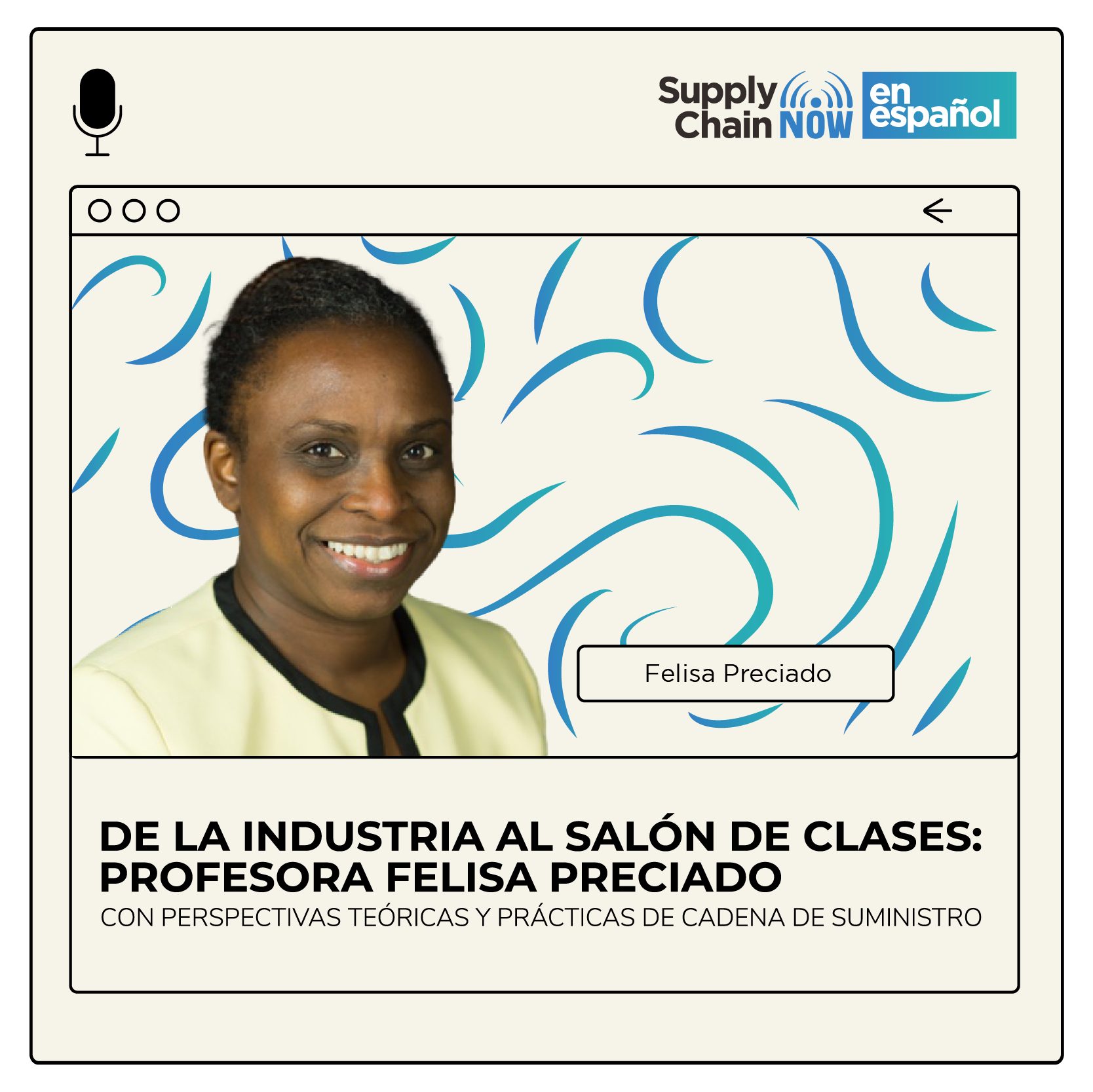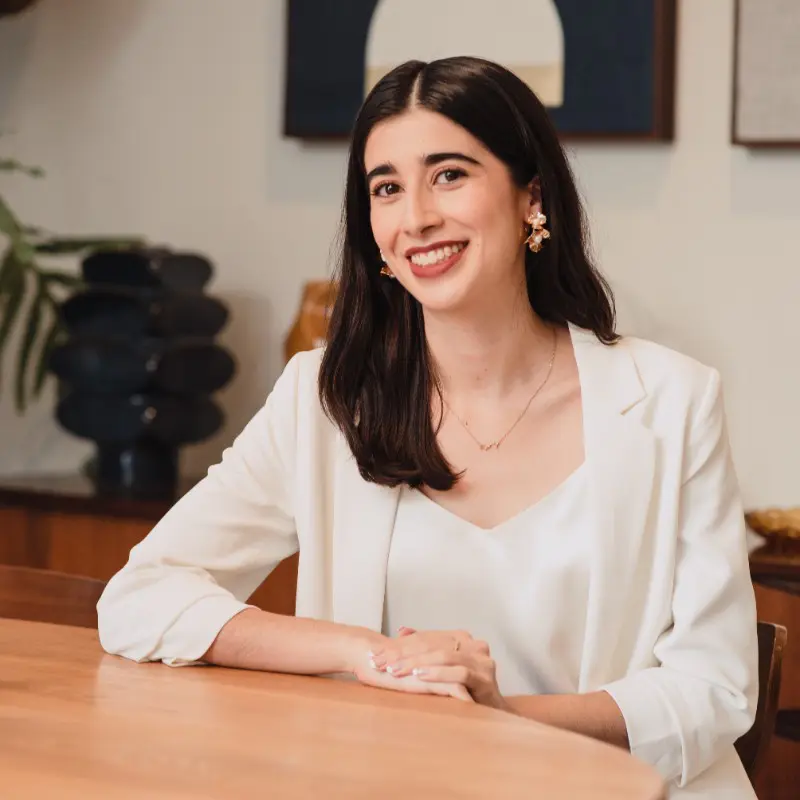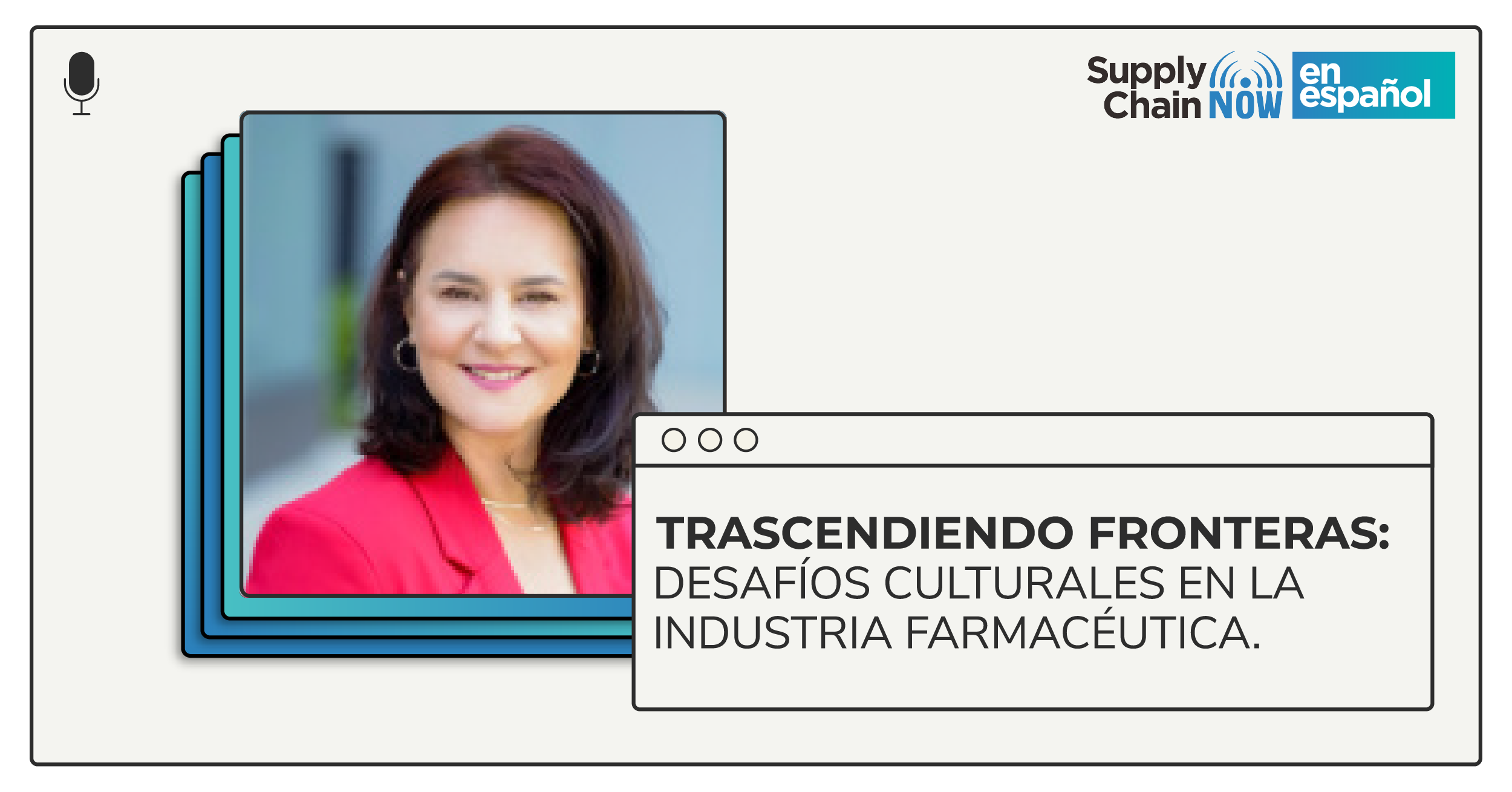
3 recomendaciones: Sigue tus instintos, no tengas miedo y busca sentite incluid.
Resumen del Episodio
Enrique Alvarez entrevista a Monique Clua. Country President and General Manager Novartis Poland. Escucha esta charla donde Monique nos platica sobre su experiencia en la rama farmaceutica, los retos culturales y gubernamentales para poder trascender. Monique ha tenido la oportunidad de vivir en varios paises representando a una de las 5 empresas farmaceuticas mas importantes en el mundo. Conoce su historia y aprende con ella sobre los retos que demanda una industria tan necesaria en el mundo como la medica.
Transcripción en Español
[00:00:01] Bienvenidos a Supply Chain Now en Español presentado por Vector Global Logistics y Supply Chain Now. Este es el programa que da voz a las personas de habla hispana en la industria logística en constante cambio. Únete a nosotros mientras descubrimos las historias inspiradoras de nuestros huéspedes y aprendemos de su experiencia colectiva. Nuestro objetivo no es solo entretenerte, sino fomentar tu pasión por esta emocionante industria y apoyar tu desarrollo profesional en el camino. Y ahora aquí está el episodio de hoy de Supply Chain Now en español.
[00:00:35] Muy buenos días y bienvenidos nuevamente a otro episodio de Supply Chain Now en español. Mi nombre es Enrique Álvarez y hoy tengo el placer de entrevistar a alguien que dejé de de que dejé de platicar con ella hace 20 años, 25 años a lo mejor. Y bueno, nos volvimos a reunir hace poco Monique Brown, Country President y general manager de Novartis, Polonia. Monique. ¿Qué tal? Mucho gusto.
[00:00:58] Enrique. Un gusto estar hoy aquí, contigo y y con toda la gente que te sigue. Y bueno, también súper, súper encantada de de nuestro reencuentro.
[00:01:06] Ya sé, es muy muy interesante y bueno para la gente que nos está escuchando les decimos que les puedo comentar que estuvimos en la misma escuela desde el kinder hasta la prepa y bueno tuvimos una buena amistad. Después obviamente tu carrera y mi carrera nos alejaron y estuvimos por diferentes rumbos y bueno es un poco lo que queremos platicar el día de hoy contigo, así es que sin más preámbulo, pues cuéntanos un poco para de ti, de tu vida. Quién es.
[00:01:32] ¿Monique? Bueno, Monique. Bueno, primero Monique es mexicana, que creo que eso es. Es un orgullo para para todos. ¿Eh? ¿Soy nacida y crecida en la Ciudad de México, pero con papás extranjeros, Eh? Soy licenciada en comunicación. ¿Eh? Yo siempre pensé que me iba a dedicar a la publicidad, que fue para lo que estudié, pero después, por azares del destino, terminé en esta industria fascinante que es la industria farmacéutica, de la que ojalá les pueda compartir un poco más el día de hoy. Y porque es que me apasiona tanto. Y Monique también. Obviamente es amiga, es hija, es mamá de tres eh, dos adolescentes eh, y una pequeña de 11 años y es esposa y probablemente lo que más apasiona Monique y lo que más le le nutre es como como tratar de cumplir con todos esos roles y y seguir marcando un camino para las mujeres.
[00:02:20] Pues definitivamente eres un ejemplo para todas las mujeres y estoy seguro que tendrás buenos consejos para las personas y sobre todo a las mujeres jóvenes que están empezando su carrera profesional. Y bueno, cómo balancear todo este tipo de cosas que que en particular las mujeres tienen que balancear para ser exitosas como mamás, profesionistas, empresarias, etcétera. Pero bueno, volviendo otra vez atrás, cuéntanos un poco más de cómo empezó. ¿Querías hacer algo de mercadotecnia? ¿Querías hacer algo más totalmente diferente a lo que eres, a lo que hiciste ahorita? Cuéntanos un poco más cómo sucedió eso.
[00:02:53] Mira, en realidad fue como. Como una coincidencia, y yo diría que muy afortunada, porque yo. Yo estudié la licenciatura en Comunicación, hice la especialidad en publicidad, eh, ya hace bastantes años. ¿Evidentemente hice mi servicio social en publicidad, eh? La verdad, eh, muy apasionante. ¿Estuve un tiempo en una agencia, eh? Y yo te diría que ahí fueron como mis primeros, como destellos de saber que que estar como en el lado del cliente y me me me gustaba un poco más. ¿Después sucedió que cuando empecé a buscar como mi primer empleo formal por esto de que mi mamá es Suiza y de que bueno, pues habíamos estudiado en el colegio suizo, eh? Mi familia me decía bueno, deberías de buscar una empresa europea. ¿Y en ese entonces tenía yo un familiar que había conocido lo que eran los laboratorios Sandoz no? ¿Que que son, eh, parte de los que formaron el el laboratorio que conocemos como Novartis, eh? Entregué ahí mi currículum y en ese momento tenían un un programa de desarrollo, no para que empezaras a a como a conocer la industria. ¿Empecé ahí y bueno, increíble pero cierto eh? ¿Veintitantos años más tarde ahí sigo, no?
[00:04:01] Una excelente, una excelente carrera y bueno, realmente no sé si fue suerte o qué, pero encontraste lo que te apasionaba y lo desarrollaste muy bien. Alguna anécdota que te acuerdes a lo mejor de la infancia este algo que que te acuerdes que a lo mejor tus papás o algún mentor o alguien te te comentaba o te decía que te a lo que te sirvió para luego ser exitosa.
[00:04:23] Sí, yo creo que sí. ¿Mira, fíjate que eh, yo cuando cuando era niña y bueno, mi mamá pensaba que yo tenía que hacer ballet clásico, no? Y principalmente porque a mi mamá le gustaba la. ¿O sea, la disciplina, evidentemente eh? ¿Y le gustaba el ballet y me acuerdo que bueno, eh? ¿Los que me conocen sabrán que mi cuerpo no era como para una bailarina clásica y además a mí siempre me ha gustado bailar, pero con más ritmo que con el ballet, eh? Y esto me causaba muchísima frustración. Enrique Eh, Como que veía que me costaba trabajo y pero era yo siempre como muy disciplinada y y seguía yendo a las clases y haciendo los ejercicios. Y me acuerdo de una vez que mi frustración llegó como a tal nivel que obvio, me senté a llorar porque no podía ser un paso con tanta facilidad. Y recuerdo en ese momento a a mi maestra Eva y que la verdad creo que fue como de verdad de los primeros ejemplos fuertes que tuve yo de eh, pues de vida y de liderazgo, donde me dijo Monique nadie va a apreciar que te rompas el el el lomo por algo tienes que relajarte y como también permitirte fallar de vez en cuando. ¿Y son palabras que me marcaron mucho porque creo que siempre he sido una mujer como muy tenaz y muy orientada a los resultados, pero a veces también fracasar y permitirse cualquier error o ver que pues algo no está dentro de tus habilidades, es algo que uno tiene que aprender de en en etapas tempranas, porque la verdad es la vida, se vive más ligero así, no?
[00:05:48] De acuerdo y bueno y bueno. ¿Y siempre vamos a cometer tantos errores en la vida y es importante y siento que incluso las generaciones ahora tienen un poco más de miedo de cometer errores y eso nos quita creatividad, nos quita este diferentes maneras de resolver problemas, etcétera no? O sea, es importante como dice tu maestra y como lo aprendiste, el hacer errores.
[00:06:09] Y yo creo que no solo son los errores. ¿Y hablando de las nuevas generaciones, yo creo que el el esfuerzo paga no? Ehh pocas cosas son inmediatas ehh pero bueno ehh. También hay que hay que aprender y disfrutar del camino que creo que es. Es como la enseñanza más importante. Y no, no solo ver el fin, sino como en el camino, ir disfrutando y tomando los aprendizajes y a veces, por qué no, también cambiar el destino.
[00:06:33] Totalmente de acuerdo. Y bueno, oye, tu mamá era bailarina de ballet. ¿A todo esto o no? De chica no.
[00:06:38] Le gustaba y no le gustaba. ¿No creía que me iba a dar como mucha postura, no? Y Y creo que sí. La verdad es que yo creo que el ballet es una gran disciplina. Claro, pero es cierto que bueno, yo en ese momento lo veía como algo aspiracional y pensando en ser una bailarina porque si no porque estaría yo tomando ballet. Y bueno, fue fue como un gran aprendizaje. En realidad muchos, muchos años de mi vida hice ballet y creo que fue también una disciplina que me formó en muchas cosas.
[00:07:06] ¿Hay algún otro mentor de a lo mejor un poco más adelante en tu en tu vida?
[00:07:11] Sí, bueno, bueno, he tenido muchos, muchos mentores. Yo te diría que hay otro momento en mi vida que me marcó mucho y creo que que así como como acabo de comentar, cuando es importante no permitirse fallar o o cambiar de rumbo. Me acuerdo también que cuando cuando empecé en estos programas eh juveniles eh, me me preguntaban que qué quería yo ser y obviamente como como yo venía de la rama de comunicación y había hecho también un diplomado en marketing, yo decía que quería ser gerente de marca. En las farmacéuticas también hay gerentes de marca. Claro que como nuestro producto son medicamentos. ¿Es cierto que en alguna época los gerentes de marca eran todos médicos y me acuerdo mucho la primera vez que me dijeron que nunca iba a poder ser gerente de marca porque yo no tenía un background médico y que gracias a Dios sí me frustró en el momento, pero nunca me lo tomé muy en serio porque no solo fui gerente de marca, sino estuve dirigiendo equipos de marketing a nivel local, luego regional, eh? Y creo que es es es también como un aprendizaje de vida.
[00:08:11] El tema de que nadie sabe ni te puede decir que eres capaz de hacer o no es. Es como cada uno que tenemos que decidir nuestro camino y bueno, también enfrentar los retos que que se nos presenten y luego a lo largo de la carrera. La verdad es que he tenido varios mentores eh, casualmente casi todos hombres. ¿Enrique Eh, solo tuve una mentora mujer eh? ¿Y yo te diría que mucho tiempo, eh? Trataba también de buscar en estos mentores como como el ejemplo de vida. ¿Profesionalmente siempre sabía más o menos el camino que quería seguir y obviamente agradezco a todos los mentores eh? Por por todos los los consejos que me dieron, pero quería tener como modelos eh, como de vida eh, de una mujer trabajando en esta industria, claro, y eso sí me costó un poco más de de trabajo encontrarlo, sobre todo pensando pues en el momento en el que yo empecé a crecer, que ya hace algunos años de eso, donde el rol de la mujer pues era muy diferente al al que es hoy.
[00:09:06] Sí, definitivamente. Y bueno, y más en países como el nuestro, México, Latinoamérica y algunos otros. ¿De hecho, hasta hasta ahora todavía este falta mucho por hacer para tener esa igualdad, no de de roles, de puestos, de sueldos, etcétera Entonces no algo sumamente importante y bueno, algo que a lo mejor tú durante tu carrera has logrado cambiar un poco, no? Tú eres el ejemplo. Me imagino de algunas mujeres que entran en Novartis también.
[00:09:32] ¿Bueno, eso, eso me dicen y tengo ahí, eh, como como mucha gente que bueno, afortunadamente he podido como trabajar con ellas y también como, como inspirarlas a a perseguir sus ideales, eh? ¿Como te decía antes, bueno, yo me siento muy orgullosa de de tener una vida que para mí es muy completa, no? ¿De acuerdo al modelo que yo tenía y que perseguía, entiendo que cada uno puede puede tenerlo diferente, eh? Pero lo que trato de de ayudarlas y de. Tanto mujeres como hombres es que sean como fiel a sus creencias, a sus instintos y que en base a eso manejen su carrera. Me parece que cuando cuando uno trabaja en los corporativos, como ha sido mi carrera, es muy fácil que te dejes llevar por lo que el corporativo dice. ¿Cuál sería el paso que te tocaría dar, en qué momento Y si no lo haces, no, eh? ¿Y yo lo que les diría es atrévanse a a a a decidir, a decidir consciente de lo que uno uno deja, eh? Como nos enseñaron en algún momento en en nuestras clases de filosofía. No, cada opción eh implica una renuncia y es así. Pero también hay cosas a las que podemos renunciar momentáneamente y que podemos después eh tomar.
[00:10:43] Y ese ha sido un poco mi aprendizaje. Te puedo contar que que en mi carrera en en algún momento empecé a a crecer, a tener roles fuera de México, en la región, que fue cuando me casé y cuando me vino el momento de de querer buscar familia, pues me di cuenta que que no podía seguir ese ese tipo de de trabajo que tenía que digamos que a nivel carrera era otra vez como aceptar lo que llamamos. ¿Hay un demotion que yo ni siquiera estoy como muy segura que era de Motion, era por por el impacto del del del puesto, eh? Pero bueno, pensé que era lo correcto y Y estuve básicamente cinco años, eh, como haciendo roles muy similares. ¿Te diría que profesionalmente a lo mejor no fue el momento de mayor salto, eh? ¿Organizacional, eh? ¿Pero muy orgullosa de haberlo hecho, porque eso fue lo que me permitió tener a mi familia y después siempre hay tiempo para volver a crecer, eh? ¿Y al final creo que que el aprendizaje grande es que bueno, competimos contra nosotros mismos, Hay gente que lo hace más rápido, hay gente que lo hace más lento, pero si es lo que quieres hacer, el tiempo es relativo, no?
[00:11:46] Totalmente de acuerdo. Y bueno, como tú dices, a final de cuentas lo más importante de todo eso es pues que tú tomes la decisión, que no solo te dejes llevar por lo que dice alguien más, por lo que la te están presionando, etcétera Que sea está tranquila con la decisión que tomas y y sigas creciendo a tu ritmo. Y bueno, vamos a hablar mucho más de tu carrera profesional. ¿Este muy buena trayectoria obviamente con Novartis y antes de meternos si quieres nada más para la gente que nos escucha, qué es Novartis? ¿Porque tiene también una historia muy interesante en el tiempo que tú has estado en esa empresa, eh? ¿No estabas diciendo un poco de tu primer empleo? ¿Cómo se va de ahí a Novartis? ¿Cómo, cómo se genera o crea la empresa y cuéntanos un poco de tus primeros pasos con Novartis?
[00:12:30] Sí, mira. Bueno, Novartis es como. Como les conté, una empresa farmacéutica, eh, Está entre las cinco más grandes del mundo. ¿Eh, Su origen es suizo, eh? Tiene su casa matriz en Basilea. Y realmente es. Es un laboratorio que que surgió de la fusión de dos laboratorios suizos que era, eh, Sandoz y Ciba-geigy. Eh, ambos laboratorios con, bueno, con mucha experiencia en el mercado. Y en ese momento era más un mercado como de lo que le llamamos Atención primaria. ¿O sea, siempre productos de prescripción médica, eh? Pero bueno, fue un corporativo que tuvo en a lo largo de su historia muchísimas empresas muy conocidas. ¿Gerber perteneció al grupo Corporativo Halcón, perteneció al grupo corporativo eh, Y es una empresa que yo te diría que que lo que me ha apasionado es más allá de la cultura, no? ¿Que tiene una cultura pues muy enfocada en la gente, en la innovación, eh? ¿Es una empresa donde siempre he encontrado, eh, como los jefes correctos y las oportunidades para crecer, porque al ser un laboratorio que tiene presencia en más de 70 países, pues opciones ahí hay muchas, eh? ¿Como te decía al principio, yo empecé por un programa de de desarrollo y empecé pues en la base eh, que para las farmacéuticas es lo más importante, que son los equipos de ventas, que yo creo que bueno para cualquier tipo de empresa eh? Las ventas pues son los lo que mueve a cualquier a cualquier empresa.
[00:13:52] ¿Sin embargo, eh? La industria, más allá de ser una industria muy regulada, es una industria donde pues intervienen un montonal de clientes que no es el consumidor final. Piensa que en en en países como México y. Y por más que la industria ha evolucionado a nivel mundial, todavía sigue siendo más o menos cierto que el paciente pues eh es es el consumidor final, pero el medicamento que va a recibir probablemente lo va a escoger el doctor. Pero si es algo de prescripción, todavía tiene que pasar por la farmacia, que a veces las farmacias también tienen alguna opinión sobre qué deberías de llevarte y qué producto tomar. ¿Si es un producto de más alta especialidad, dependerás si está incluido en el cuadro básico, si el hospital te lo va a pagar o no, eh? ¿Es decir, hay muchos, muchos elementos y creo que eso es lo que hace como muy fascinante, eh? ¿La industria, eh? ¿Como te decía, yo empecé en ventas, eh? Después hice muchos roles de marketing, eh, entre medicamentos como establecidos, un par de lanzamientos y luego empecé a salir de México a tomar responsabilidades para América Latina, que fue en el momento que te contaba anteriormente, cuando. ¿Decidí tener familia, eh? Y ahí volví a México. Pero en ese momento empecé a trabajar más con, eh, productos para el gobierno.
[00:15:06] ¿A donde fuiste primero este cuando, o sea cuáles fueron de tus primeros viajes? ¿Porque México, que te has sentido muy orgullosa en que te postularan, o sea, siempre es, siempre es emocionante salir de tu país, no? Y siempre es emocionante el viajar y que la empresa te pague. Entonces cuéntale. O sea, esa primera experiencia te fue muy bien al nivel de que te ofrecieron algo en algún otro lado. ¿Y bueno, qué? ¿Cuál fue ese otro lado y qué aprendiste más bien de ti en ese otro lado?
[00:15:32] Primero estuve trabajando para la oficina que que era la oficina regional que estaba. Tenía la. La ciudad de.
[00:15:38] Miami. ¿Ah, en Miami?
[00:15:40] No, en Miami. En Miami. Pero yo seguía viviendo en México. Okay. Eh. ¿La verdad es que, eh, precovid Viajar de un país a otro era como muy sencillo, no se necesitaban muchos requisitos y la verdad en México Miami me quedaba me quedaba muy fácil eh? ¿Y yo creo que lo más fascinante que que aprendí ahí eh, como al al salir de una operación local a una operación regional es que empiezas a ver muchas realidades, no? Ahí fue donde, bueno, empecé a tomar responsabilidad para para la planeación de un un lanzamiento de un medicamento para Brasil, Colombia, Venezuela no, o sea toda América Latina. ¿Y la verdad que es cierto que que que esa parte tiene como su glamour, no? ¿El el ir de trabajo a otro país tres días eh? Conocer otras culturas, entender cómo funcionan otros sistemas. Es cierto también que después de algunos años, eh puede ser también bastante agotador y uno quiere otra vez como como a lo mejor volver a operaciones más más locales. Pero la experiencia me encantó tanto así que cuando después volví a México y volví a operar en México durante cinco años, no. Que fue cuando tuve a mis hijos, me volvieron a ofrecer un rol para América Latina y ahí ya se había, eh, incluido Canadá.
[00:16:53] Ah, qué bien!
[00:16:54] La verdad que me encantó porque ahí bueno, era una posición totalmente de de otro nivel. ¿Tenía que ver con hacer la integración de de un portafolio a Novartis y llevar como como toda esa integración para todos los países, es decir, diseñar las estructuras, las estrategias, eh, Como todo el modelo de negocio que que fue sumamente fascinante, eh? ¿Y bueno, el mercado canadiense también es muy diferente al latinoamericano en en en muchos temas eh? ¿Así que fue un un gran aprendizaje eh? ¿Más allá de de la responsabilidad comercial, pues obviamente hay mucha interacción también con los equipos globales, entonces empiezas a tener una visión, yo te diría mucho más holística que la que el rol solamente te da por la gente con la que interactúas, por la información que tienes, porque estás mucho más encaminado al futuro que al presente, eh? Así que fue fascinante.
[00:17:46] Y eso desde la Ciudad de México también.
[00:17:48] O eso lo hice desde la Ciudad de México.
[00:17:51] ¿No tenías que moverte para ese puesto?
[00:17:53] ¿No? Pues porque en realidad viajabas, claro, viajando da igual donde, donde estés basado. Y la verdad viajaba un montón. Al de semanas y por suerte México está como justo a la mitad. Entonces me quedaba fácil ir a Canadá.
[00:18:07] Digo, Canadá y Latinoamérica son como tú dices, muy muy diferentes. No este muy.
[00:18:11] Diferentes, muy muy diferentes. La verdad que Canadá tiene muchas eh, peculiaridades, pero claro, al estar en el mismo continente, bueno, muchas organizaciones lo tienen con América Latina y Canadá y después de un par de años me ofrecieron entonces sí como un rol que fue como mi primera y ya Dirección General para un país en Buenos Aires, Argentina, y ahí si nos fuimos a vivir a Argentina, que yo te diría que esa primera experiencia de de cambiar de país es es sumamente agotador. Los primeros meses es complicada, bueno.
[00:18:47] ¿Y es para toda la familia, no? O sea, porque eres tú y ha de ser agotador para ti, pero ya cuando metes a cuatro personas, tres personas más, cuatro personas más, ya es es una aventura, un.
[00:18:58] Comienzo, un comienzo. ¿Sin sin mi historia, no desde cuál va a ser tu escuela, Dónde vas a vivir? Dónde vas a abrir la la cuenta bancaria más allá de todo el tema, como, como de trabajo. Pero yo te diría que es una experiencia que que es. ¿Yo se la recomendaría a todo mundo porque creo que que primero como que te abre mucho la cabeza a razón de de preconceptos, que a lo mejor que tenemos o de formas de ver las realidades dos tiene el efecto colateral e ideal, que es que como familia te une, te une mucho, porque cuando llegas pues todos contra el mundo entonces eh? En general la familia eh tiene y agarra una dinámica como muy linda y la verdad que con el tiempo también uno, uno se va, se va adaptando y va haciendo nuevas relaciones y se va adaptando al país. ¿Eh Fue una experiencia muy linda, eh? A pesar de que nos tocaron los años de COVID eh, Que bueno, también estando en la parte de salud te diría que que tú. ¿Como dimensiones eh muy diferentes eh? Que las que tuvo para para otras empresas. Pero bueno, es es creo que fue, eh para la industria, eh, de la salud, olvídate de la farmacéutica, pero para la salud fue como una clara llamada de atención que los sistemas de salud que tenemos en el mundo eh tienen que evolucionar en muchísimos sentidos. Eh, No estoy aquí para para hablar tanto de de salud, pero realmente la parte de la prevención y del uso de herramientas digitales eh son mandatorios a nivel mundial. ¿Porque? ¿Porque no es eh sustentable lo que tenemos en ningún país del mundo, eh? Y mira que eh, que bueno, me conozco todos los de América Latina, me conozco Canadá eh, Ahora estoy aquí en en Europa y realmente las oportunidades con sus tonalidades son son muy muy parecidas.
[00:20:47] Y eso visto desde tu punto de vista, no de una trabajando en una de las mejores, sino la mejor empresa de la industria. Entonces sí me imagino que digo la pandemia vino a a a dejar evidente muchas carencias que tenemos, y no solo en esa industria, sino en varias, incluso hablando de las mejores empresas del mundo.
[00:21:08] Sí, sí. Y de las oportunidades no, porque como te decía, eh, yo trato de ser como más bien positiva y decir bueno, y acá y se necesita mucho como colaboración entre todos los actores que estamos, no eh, gobiernos, hospitales, médicos, pacientes, eh, la farma misma, eh, Tenemos que empezar a cambiar el modelo porque un modelo así no, no es sustentable. ¿Y bueno, también entendiendo que bueno que el mundo está cambiando y todos lo sabemos, las poblaciones cada día se hacen más viejas, No vivimos más años eh? Pero pues el sistema no está hecho para para cuidar de gente grande por por más años ni para que se pague por más años, eh, Médicos Cada vez hay menos en el mundo. ¿No, no es la profesión que era hace algunos años, eh? ¿No se hable de enfermería, eh? Bueno, durante COVID también vimos que que en todos los países el sistema es muy centralizado y si tú no estás, eh cerca de uno de estos hospitales principales, pues probablemente también tu salud se va a deteriorar. Infinidad de de de retos.
[00:22:10] También como de.
[00:22:11] ¿Oportunidades, oportunidades, eh? Y una llamada de atención que bueno, ojalá como que todos hayamos aprendido de de COVID lo que teníamos que aprender.
[00:22:20] Cuando cuando llegaste tú a a Argentina, Buenos Aires que era fue tantito antes de la pandemia fue.
[00:22:25] Fue, fue casi un año antes de la pandemia. Yo llegué en marzo del 19. Me acuerdo todavía ese diciembre que fuimos a México, no a las vacaciones volvimos, volvimos porque acuérdate que en el Cono Sur pues las estaciones están invertidas, entonces enero y febrero. ¿La verdad es que la gente está de vacaciones, es pleno verano y me acuerdo mucho y esto creo que que siempre se me va a quedar como como una historia para recordar que cuando nosotros siempre hacíamos como estas eh reuniones de inicio de año, más o menos en marzo, porque como enero y febrero es el verano, pues la gente en general toma vacaciones eh? Y cuando teníamos esa reunión programada fue justo cuando pues se empezaba a escuchar de que había algo que había aparecido y que en Europa y. ¿Y me acuerdo que tuvimos con el equipo como como este tema de decir oigan, pero tenemos gente que está viniendo de esos países, será que nos podemos juntar con ellos? Y pues había de todo en ese momento no eran como estas primeras noticias que nadie sabíamos exactamente qué era lo que pasaba y unos que decían pero es que no los podemos discriminar. ¿Otros que decían bueno, es que imagínate que si, si traen algo y cae toda la empresa enferma por esto, eh? Y tuvimos un debate como muy interesante todavía, hicimos esa reunión a la que nos fuimos todo el equipo a nuestro inicio de año, porque bueno, pues en América Latina todavía no se escuchaba nada, estaba y básicamente regresamos y una semana más tarde, cuando se cerró todo y mira que en Argentina se cerró todo, incluyendo el aeropuerto durante un año, o sea, en Argentina. ¿De verdad, el el el cierre fue muy muy drástico, eh? ¿En todo sentido eh? Fue la primera vez que que que yo te diría. Yo decía que me sentía como como en la casa de Big Brother, no eh, las 24 horas con mis hijos, con mi marido, ellos tratando de hacer escuela, yo tratando de trabajar, eh, Tratábamos de comer, pero era bueno como todos lo vivimos, bastante caótico, me imagino.
[00:24:24] Y bueno haber sido una un reto adicional al que ya traías de cambiarte a un país nuevo, a una cultura nueva, una casa nueva, este alguna digo varias oportunidades, varios retos obviamente en ese momento. ¿Pero cuando estuviste en Argentina, algún reto en particular que nos puedas compartir, ya sea de la de la industria o tuyo en particular? ¿Y bueno, qué aprendiste de eso?
[00:24:47] ¿Mira, yo creo que bueno, Argentina está lleno de retos, no? Si yo digo oportunidades, dices si en Argentina aprendes, aprendes. Probablemente lo que a mí me. Hacía falta aprender. Y es que no todo se planea. ¿Argentina amaneces cada día con alguna novedad, sea económica, sea política, sea social y la verdad, situaciones a las que yo nunca me me había enfrentado, eh? Simplemente como cómo lidiar con con el precio de los medicamentos, no con una inflación como la que se tiene en Argentina y una devaluación que también se tiene cuando tú eres, eh, una empresa que importa.
[00:25:24] Cómo, cómo se hace. Me imagino que obviamente es un tema que pudiera ser una sola podcast hablando de eso, pero.
[00:25:30] Podríamos tener una cátedra. Yo te diría que que empiezas a A yo algo que tengo que reconocerles a los argentinos es que son sumamente creativos e innovadores. ¿Y yo te diría es es básicamente por eso, porque el El país pone tantos retos que no me preguntes cómo, siempre aparece una solución, eh? Que a mí sola me hubiera tardado mucho, como como en en en encontrarla. ¿Pero bueno, hay muchos mecanismos, no? Donde tú puedes también como ajustar, donde empiezas a poner programas especiales de apoyo, donde empiezas a encontrar otro tipo de ofertas, donde puedes empezar a hacer alianzas con otros actores. Eso por decirte uno. ¿Pero bueno, eh? ¿Yo te diría que ser responsable de una empresa en épocas de pandemia fue como otro reto enorme eh? Piensa que que la mitad de nuestras estructuras más o menos, eh, son gente que que trabaja eh en visitando médicos y el modelo de la industria todavía es muy tradicional. ¿Todos saben que tenemos visitadores médicos, probablemente la única industria que todavía va a hacer este contacto cara a cara, eh? ¿En qué momento lo sacábamos? ¿En qué momento los regresábamos? ¿Cómo compensábamos en un país con con tal inflación, no? ¿Y cómo los compensábamos? ¿Qué hacías con los incentivos y millones de discusiones? Que bueno, nadie sabía, nadie estaba preparado y no había como.
[00:26:54] Como no hay un manual.
[00:26:56] ¿Bien o mal, eh? Pero la fuerza colectiva siempre ayuda. No hablar con los colegas y y ver que qué están haciendo y y dónde vale la pena tener 111 abordaje similar y dónde mejor Cada quién decide de depende del país. Fue fue un enorme aprendizaje. Yo te diría que yo lo que más le agradezco a Argentina, además de que encontré gente, gente muy muy capaz, muy profesional, muy innovadora y. Y la verdad, también hice grandes amigos. Es como toda la flexibilidad que estar ahí.
[00:27:26] ¿Medio bien, no? Digo, definitivamente un país con muchísimos, muchísimas eh, oportunidades, pero igual muchísimas cosas eh sumamente buenas. Este creativas importantes para todo Latinoamérica no han siempre han salido buenos líderes de Argentina y de toda la región. ¿Cuéntanos un poco ahora y después qué pasó? ¿Cómo acabaste en donde estás ahorita, que no, no está nada cerca de Buenos Aires, pero pero que qué pasó, Cómo sigue un poco tu trayectoria profesional? Y bueno, obviamente si, si quieres también alguna sugerencia, este o idea o o recomendación para la gente que nos escucha, pues adelante. Mira, en.
[00:28:05] Realidad yo creo que a mí lo que lo que me ha mantenido tanto tiempo en la en la compañía es que me gustan los retos y que además de que me gustan los retos, eh. ¿Una vez que siento que ya las cosas como las tengo entendidas y muy aprendidas y se vuelven un poco rutinarias, eh? ¿Probablemente ahí es donde opto por por por otra opción, eh? ¿No, quiero decir que Argentina yo creo que nunca te aburre, no? ¿Siempre, siempre hay como como mucho que aprender, eh? Pero coincidió que la compañía estaba haciendo un movimiento grande, es decir, estuvo el año pasado integrando, eh, las dos divisiones que tenía, la de eh, medicinas innovadoras y la de oncología en una sola división, que no era ninguna novedad porque así operan todas las farmacéuticas. ¿Pero bueno, en el caso de Novartis todavía teníamos dos estructuras paralelas y se decidió combinarlas y ahí estuve como pensando que era lo que pues lo que yo quería hacer como un siguiente paso y con lo que te lo que te compartí, pues te quedará claro que América Latina ya me lo había hecho muchos, muchos años y pensé que tenía ganas de explorar algo como totalmente diferente, eh? ¿Mucha gente me preguntó que si no consideraría Asia, eh? ¿Y probablemente Asia para mí todavía era como otro paso, eh? En en en muchos sentidos. Pero sí decidí que quería como entrar a Europa a un mercado diferente. ¿Cuando me ofrecieron Polonia, eh? ¿Evidentemente yo nunca había imaginado que podía yo llegar a vivir en Varsovia, eh? Ni siquiera nunca había.
[00:29:31] Ido a Polonia antes. O si yo.
[00:29:32] Nunca había venido a Polonia, ni siquiera lo tenía entre mi bucket list de lugares para visitar de vacaciones. ¿Pero cuando me me contaron del reto dije Bueno, y por qué no? ¿Y bueno, nos emprendimos, eh? El año pasado, eh, nos vinimos de Buenos.
[00:29:47] Aires a Polonia, de.
[00:29:48] Buenos Aires.
[00:29:49] A Varsovia.
[00:29:50] Si bien ya no pasé por México, eh Buenos Aires, Varsovia en lo que ha sido la verdad, eh, otra.
[00:29:57] Ahora estás liderando. Todo el país. También que me dijeron que una de las cosas que realmente te. Te atrajeron un reto importante como mujer, como profesionista después de tantos años en Novartis.
[00:30:08] ¿No, no, no, me encantó porque bueno, soy como la representante del grupo, no le llaman acá Country President y dirijo toda la división eh de medicinas innovadoras, que es el resultado de estas, eh, dos unidades eh? ¿La verdad ha sido pues un descubrimiento de de enfrentarte a una cultura muy diferente a la nuestra, eh? No vamos aquí a platicar mucho de los polacos, pero sí puedo decir que Polonia, eh. Para los que no, no lo saben. ¿Tiene una historia, una historia de país muy complicada y pues también se refleja en la gente, pero es un es un país que post eh? ¿Su unión a la Unión Europea, eh, está modernizándose y más o menos eso también queremos hacer en en la compañía, eh? ¿Entonces ha sido como estamos en un camino, porque apenas voy a cumplir mi primer año primero, bueno, fue como establecer al equipo, no? ¿Que está trabajando conmigo, eh? Básicamente puros polacos. Es un país también que está como, tratando de innovar. ¿Eh, Polonia se está volviendo el el Centro para para Europa Central en muchas compañías y muchos hubs de servicios están estableciendo aquí en Varsovia, eh? Lo cual también nos da la capacidad como de innovar. ¿Y yo te diría que a nivel personal, eh, bueno, también estamos como aprendiendo a ver, eh, las cosas de diferente color, no? ¿Eh, Primero por el clima, no? ¿Los meses de invierno nos fueron todo un reto con con tantos días grises, eh? ¿Pero también tengo que decir que la primavera, eh, es espectacular, no? ¿Estar en un país donde realmente la estación está tan marcada, eh? Como siempre. ¿Una vez que uno entiende la cultura y y se acerca más a la gente, pues empieza a ver también, no como sus bondades, eh? ¿La sinceridad que que tienen los polacos, eh? Y yo te diría que como empresa, bueno, estamos como, como muy comprometidos en en marcar un cambio en en el en el sistema de salud polaco, eh He tenido ya la oportunidad de de firmar algunos acuerdos con el gobierno para hacer algunos programas en conjunto y ojalá, bueno, que también sean unos años muy exitosos. Para mí que pueda dejar un legado.
[00:32:15] No estoy 100% seguro que así será este por lo que te conozco y lo que has hecho y tu trayectoria, estoy seguro que así será. ¿Y bueno, como tú dices, Polonia es un país muy interesante, no? Actualmente yo lo veo desde el punto de vista de la logística, desde otras industrias como la automotriz, la aeroespacial, tecnología. O sea, es dentro de Europa uno de los países que más rápido crece y con una influencia enorme. No es un va a ser interesante ver lo que pase y. Y bueno, empresas como Novartis y muchas otras que están a la cabeza y vanguardia de sus industrias. ¿Creo que va a ser muy interesante porque están todas abordando Polonia, no?
[00:32:53] La verdad es que yo estoy impresionada de de la cantidad de empresas que hay acá. Yo bueno, los países de Europa que conocía y. ¿Y bueno, tú que estuviste acá tenemos que decir que que Varsovia es una ciudad ultra moderna, eh? A razón de tecnología y yo estoy segura que que se va a hablar mucho de este país en los próximos años, no tengo ninguna duda.
[00:33:13] Pues estoy totalmente de acuerdo contigo y bueno, es un orgullo este que estés tú ahí como mexicana, es un orgullo que estés ahí como mujer liderando un país, así es que obviamente te deseamos lo mejor, lo mejor de los éxitos este. Y cambiando un poquito el tema ya como para cerrar nuestra entrevista este y voy a cambiarte un poco la pregunta. ¿Si, si pudieras regresar en el tiempo y no darle tú un consejo a a tu a ti misma de joven, sino si tú, Monique de los 18 años te pudiera dar un consejo a ti ahorita, qué sería? ¿O sea, qué te diría tú, Monique, de los 18 años que podrías hacer diferente el día de hoy? Yo creo que.
[00:33:56] Esa Monique me diría todo lo que yo aprendí como a través de todos estos años. Y yo lo resumiría en tres cosas una sigue siempre tus instintos y yo sé que se dice fácil, pero eh, cuando cuando yo me complico con alguna decisión o demás, siempre digo el estómago siempre sabe o el corazón que es lo que tiene que hacer eso primero. ¿Dos Nunca tengas miedo, eh? Nunca tengas miedo, porque la verdad es que la vida pasa rápido y la mayoría de las decisiones, como decía, si bien entiendo que tienen una renuncia, siempre tienes una manera de recuperar. Así que el miedo no puede, no puede detenerte. Y también me diría a mí misma y, y se lo digo hoy a las mujeres, es no esperes hacer incluida siempre. Siéntete incluida, no importa en en donde sea. ¿Y eso es para hablar, eh? ¿Para ir a una reunión eh? ¿Como hoy que las mujeres tenemos que que laborar mucho eh? Pues a lo mejor la educación que tuvimos en algún momento, los estereotipos con las que fuimos marcados. Yo siempre cuento una historia. Enrique. Si me. Si me dice si me dejas. Por supuesto, por supuesto. De uno de los cursos que tomé, que me decían bueno, nos decían a todas las mujeres. No era un curso de liderazgo y decía deberíamos de ser más como los hombres.
[00:35:11] Y yo me imagino y bueno, habiendo estudiado en la misma escuela, yo me acuerdo los chicos, llega un chico al campo, están todos jugando fútbol, básicamente se está quitando la playera y dice en donde me uno y se mete a la cancha. ¿En cambio las mujeres si hay dos niñas jugando a las muñecas, siempre llega y dice puedo jugar? ¿Y si las niñas dicen no, la niña se va, cierto? Entonces este concepto de siéntete incluida, no pidas permiso y ve. ¿Creo que es importante porque ese ese comportamiento que describo de niñas muchas veces en las organizaciones, en las empresas nos pasa no? De que bueno hay una junta pero no me invitaron, hay un town Hall y y tengo curiosidad, pero cómo le voy a preguntar no incluye te da el paso. Creo que es algo que hay que elaborar y Y probablemente no solo se lo diría a a a Monique desde edad como muy joven. ¿Se los digo hoy a todas las mujeres y que también nos apoyemos más entre nosotras, no? Y ese es como mi misión. Si hay alguna mujer o hombre que yo pueda apoyar con lo que aprendí y con lo que lo que he ido captando, pues a compartirlo y ayudar a los demás.
[00:36:15] Pues Monique, muchísimas gracias, ha sido un placer platicar contigo, ha sido un placer reconectar. Obviamente cuentas con todo mi apoyo y el de mi empresa y estoy seguro que la gente que nos escucha el día de hoy estará tratando de conectarse contigo. ¿Cómo pueden? ¿Cómo pueden contactar a Monique? ¿Cómo pueden aprender un poco más sobre Novartis y la increíble cultura que la empresa tiene en donde te pueden conseguir?
[00:36:38] Lo más fácil es en mi perfil de LinkedIn. Eh, Monique Clua Ahí me van a encontrar. ¿Me pueden mandar una nota directa diciéndome que escucharon el programa eh? Y los voy a canalizar mismo si quieren, como como ser contactados a la a las páginas de la compañía. ¿Tenemos, eh, una página global Novartis punto com, eh? Pero si quieren, como algo específico de algún país, con mucho gusto yo los canalizo.
[00:37:02] Monique, nuevamente muchísimas gracias a todos los que nos escuchan. Si les interesa escuchar pláticas como la que tuve el día de hoy con Monique, no dejen de suscribirse y nuevamente que tengan un buen día y hasta la próxima.
[00:37:14] Muchas gracias.
Episode Summary
In this episode of Supply Chain Now en Espanol, Enrique Alvarez interviews Monique Clua, Country President and General Manager of Novartis Poland. Listen as Monique tells us about her experience in the pharmaceutical branch, and the cultural and governmental challenges to be able to transcend. Monique has had the opportunity to live in several countries representing one of the top 5 pharmaceutical companies in the world. Know her story and learn with her about the challenges that an industry as necessary in the world as medicine demands.
Episode Transcript
[00:00:01] Welcome to Supply Chain Now en Español presented by Vector Global Logistics and Supply Chain Now. This is the program that gives a voice to Spanish-speaking people in the ever-changing logistics industry. Join us as we discover the inspiring stories of our guests and learn from their collective experience. Our goal is not only to entertain you, but to foster your passion for this exciting industry and support your professional development along the way. And now here is today’s episode of Supply Chain Now in Spanish.
[00:00:35] Good morning and welcome back to another episode of Supply Chain Now. My name is Enrique Alvarez and today I have the pleasure of interviewing someone I stopped talking to 20 years ago, maybe 25 years ago. And well, we recently met again with Monique Brown, Country President and general manager of Novartis, Poland. Monique. How are you doing? Pleased to meet you.
[00:00:58] Enrique. A pleasure to be here today, with you and all the people who follow you. And well, also super, super delighted with our reunion.
[00:01:06] I know, it is very, very interesting and well, for the people who are listening to us, we can tell you that we were in the same school from kindergarten to high school and we had a good friendship. Then obviously your career and my career took us apart and we went our separate ways, and well, that’s what we want to talk to you about today, so without further ado, tell us a little bit about yourself, about your life. Who it is.
[00:01:32] Monique? Well, Monique. Well, first Monique is Mexican, which I believe she is. It is a source of pride for all of us. Huh? I was born and raised in Mexico City, but with foreign parents, huh? I have a degree in communication. Huh? I always thought I was going to work in advertising, which is what I studied for, but then, as fate would have it, I ended up in this fascinating industry that is the pharmaceutical industry, which I hope I can share a little more about today. And because I am so passionate about it. And Monique too. She’s obviously a friend, she’s a daughter, she’s a mom of three uh, two teenagers uh, and an 11 year old little girl and she’s a wife and probably what Monique is most passionate about and what nurtures her the most is how to try to fulfill all those roles and and and continue to blaze a trail for women.
[00:02:20] Well, you are definitely an example for all women and I am sure you will have good advice for people and especially for young women who are starting their professional careers. And well, how to balance all these kinds of things that women in particular have to balance in order to be successful as moms, professionals, entrepreneurs, etcetera. But well, going back again, tell us a little bit more about how it started. Did you want to do some marketing? Did you want to do something else totally different from what you are, what you did now? Tell us a little more about how that happened.
[00:02:53] Look, actually it was like. As a coincidence, and I would say very fortunate, because I. I studied a degree in Communication, I majored in advertising, uh, quite a few years ago. I obviously did my social service in advertising, eh? The truth is, uh, very exciting. I was in an agency for a while, huh? And I would tell you that there were my first, like glimpses of knowing that I had to be on the client’s side and I liked it a little bit more. Then it happened that when I started looking for my first formal job because my mother is from Switzerland and we had studied at the Swiss school, eh? My family told me well, you should look for a European company. And at that time I had a relative who had known about Sandoz Laboratories, didn’t I? What are they, uh, part of the people who formed the laboratory that we know as Novartis, huh? I handed in my résumé there and at that time they had a development program, not to get you started in the industry. I started there and well, unbelievable but true eh? Twenty-something years later, I’m still there, aren’t I?
[00:04:01] An excellent, an excellent career and well, I really don’t know if it was luck or what, but you found what you were passionate about and you developed it very well. An anecdote that you remember, maybe from your childhood, or something that you remember that maybe your parents or a mentor or someone told you or told you that it helped you to be successful.
[00:04:23] Yes, I think so. Look, when I was a child, my mother thought I had to do classical ballet, didn’t she? And mainly because my mom liked the. I mean, discipline, obviously, eh? And he liked ballet and I remember how good, eh? Those who know me will know that my body was not like for a classical dancer and besides I have always liked to dance, but with more rhythm than with ballet, eh? And this caused me a lot of frustration. Enrique Eh, I kind of saw that I was struggling and but I was always like very disciplined and I kept going to the classes and doing the exercises. And I remember one time when my frustration got to like such a level that obviously, I sat down and cried because I couldn’t be a step so easily. And I remember at that moment my teacher Eva, who I really think was one of the first strong examples I had of eh, of life and leadership, where Monique told me that nobody is going to appreciate that you break your back for something, you have to relax and also allow yourself to fail from time to time. And these are words that marked me a lot because I think I have always been a very tenacious and result-oriented woman, but sometimes failure and allowing yourself any mistake or seeing that something is not within your abilities, is something that you have to learn in early stages, because the truth is life, you live lighter that way, right?
[00:05:48] All right and well and good. And are we always going to make so many mistakes in life and it is important and I feel that even the generations now are a little bit more afraid of making mistakes and that takes away our creativity, it takes away this different ways of solving problems, etcetera, right? In other words, it is important, as your teacher says and as you learned, to make mistakes.
[00:06:09] And I think it’s not just the errors. And speaking of the new generations, I think that effort pays off, don’t you? Ehh few things are immediate ehh but well ehh. You also have to learn and enjoy the way I think it is. It is like the most important teaching. And no, not only to see the end, but as on the way, to enjoy and take the learnings and sometimes, why not, also change the destiny.
[00:06:33] Totally agree. And well, hey, your mom was a ballet dancer. All this or not? Not as a girl.
[00:06:38] He liked and disliked it. You didn’t think I was going to get like a lot of posture, did you? And I think so. The truth is that I think ballet is a great discipline. Sure, but it’s true that well, at that time I saw it as something aspirational and thinking about being a ballerina because otherwise why else would I be taking ballet. And well, it was like a great apprenticeship. Actually, many, many years of my life I did ballet and I think it was also a discipline that formed me in many things.
[00:07:06] Are there any other mentors maybe a little further along in your life?
[00:07:11] Yes, well, well, I’ve had many, many mentors. I would tell you that there is another moment in my life that marked me a lot and I think that just as I just commented, when it is important not to allow yourself to fail or change course. I also remember that when I started in these youth programs, I was asked what I wanted to be and obviously, since I came from a communications background and had a degree in marketing, I said I wanted to be a brand manager. Pharmaceutical companies also have brand managers. Of course, as our products are medicines. Is it true that at one time brand managers were all doctors and I remember very much the first time I was told I could never be a brand manager because I didn’t have a medical background and that thank God it did frustrate me at the time, but I never took it too seriously because not only was I a brand manager, but I was managing marketing teams locally, then regionally, eh? And I think it’s also like a life apprenticeship.
[00:08:11] The issue that no one knows or can tell you what you are capable of doing or not is. It is like each one of us that we have to decide our path and well, also face the challenges that come our way and then along the way. The truth is that I have had several mentors eh, coincidentally almost all men. Enrique Eh, I only had one female mentor eh? And I would tell you a long time, huh? I was also trying to look to these mentors as an example of life. Professionally I always knew more or less the path I wanted to follow and obviously I thank all the mentors eh? For all the advice they gave me, but I wanted to have models of a woman working in this industry, of course, and that took me a little more work to find, especially thinking about the time when I started to grow up, which was a few years ago, when the role of women was very different from what it is today.
[00:09:06] Yes, definitely. And well, more so in countries like ours, Mexico, Latin America and some others. In fact, up to now there is still a long way to go to achieve this equality, not in terms of roles, positions, salaries, etc., but something extremely important and good, something that perhaps you have managed to change a little during your career, right? You are the example. I imagine of some women entering Novartis as well.
[00:09:32] Well, that, that, that’s what they tell me and I have there, uh, like a lot of people that well, fortunately I’ve been able to like work with them and also like, like inspire them to pursue their ideals, uh? As I was saying before, well, I feel very proud of having a life that for me is very complete, right? According to the model I had and pursued, I understand that everyone can have it differently, eh? But what I try to help them and. Both women and men should be as faithful to their beliefs, to their instincts and manage their careers based on that. It seems to me that when you work in the corporate world, as has been my career, it is very easy to get carried away by what the corporate world says. What would be the step that you would have to take, at what time And if you don’t do it, no, eh? And what I would tell you is to dare to decide, to decide consciously of what one leaves, eh? As we were taught at some point in our philosophy classes. No, each option eh implies a waiver and that is the way it is. But there are also things that we can momentarily give up and then take.
[00:10:43] And that has been a bit of an apprenticeship for me. I can tell you that at some point in my career I began to grow, to have roles outside of Mexico, in the region, which was when I got married and when the time came for me to look for a family, I realized that I could not continue with that type of work that I had, which at the career level was again like accepting what we call “what we call”. Is there a demotion that I’m not even sure it was from Motion, it was because of the impact of the post, eh? But well, I thought it was the right thing to do and And I was basically five years, uh, kind of doing very similar roles. Would you say that professionally it was not the moment of greatest leap, eh? Organizational, eh? But very proud to have done it, because that’s what allowed me to have my family and then there’s always time to grow again, eh? And in the end I think the big learning is that well, we compete against ourselves, there are people who do it faster, there are people who do it slower, but if that’s what you want to do, time is relative, right?
[00:11:46] Totally agree. And well, as you say, at the end of the day, the most important thing is that you make the decision, that you don’t just let yourself be carried away by what someone else says, by what they are pressuring you, etc. That you are calm with the decision you make and continue to grow at your own pace. And well, let’s talk a lot more about your professional career. Is this very good track record obviously with Novartis and before we jump in if you want nothing else for the people listening to us, what is Novartis? Because it also has a very interesting history in the time that you have been in that company, eh? Weren’t you saying a little about your first job? How do you go from there to Novartis? How, how is the company generated or created and tell us a little about your first steps with Novartis?
[00:12:30] Yes, look. Well, Novartis is like. As I told you, a pharmaceutical company, uh, it’s among the five largest in the world. Eh, its origin is Swiss, eh? It is headquartered in Basel. And it really is. It is a laboratory that emerged from the merger of two Swiss laboratories that was, uh, Sandoz and Ciba-geigy. Hey, both labs with, well, with a lot of experience in the market. And at that time it was more of a market like what we call primary care. So, always prescription products, eh? But, well, it was a corporation that had many well-known companies throughout its history. Gerber belonged to the Halcón Corporate Group, it belonged to the corporate group, eh? And it is a company that I would say that what I have been passionate about is beyond culture, no? So it has a culture that is very focused on people, on innovation, eh? Is it a company where I have always found, uh, like the right bosses and opportunities to grow, because being a laboratory that has a presence in more than 70 countries, there are many options there, eh? As I said at the beginning, I started with a development program and I started at the base, which is the most important thing for pharmaceutical companies, which are the sales teams, which I think is good for any kind of company. Sales are what drives any company.
[00:13:52] However, eh? The industry, beyond being a highly regulated industry, is an industry that involves a lot of customers other than the final consumer. Think that in countries like Mexico and. And even though the industry has evolved worldwide, it is still more or less true that the patient is the final consumer, but the drug he or she will receive will probably be chosen by the doctor. But if it’s something prescription, you still have to go through the pharmacy, which sometimes pharmacies also have some opinion on what you should take and what product to take. If it is a higher specialty product, it will depend on whether or not it is included in the basic chart, whether or not the hospital will pay for it, eh? I mean, there are many, many elements and I think that’s what makes it kind of very fascinating, huh? The industry, eh? As I was saying, I started in sales, eh? Then I did a lot of marketing roles, uh, between drugs as established, a couple of launches and then I started to leave Mexico to take on responsibilities for Latin America, which was at the time I was telling you about before, when I started to work in Latin America. I decided to have a family, huh? And there I returned to Mexico. But at that point I started working more with, uh, products for the government.
[00:15:06] Where did you go first this time, that is, what were some of your first trips? Because Mexico, you have been very proud to be nominated, I mean, it’s always, it’s always exciting to leave your country, isn’t it? And it’s always exciting to travel and get paid by the company. Then tell him. In other words, that first experience went very well to the point that you were offered something somewhere else. So what? What was that other side and what did you rather learn about yourself on that other side?
[00:15:32] First I was working for the office that was the regional office that I was in. I had the. The city of.
[00:15:38] Miami. Ah, in Miami?
[00:15:40] No, in Miami. In Miami. But I was still living in Mexico. Okay. Eh. The truth is that, uh, traveling from one country to another was very simple, you didn’t need many requirements and the truth is that in Mexico Miami was very easy for me, eh? And I think the most fascinating thing that I learned there, uh, when you go from a local operation to a regional operation is that you start to see a lot of realities, right? That was where, well, I started to take responsibility for the planning of a drug launch for Brazil, Colombia, not Venezuela, in other words, all of Latin America. And the truth is that it is true that this part has its glamour, isn’t it? Going to work in another country for three days? Get to know other cultures, understand how other systems work. It is also true that after a few years, eh can also be quite exhausting and one wants again like maybe to go back to more local operations. But I loved the experience so much that when I later returned to Mexico and went back to operate in Mexico for five years, I did not. That was when I had my children, I was offered again a role for Latin America and there was already, uh, Canada included.
[00:16:53] Ah, how nice!
[00:16:54] I really loved it because there, well, it was a totally different level position. Did it have to do with integrating a portfolio with Novartis and carrying out this integration for all the countries, that is, designing the structures, the strategies and the whole business model, which was extremely fascinating, eh? And well, the Canadian market is also very different from the Latin American market in many areas, eh? So it was a great apprenticeship eh? Beyond the commercial responsibility, there is obviously a lot of interaction with the global teams, so you start to have a vision, I would say much more holistic than the one that the role only gives you because of the people you interact with, because of the information you have, because you are much more focused on the future than on the present, eh? So it was fascinating.
[00:17:46] And that from Mexico City as well.
[00:17:48] Or so I did from Mexico City.
[00:17:51] Didn’t you have to move for that position?
[00:17:53] No? Well, because you were actually traveling, of course, traveling no matter where, where you are based. And the truth is that I traveled a lot. Al of weeks and luckily Mexico is about halfway through. Then it was easy for me to go to Canada.
[00:18:07] I mean, Canada and Latin America are as you say, very different. Do not be too.
[00:18:11] Different, very, very different. The truth is that Canada has many eh, peculiarities, but of course, being on the same continent, well, many organizations have it with Latin America and Canada and after a couple of years I was offered a role that was like my first and already General Management for a country in Buenos Aires, Argentina, and then we went to live in Argentina, and I would tell you that that first experience of changing countries is extremely exhausting. The first few months are complicated, well.
[00:18:47] And it’s for the whole family, right? I mean, because it’s you and it must be exhausting for you, but when you add four people, three more people, four more people, it’s already an adventure, an adventure.
[00:18:58] Beginning, a beginning. Without my story, not since what’s going to be your school, where are you going to live? Where are you going to open the bank account beyond the whole issue, like, how to work. But I would tell you what an experience that is. I would recommend it to everyone because I think that first of all it opens your head a lot because of preconceptions, that maybe we have or ways of seeing realities, and secondly it has the collateral and ideal effect, which is that as a family it unites you, it unites you a lot, because when you get there, everyone is against the world, eh? In general, the family has a very nice dynamic and the truth is that as time goes by, one adapts and makes new relationships and adapts to the country. It was a very nice experience, huh? Despite the fact that we had the COVID years, I would say that we were also in the health sector, I would say that you. As dimensions eh very different eh? than those he had for other companies. But well, I think it was, uh, for the healthcare industry, uh, forget about the pharmaceutical industry, but for healthcare it was like a clear wake-up call that the healthcare systems we have in the world, uh, have to evolve in many, many ways. Uh, I’m not here to talk so much about health, but really the part of prevention and the use of digital tools eh are mandatory worldwide. Why? Because it is not eh sustainable what we have in any country in the world, eh? And look at that eh, well, I know all the Latin American ones, I know Canada eh, now I am here in Europe and really the opportunities with their tonalities are very very similar.
[00:20:47] And that seen from your point of view, not from one working in one of the best, if not the best company in the industry. So I imagine that the pandemic came to make evident many deficiencies that we have, and not only in this industry, but in several, even talking about the best companies in the world.
[00:21:08] Yes, yes. And of the opportunities, no, because as I was saying, uh, I try to be rather positive and say well, and here and there is a great need for collaboration among all the actors involved, not, uh, governments, hospitals, doctors, patients, uh, the pharma itself, uh, we have to start changing the model because such a model is not, it is not sustainable. And well, also understanding that the world is changing and we all know it, populations are getting older every day, we do not live more years eh? But the system is not designed to care for older people for more years nor to pay for more years, eh, Doctors There are less and less of them in the world. No, it’s not the profession it was a few years ago, eh? No talk of nursing, eh? Well, during COVID we also saw that in all countries the system is very centralized and if you are not, uh, close to one of these main hospitals, your health will probably deteriorate. Endless challenges.
[00:22:10] Also as of.
[00:22:11] Opportunities, opportunities, eh? And a wake-up call that well, hopefully we all kind of learned from COVID what we had to learn.
[00:22:20] When you arrived in Argentina, Buenos Aires that was just before the pandemic.
[00:22:25] It was, it was almost a year before the pandemic. I arrived in March 19. I still remember that December when we went to Mexico, not for vacation we came back, we came back because remember that in the Southern Cone the seasons are reversed, so January and February. The truth is that people are on vacation, it is the middle of summer and I remember a lot and I think this will always stay with me as a story to remember that when we always had these meetings at the beginning of the year, more or less in March, because since January and February is summer, people generally take vacations, eh? And when we had that meeting scheduled, it was just when we started to hear that there was something that had appeared and that in Europe and. And I remember we had with the team like this issue of saying hey, but we have people coming from those countries, can we get together with them? And there was everything at that time, it was not like the first news that nobody knew exactly what was going on and some people said, but we cannot discriminate between them. Others who said well, imagine if, if they bring something and the whole company falls ill because of this, eh? And we had a very interesting debate, we had that meeting where the whole team went at the beginning of the year, because well, in Latin America nothing was heard yet, and basically we came back and a week later, when everything was closed, and look, in Argentina everything was closed, including the airport for a year, that is to say, in Argentina. Really, the closing was very, very drastic, eh? In every sense eh? It was the first time that I would tell you. I used to say that I felt like I was in the Big Brother house, no eh, 24 hours a day with my children, with my husband, they were trying to go to school, I was trying to work, eh, we were trying to eat, but it was good as we all lived it, quite chaotic, I imagine.
[00:24:24] And well, to have been an additional challenge to the one you already had of moving to a new country, a new culture, a new home, I mean several opportunities, several challenges obviously at that time. But when you were in Argentina, any particular challenge that you can share with us, either from the industry or from you in particular? So, what did you learn from that?
[00:24:47] Look, I think that, well, Argentina is full of challenges, isn’t it? If I say opportunities, you say if you learn in Argentina, you learn. Probably what I like the most. It was necessary to learn. Not everything is planned. You wake up every day in Argentina with something new, be it economic, political, social and, to tell the truth, situations that I had never faced before, eh? Just how to deal with the price of medicines, not with inflation like you have in Argentina and a devaluation that you also have when you are, uh, an importing company.
[00:25:24] How, how it is done. I figure it’s obviously a topic that could be a single podcast talking about it, but.
[00:25:30] We could have a professorship. I would tell you that you are starting to A I one thing I have to recognize about Argentines is that they are extremely creative and innovative. And I would tell you that’s basically why, because the country puts so many challenges that don’t ask me how, there’s always a solution, eh? It would have taken me a long time to find it on my own, as it would have taken me a long time to find it. But well, there are many mechanisms, aren’t there? Where you can also adjust, where you start to put special support programs, where you start to find other types of offers, where you can start to make alliances with other actors. That’s just to name one. But good, eh? I would tell you that being responsible for a company in times of pandemic was like another huge challenge huh? Think that half of our structures are more or less, uh, people who work in, uh, visiting doctors and the industry model is still very traditional. You all know we have health visitors, probably the only industry that’s still going to make this face-to-face contact, huh? At what point did we take it out? At what point would we return them? How did we compensate in a country with such inflation, right? And how did we compensate them? What were you doing with incentives and millions of discussions? Well, no one knew, no one was prepared and there was no how.
[00:26:54] As there is no manual.
[00:26:56] Good or bad, eh? But collective strength always helps. Do not talk to colleagues and see what they are doing and where it is worth to have 111 similar approach and where better Each one decides from depends on the country. It was a huge learning experience. I would say that what I am most grateful to Argentina for, besides the fact that I found people, very capable, very professional, very innovative and very innovative people. And the truth is, I also made some great friends. It’s like all the flexibility to be there.
[00:27:26] Half good, right? I mean, definitely a country with many, many, many, many uh, opportunities, but still many, many, many, many, uh, extremely good things. This creative and important for the whole of Latin America, good leaders have not always come out of Argentina and the region as a whole. Tell us a little bit now and then what happened? How did you end up where you are now, which is nowhere near Buenos Aires, but what happened, how is your professional career going? And well, obviously if, if you also want any suggestion, this or idea or recommendation for the people who listen to us, then go ahead. See, in.
[00:28:05] Actually, I think that what has kept me in the company for so long is that I like challenges and I also like challenges, eh. Once I feel that things are already understood and very learned and become a bit routine, eh? That’s probably where I opt for another option, huh? No, I mean Argentina I think you never get bored, do you? There’s always, there’s always like a lot to learn, huh? But it coincided that the company was making a big move, that is, last year it was integrating, uh, the two divisions it had, the innovative medicines division and the oncology division into a single division, which was nothing new because that is how all pharmaceutical companies operate. But well, in the case of Novartis we still had two parallel structures and it was decided to combine them and there I was thinking about what I wanted to do as a next step and with what I shared with you, it will be clear to you that Latin America had already done that for many, many years and I thought I wanted to explore something totally different, eh? A lot of people asked me if I wouldn’t consider Asia, huh? And probably Asia for me was still like another step, huh? In many ways. But I did decide that I wanted to enter Europe in a different market. When I was offered Poland, eh? Obviously I had never imagined that I could live in Warsaw, eh? I had never even.
[00:29:31] Went to Poland before. Or if I.
[00:29:32] I had never been to Poland before, I didn’t even have it on my bucket list of places to visit on vacation. But when I was told about the challenge I said Well, why not? And well, we set out, eh? Last year, uh, we came from Buenos Aires.
[00:29:47] Aires a Polonia, de.
[00:29:48] Buenos Aires.
[00:29:49] To Warsaw.
[00:29:50] Although I no longer went through Mexico, uh Buenos Aires, Warsaw in what has been the truth, uh, another one.
[00:29:57] You are now leading. The entire country. Also that I was told that one of the things that you really get. You were attracted to an important challenge as a woman, as a professional after so many years at Novartis.
[00:30:08] No, no, no, no, I loved it because, well, I am like the representative of the group, they don’t call it Country President here, and I manage the whole division of innovative medicines, which is the result of these, uh, two units, eh? So it has been a discovery to face a culture very different from ours, eh? We are not going to talk much about Poles here, but I can say that Poland, eh. For those who don’t, they don’t know. It has a history, a very complicated country history and it is also reflected in the people, but it is a country that post eh? Your union to the European Union, uh, is modernizing and more or less that’s what we also want to do in the company, huh? So it’s been like we’re on a path, because I’m just going into my first year first, well, it was like establishing the team, right? That he’s working with me, huh? Basically pure Polish. It is also a country that is, like, trying to innovate. Eh, Poland is becoming the Center for Central Europe for many companies and many service hubs are establishing here in Warsaw, eh? This also gives us the ability to innovate. And I would say that on a personal level, uh, well, we are also learning to see, uh, things in a different color, right? Hey, first for the weather, right? The winter months were quite a challenge for us with so many gray days, eh? But I also have to say that spring, eh, it’s spectacular, isn’t it? Being in a country where the season is really so marked, eh? As always. Once you understand the culture and get closer to the people, you start to see also, not as its goodness, eh? The sincerity you Poles have, eh? And I would say that as a company, well, we are, like, very committed to making a change in the Polish healthcare system, uh I have already had the opportunity to sign some agreements with the government to do some programs together and hopefully, well, it will also be a very successful few years. For me to leave a legacy.
[00:32:15] I am not 100% sure that this will be the case, because of what I know of you and what you have done and your track record, I am sure it will be the case. And well, as you say, Poland is a very interesting country, isn’t it? Currently I see it from a logistics point of view, from other industries such as automotive, aerospace, technology. In other words, it is one of the fastest growing and most influential countries in Europe. It’s not a going to be interesting to see what happens and. And well, companies like Novartis and many others that are at the forefront of their industries. I think it’s going to be very interesting because they’re all tackling Poland, right?
[00:32:53] The truth is that I am impressed by the number of companies here. I well, the countries of Europe I knew and. Well, you who have been here, we have to say that Warsaw is an ultra-modern city, eh? Because of technology and I am sure that this country will be talked about a lot in the coming years, I have no doubt.
[00:33:13] Well, I totally agree with you and well, it is a source of pride that you are there as a Mexican, it is a source of pride that you are there as a woman leading a country, so obviously we wish you the best, the best of success. And changing the subject a little bit to close our interview and I’m going to change the question a little bit. If, if you could go back in time and not give advice to your younger self, but if you, 18-year-old Monique could give advice to you now, what would it be? So, what would you, Monique, tell yourself, 18-year-old Monique, that you could do differently today? I believe that.
[00:33:56] That Monique would tell me everything I learned as through all these years. And I would sum it up in three things one always follow your instincts and I know it’s easy to say, but hey, when I get complicated with some decision or other, I always say the stomach always knows or the heart has to do that first. Dos Never be afraid, eh? Never be afraid, because the truth is that life goes by fast and most decisions, as I said, while I understand that they have a resignation, you always have a way to recover. So fear cannot, cannot stop you. And I would also say to myself and, and I say this to women today, is don’t expect to always be included. Feel included, no matter where you are. And that’s for talking, eh? To go to a meeting eh? Like today when women have to work a lot, eh? Well, maybe the education we had at some point, the stereotypes with which we were marked. I always tell a story. Enrique. If me. If you tell me if you let me. Of course, of course. From one of the courses I took, they told me well, they told all of us women. It was not a leadership course and said we should be more like men.
[00:35:11] And I imagine and well, having studied in the same school, I remember the kids, a kid comes to the field, they are all playing soccer, basically he is taking off his shirt and says where do I join and gets on the field. But women, if there are two girls playing dolls, always come and say can I play? And if the girls say no, the girl leaves, right? So this concept of feel included, don’t ask permission and go. I think it is important because this behavior that I am describing of girls often happens in organizations, in companies, doesn’t it? Well there is a meeting but I was not invited, there is a town Hall and I am curious, but how am I going to ask him? I think it’s something that needs to be worked out and I probably wouldn’t just say it to Monique from age like very young. I say this today to all women and that we also support each other more, right? And that’s kind of my mission. If there is any woman or man that I can support with what I have learned and with what I have been capturing, then to share it and help others.
[00:36:15] Well Monique, thank you very much, it has been a pleasure to talk to you, it has been a pleasure to reconnect. Obviously you have my full support and that of my company and I am sure that the people listening to us today will be trying to connect with you. How can they? How can you contact Monique? How can they learn a little more about Novartis and the amazing culture the company has where they can get you?
[00:36:38] The easiest is on my LinkedIn profile. Hey, Monique Clua You’ll find me there. Can you send me a direct note telling me that you listened to the program? And I will channel them myself if they want, how to be contacted to the company’s pages. We have, uh, a global Novartis dot com page, huh? But if you want, as something specific to a particular country, I will gladly channel you.
[00:37:02] Monique, again thank you very much to everyone who listens to us. If you are interested in listening to talks like the one I had today with Monique, be sure to subscribe and again have a nice day and see you next time.
Featured Guests
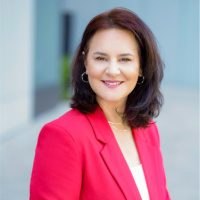
Monique Clua Braun is the General Director and Country President of Novartis Poland. Monique has more than 20 years of experience in the pharmaceutical sector, defined by the partnerships she establishes with the healthcare ecosystem, advancing the business models and responding to the needs of patients and the healthcare system. She strongly believes in cross-industry collaboration aimed at working together to improve overall access to health through creating a high-value healthcare system.
During her tenure as General Director and Country President of Novartis Poland, she has demonstrated commitment to drive a Private-Public Partnership, which resulted in signing the MoU with ABM and the Polish Cardiac Society as well as establishing a cooperation with the Warsaw Health Innovation Hub to co-create innovative solutions to improve patients’ outcomes. Her strategic mindset, innovative thinking, and inspiration she brings to the teams allow her to deliver value-added solutions and services for the needs of the 21st century.
During her career, she led multiple innovative launches across 3 continents in both local, regional, and global roles. Her educational background includes a Communication and Advertising degree from Universidad Anahuac Mexico, Management Certificate from HSG St Gallen Switzerland Management lISTESM, Mexico. Business Magazine Expansion in Mexico has recognized her twice already for her impact as a female leader. She started her role in Poland in July of last year and moved to Warsaw from Argentina with her husband and 3 kids. Connect with Monique on LinkedIn.
